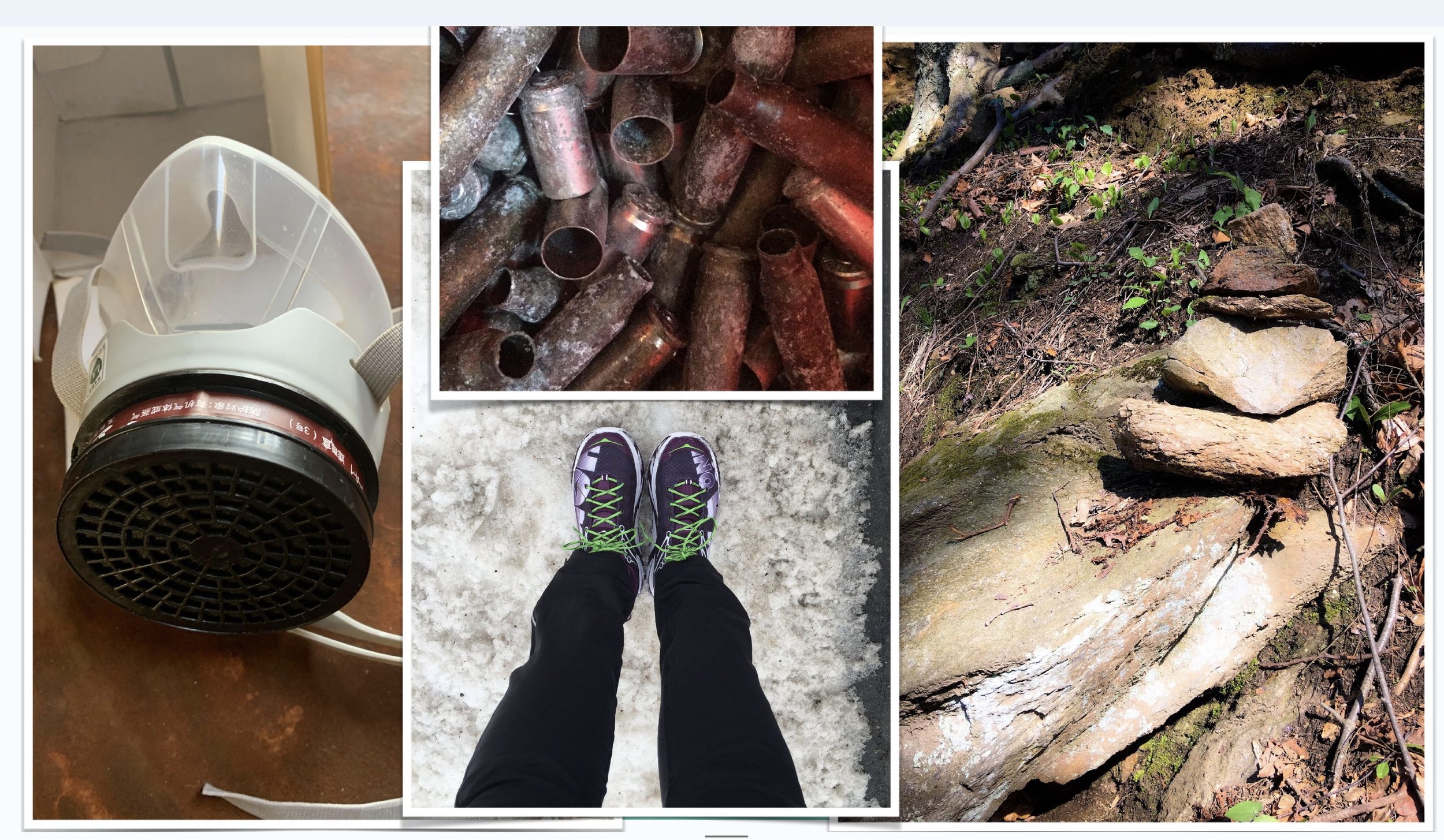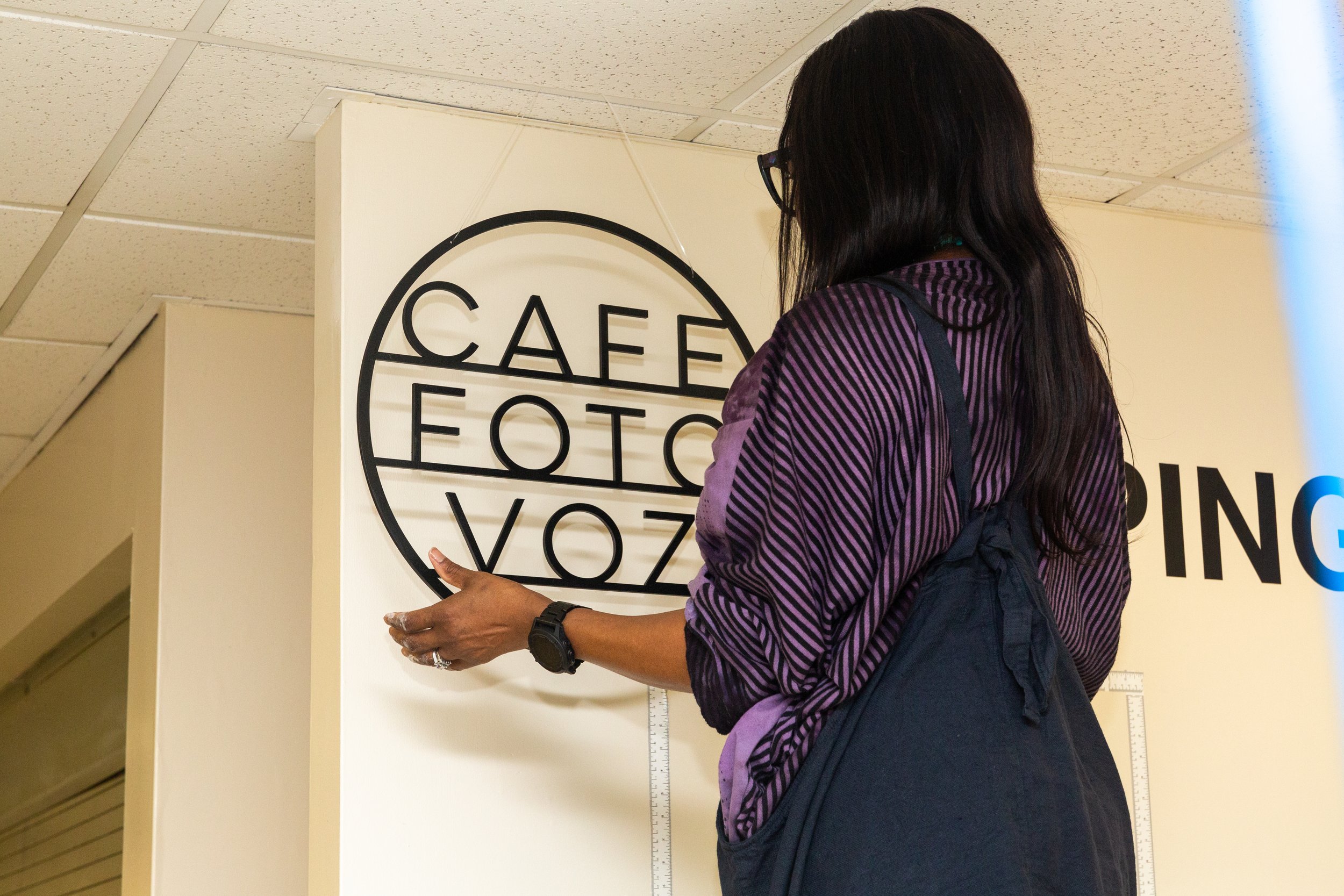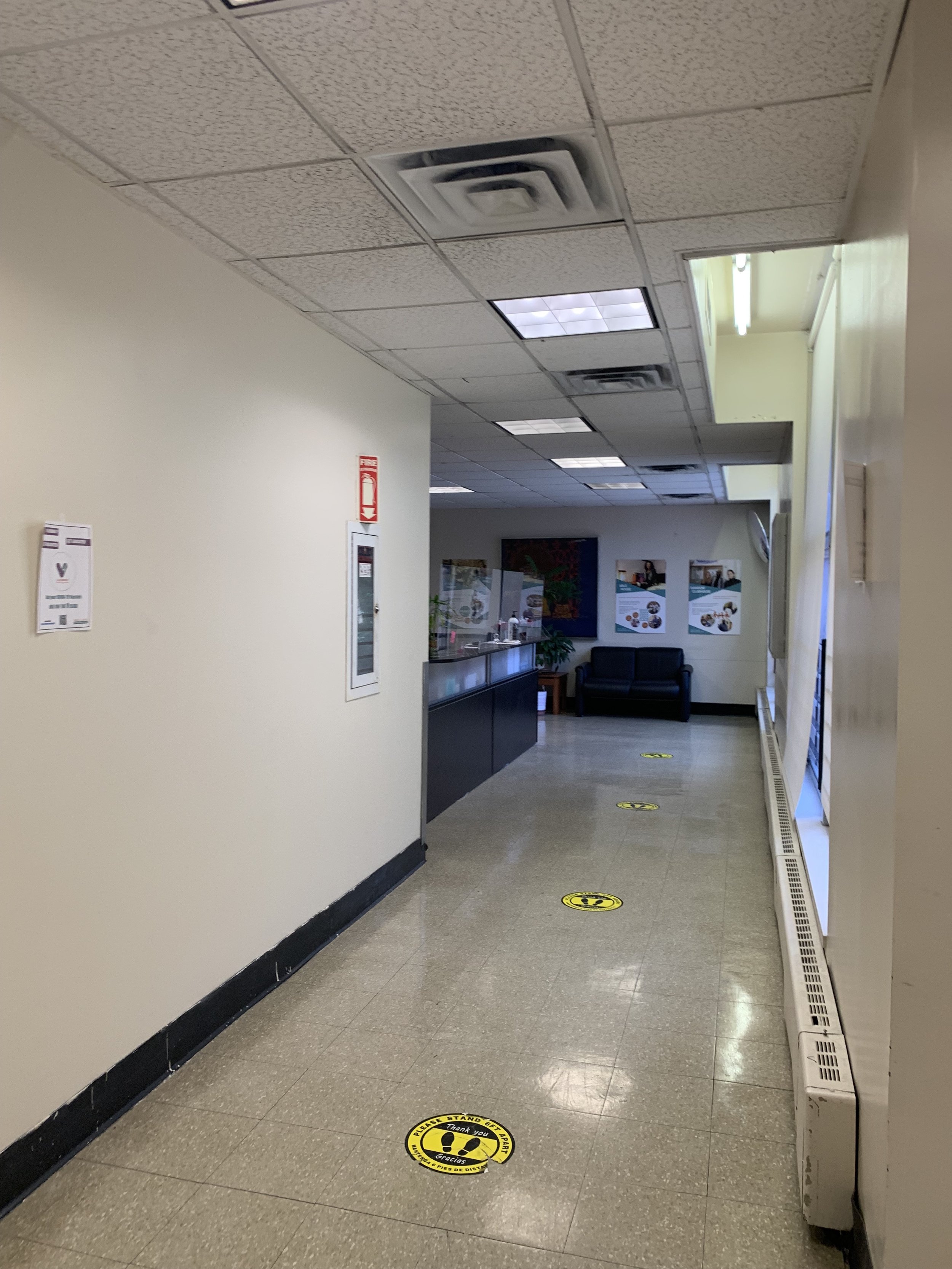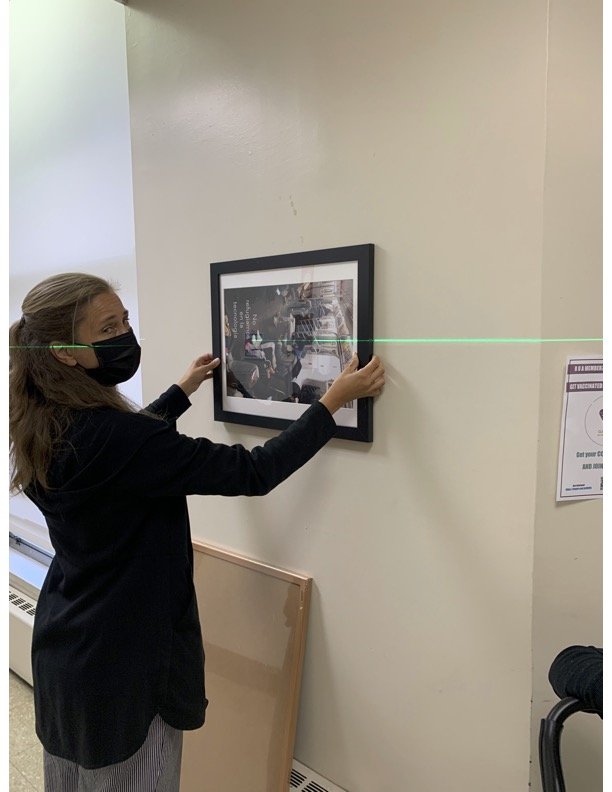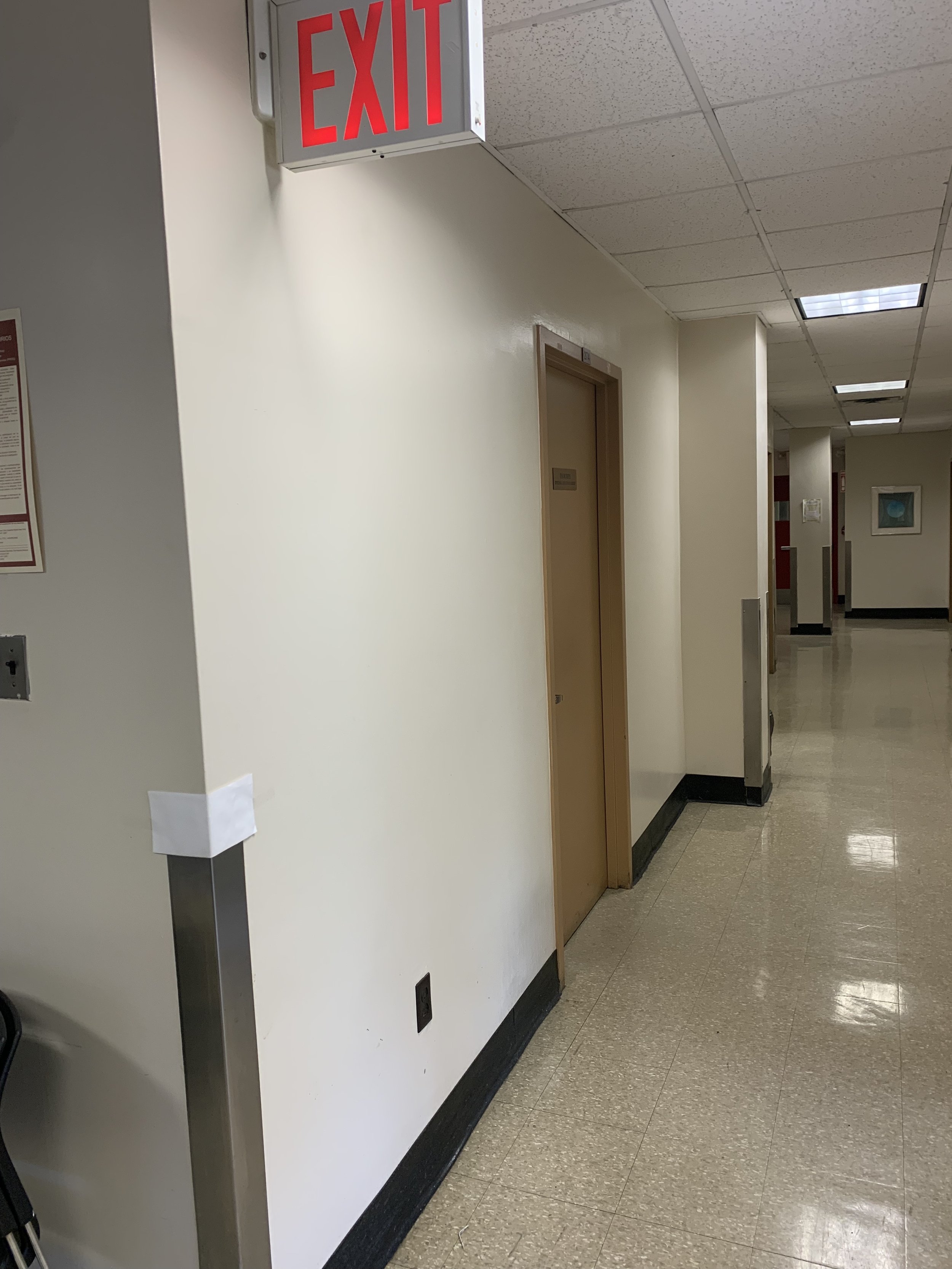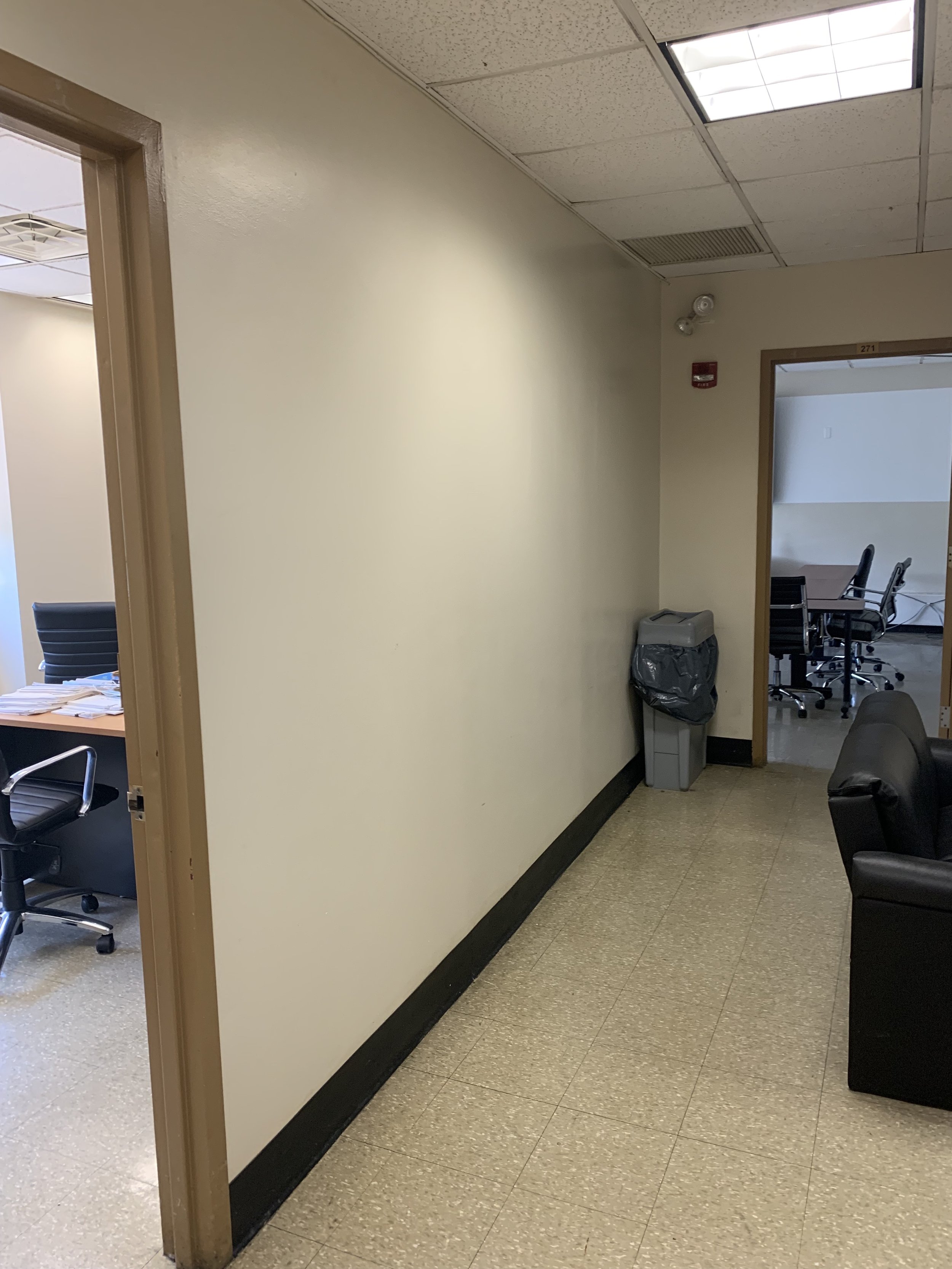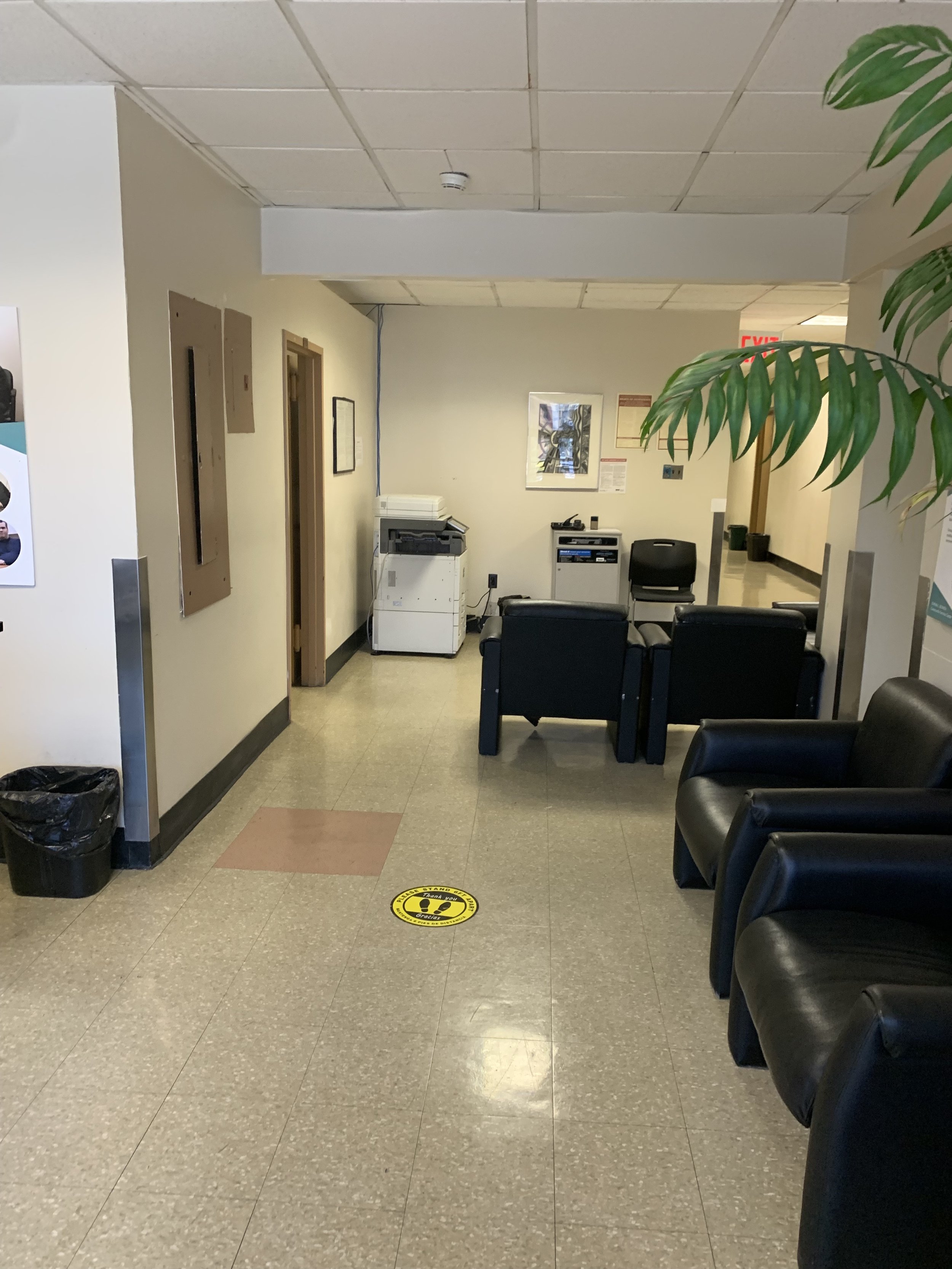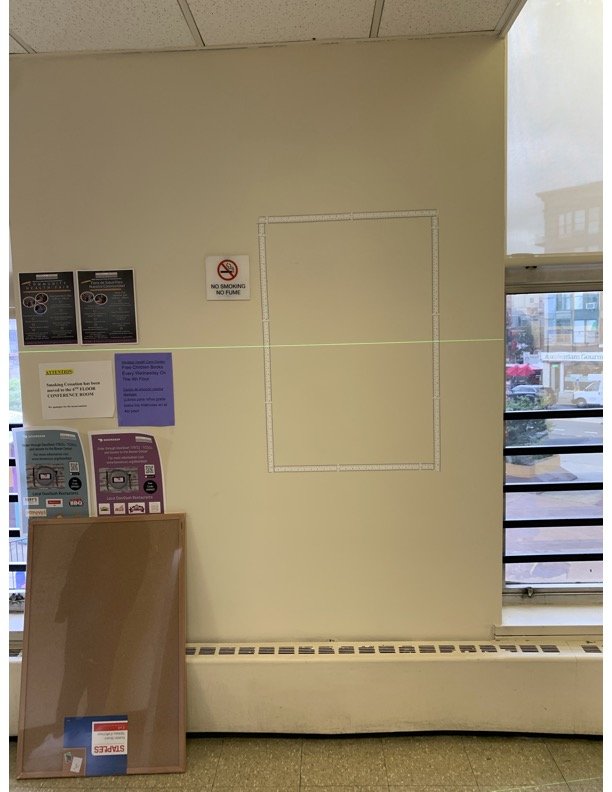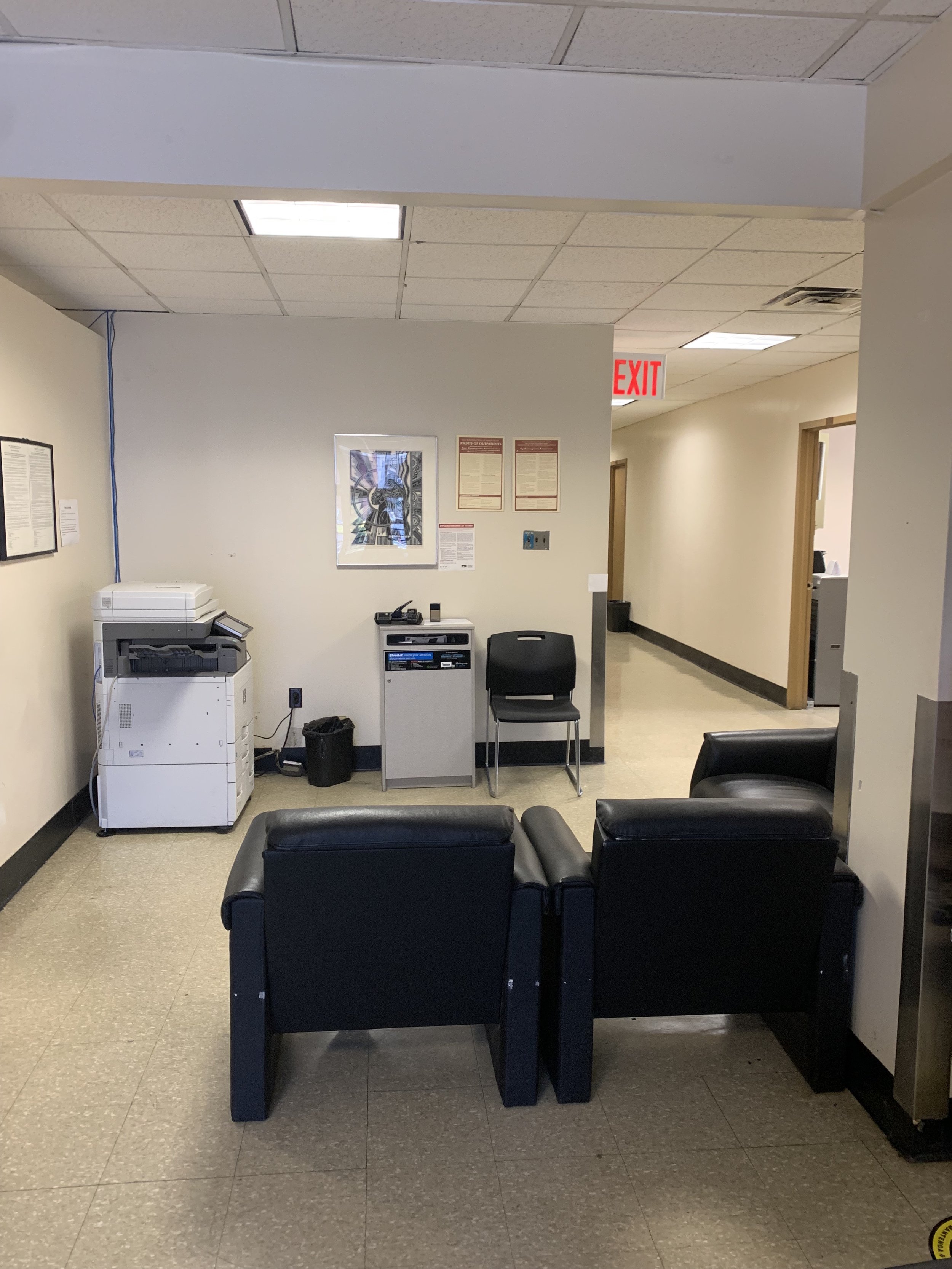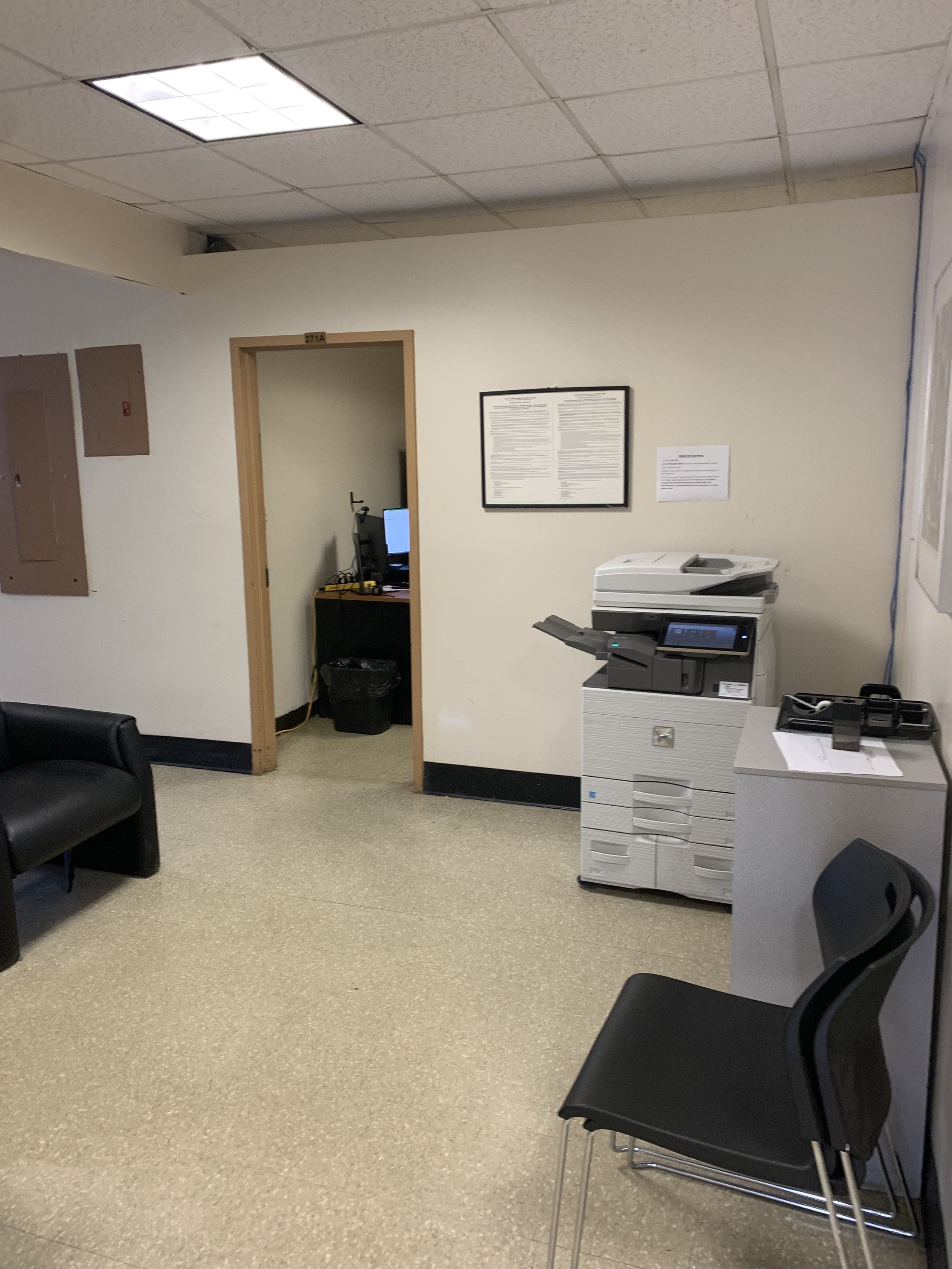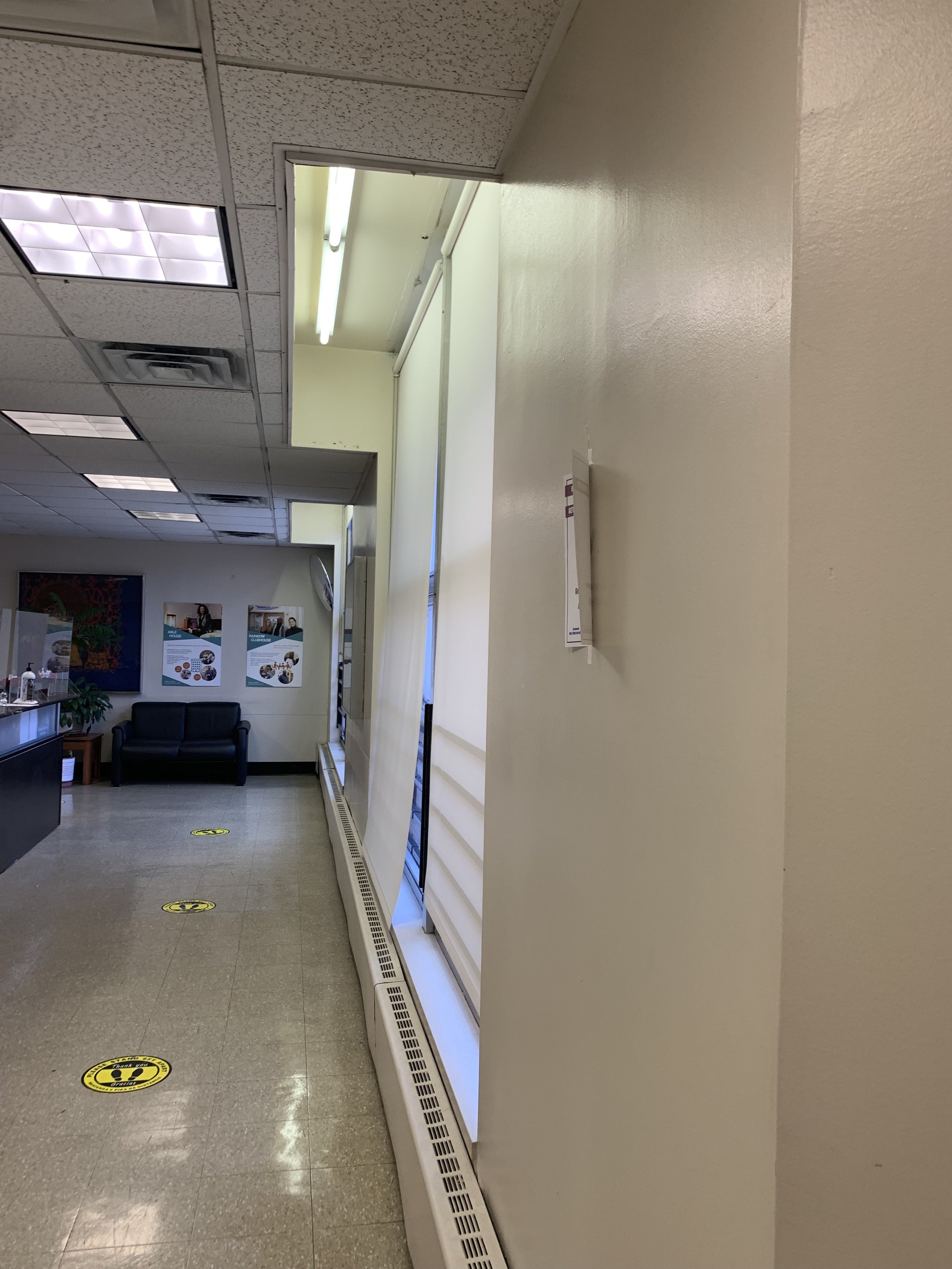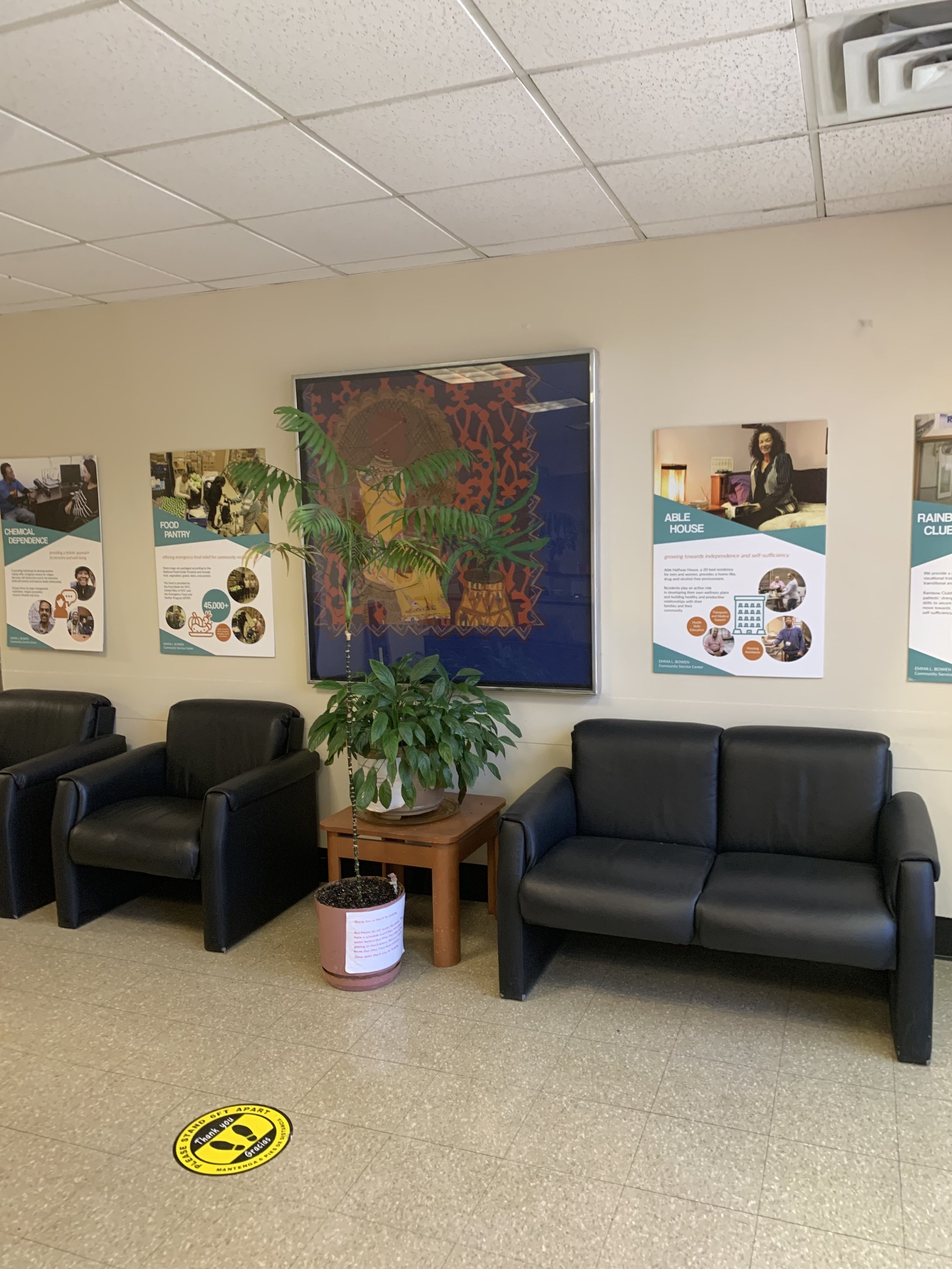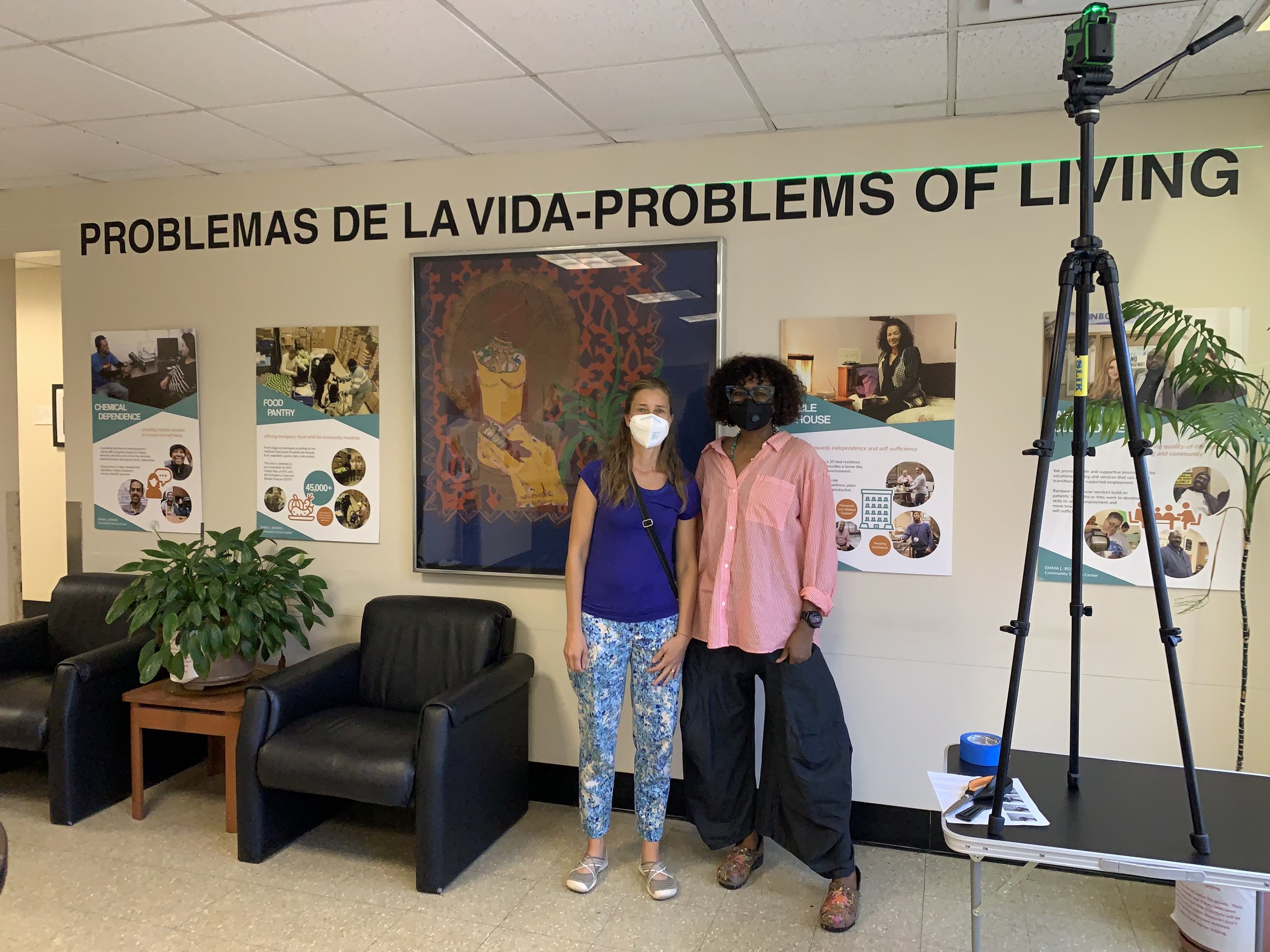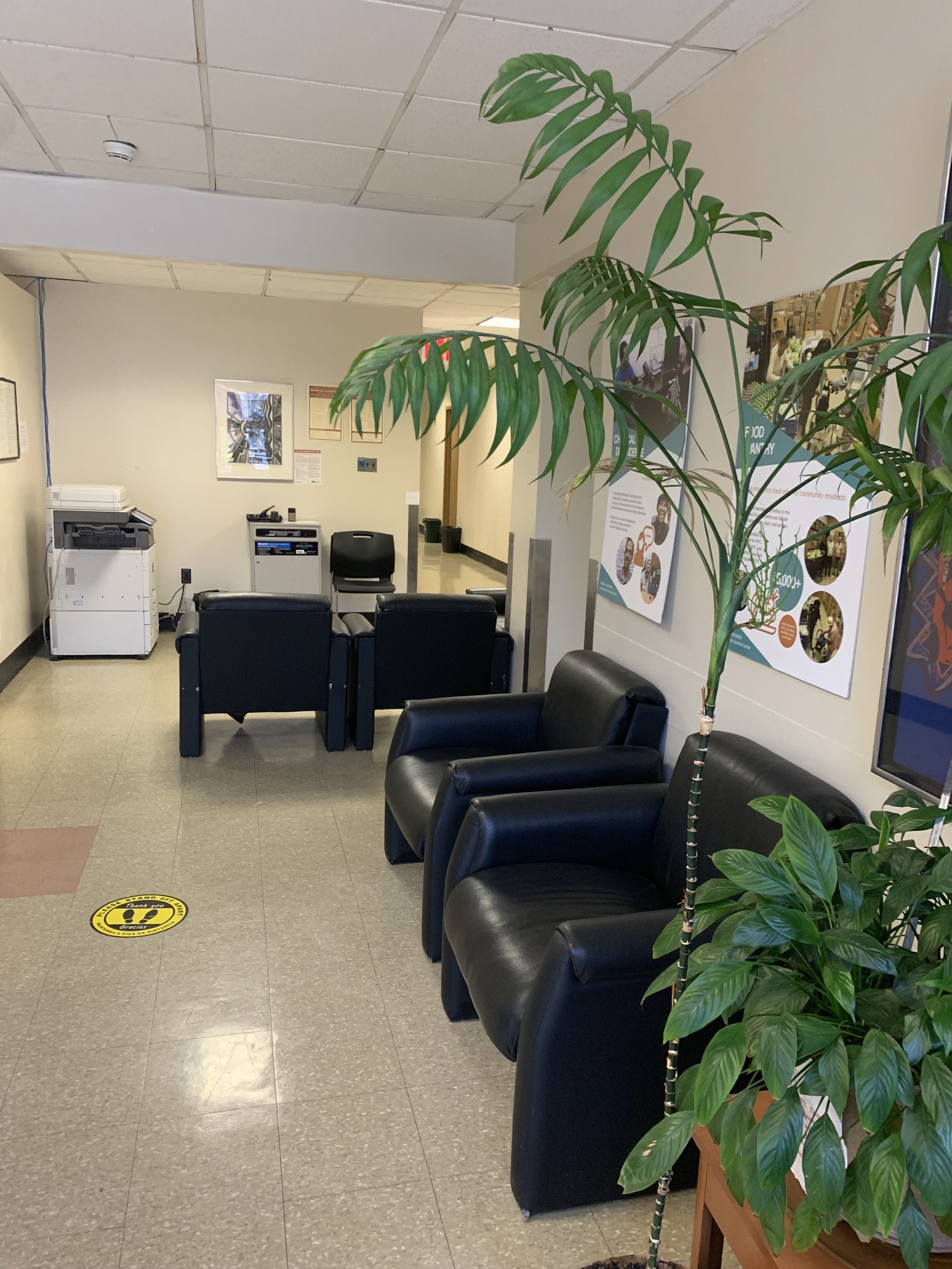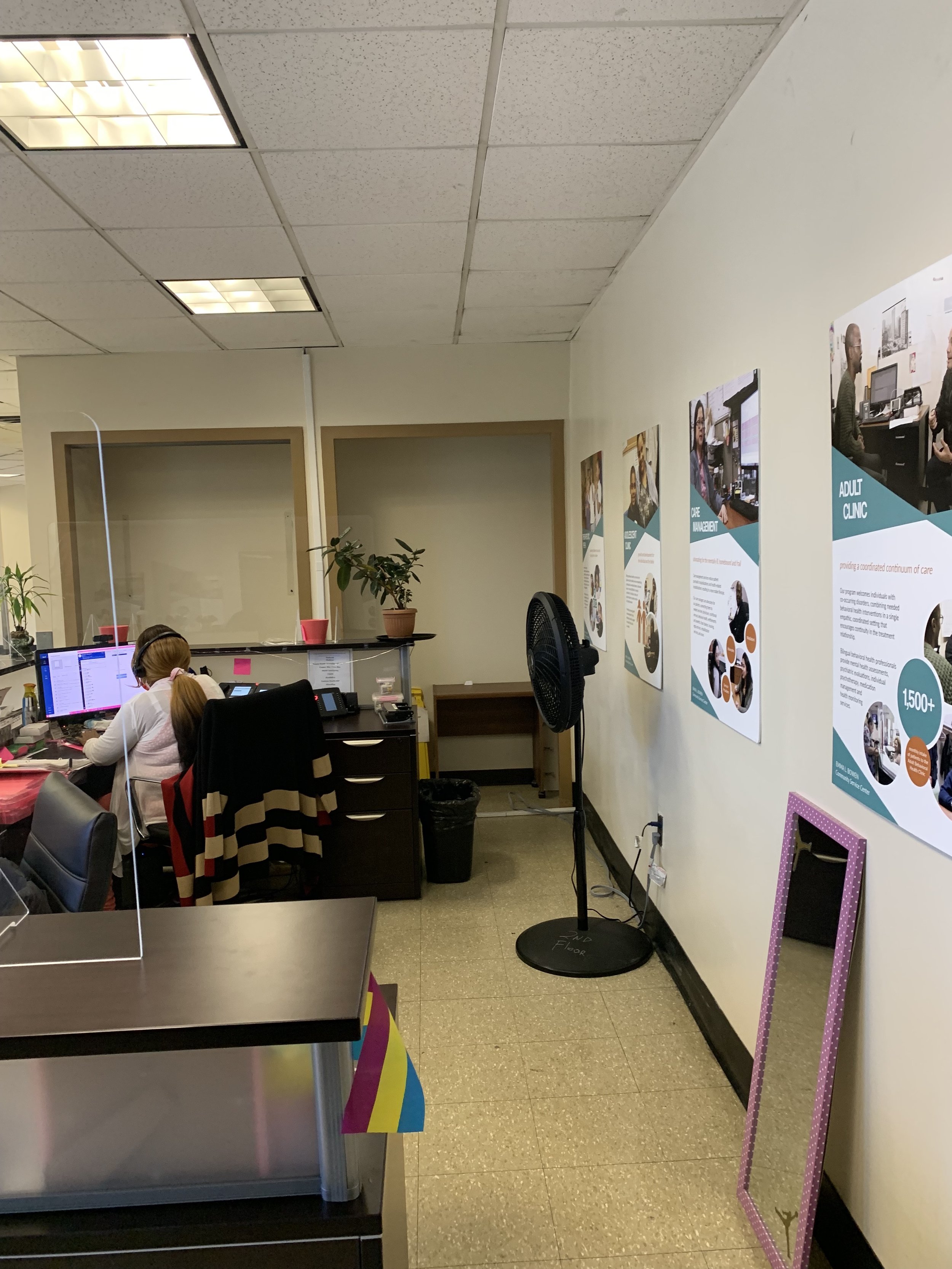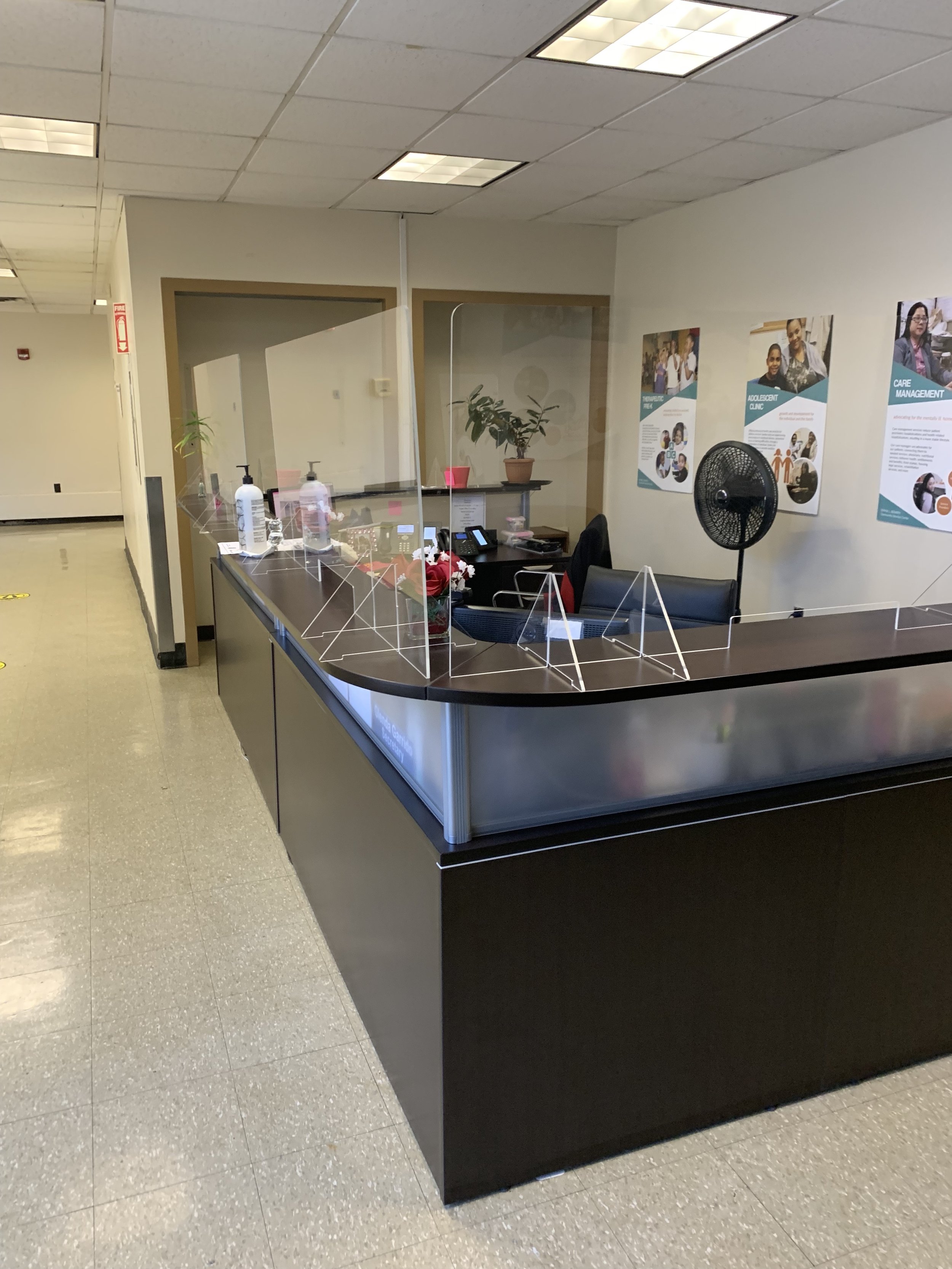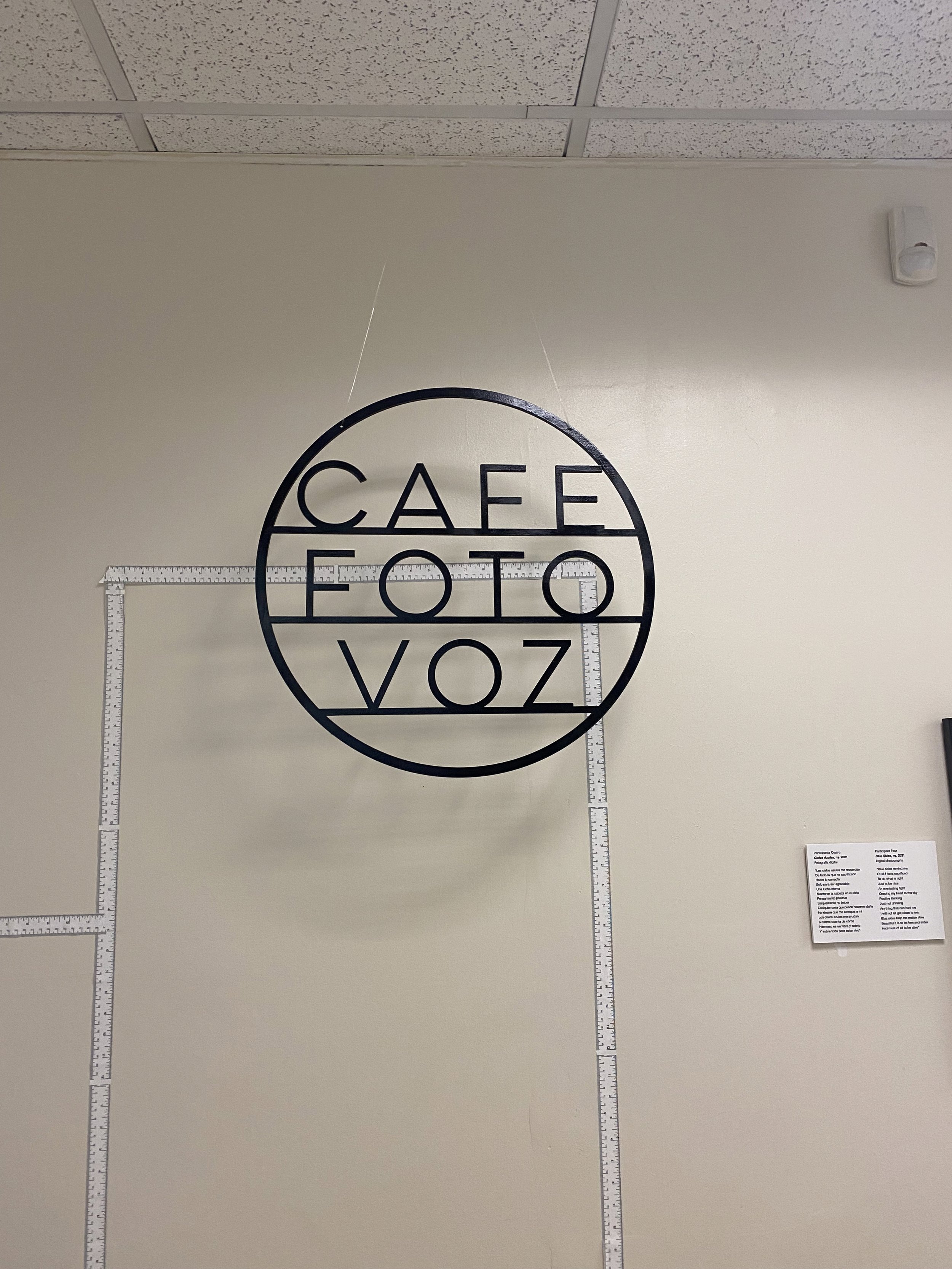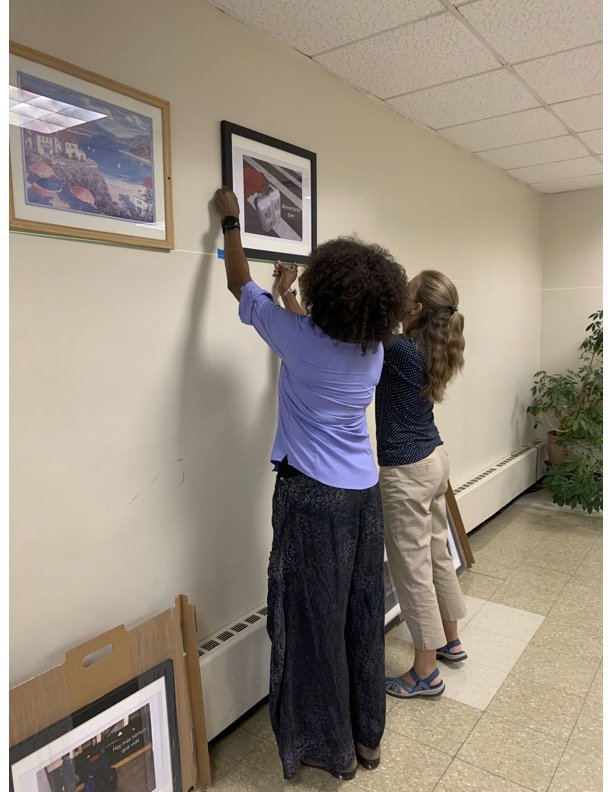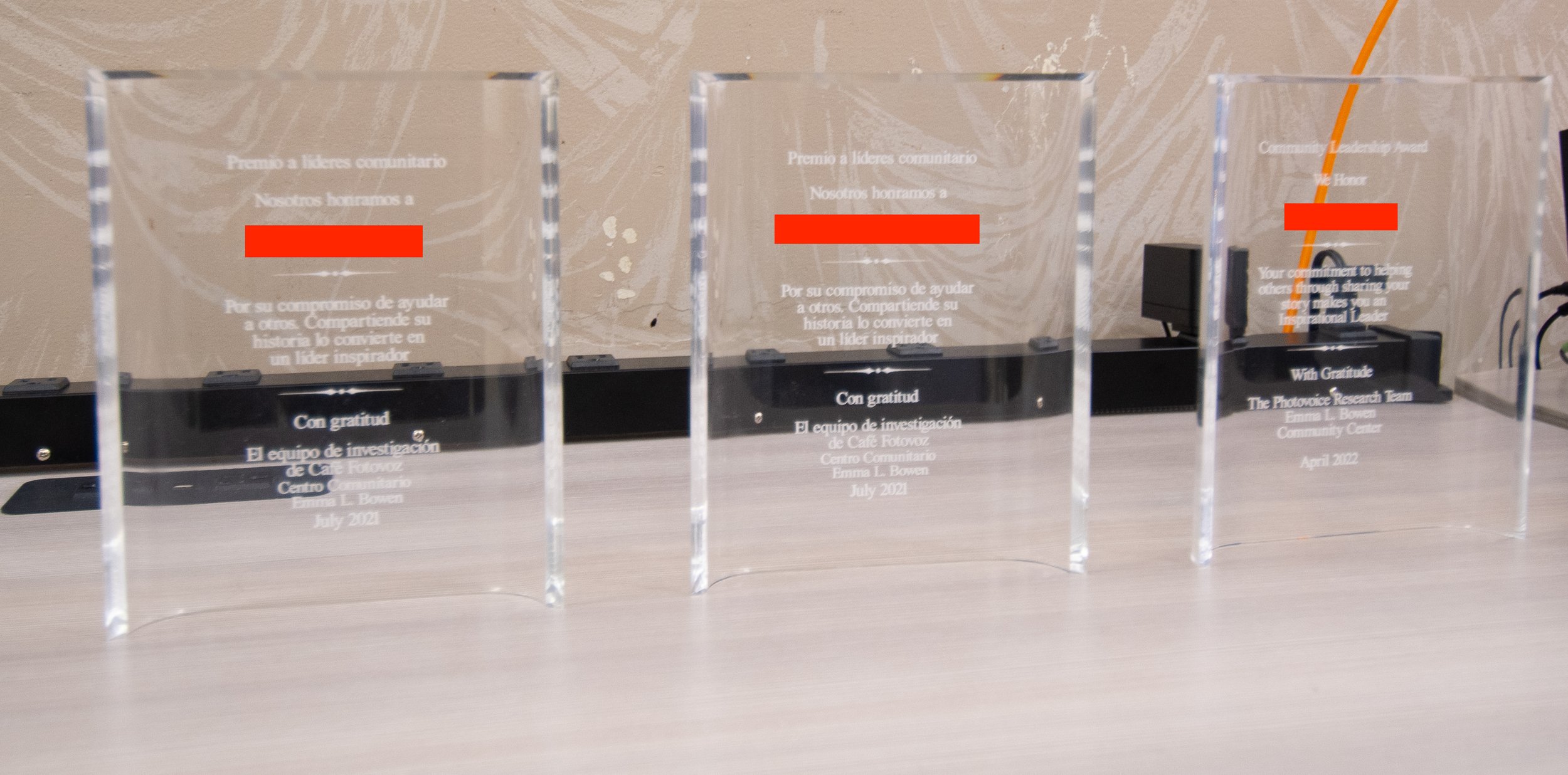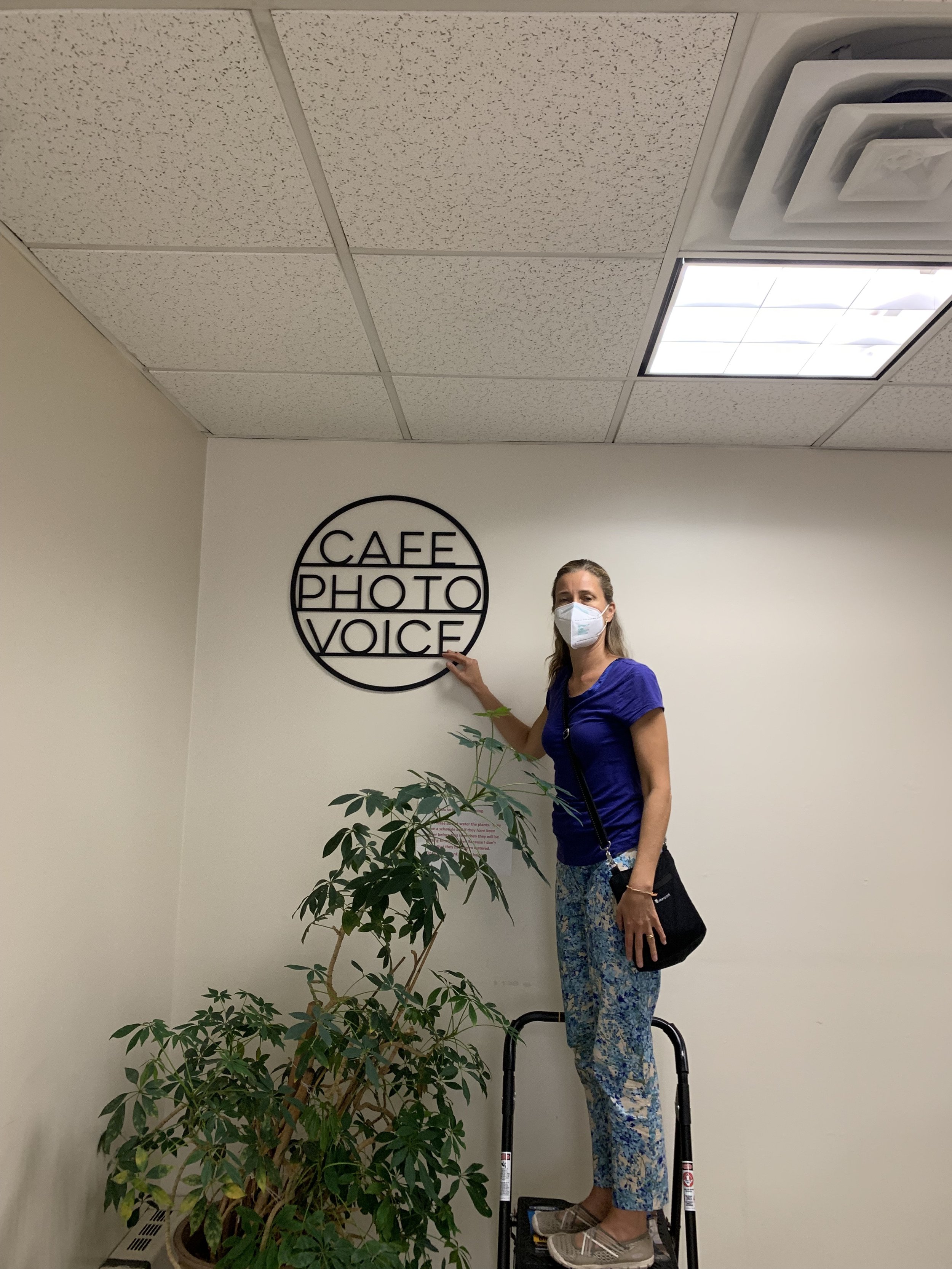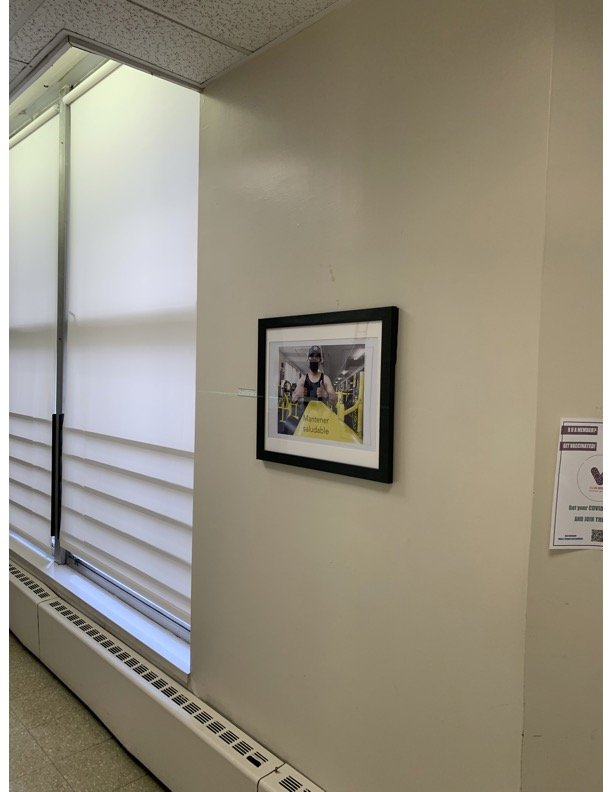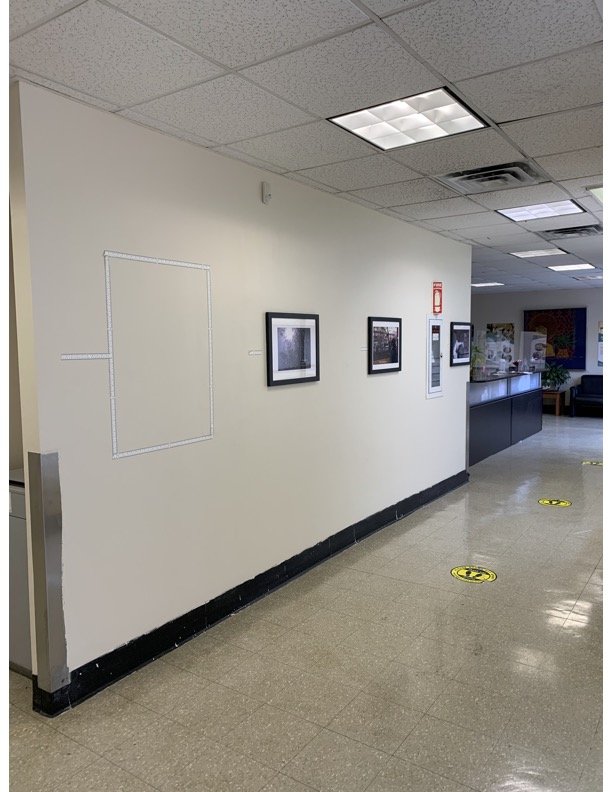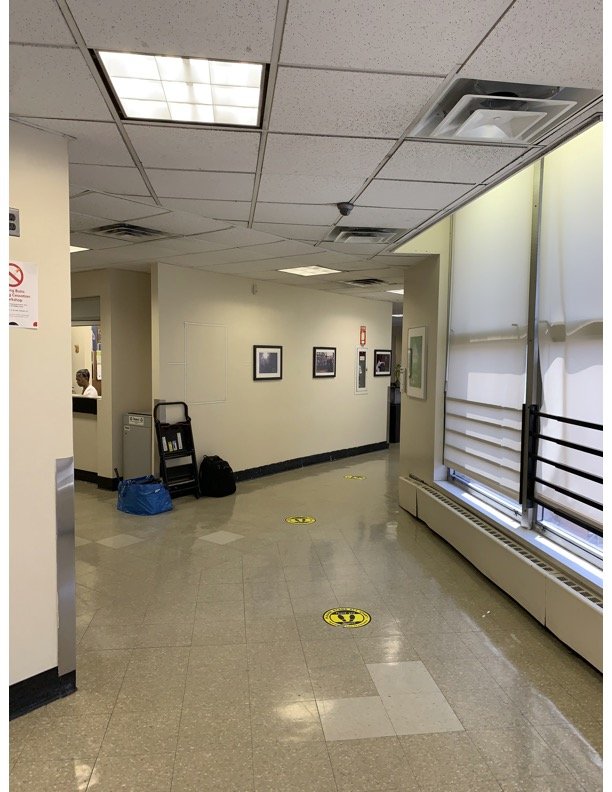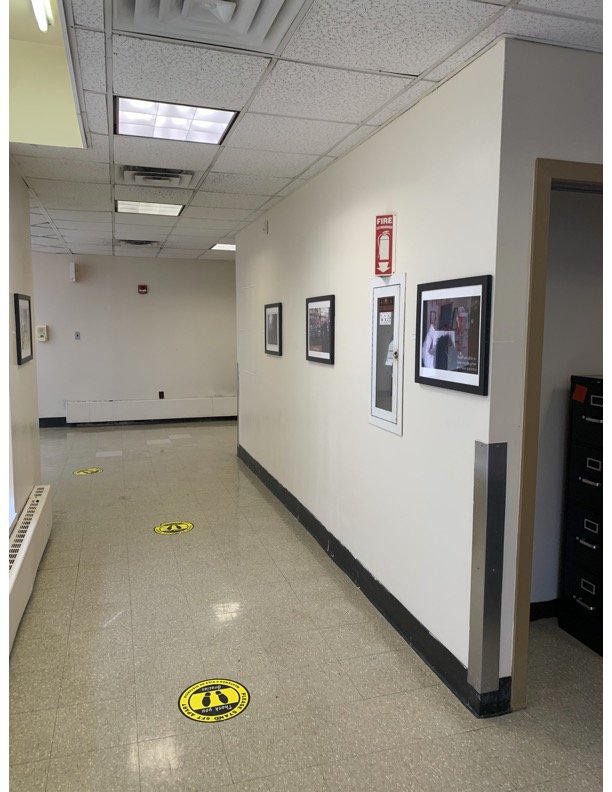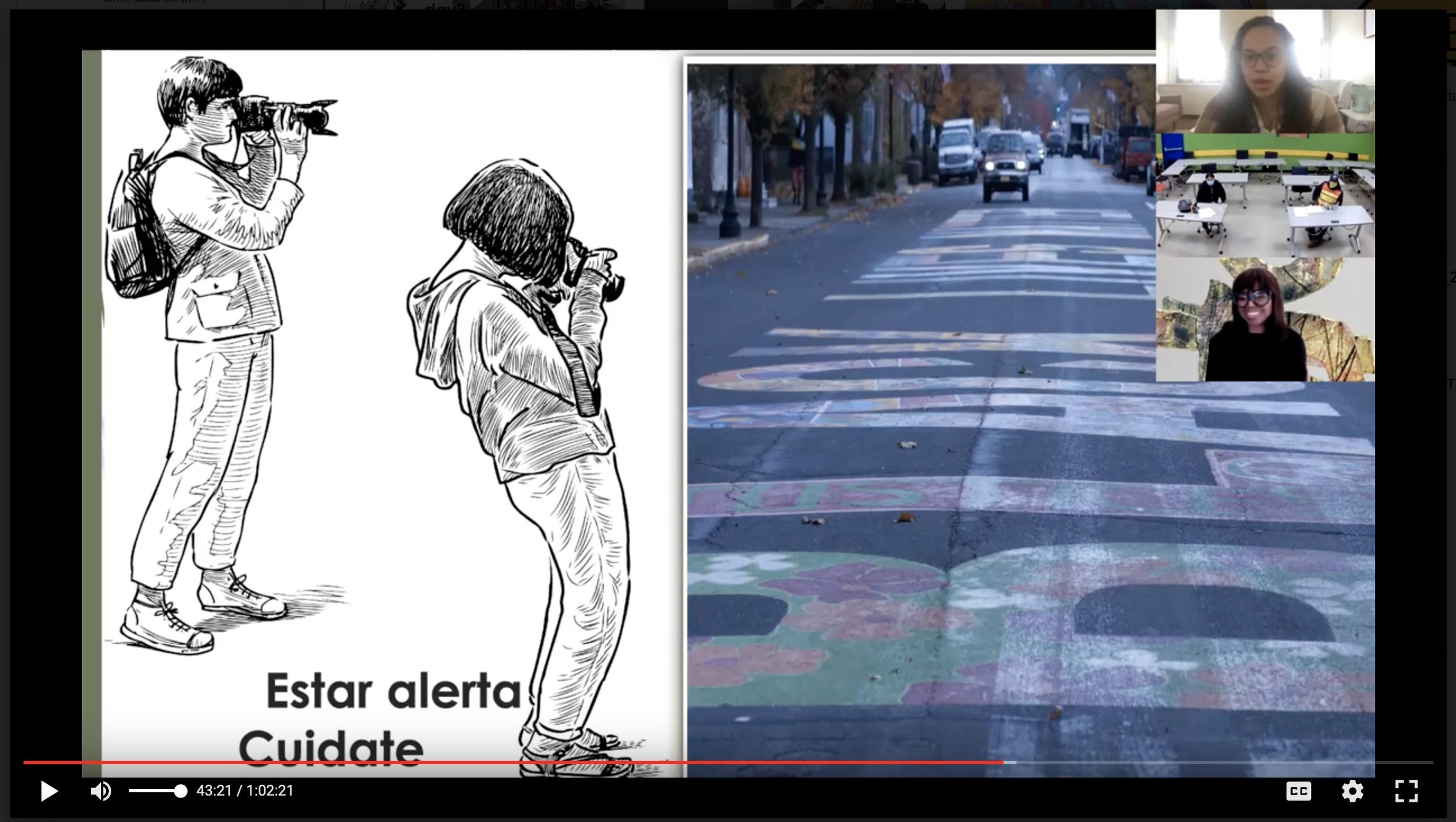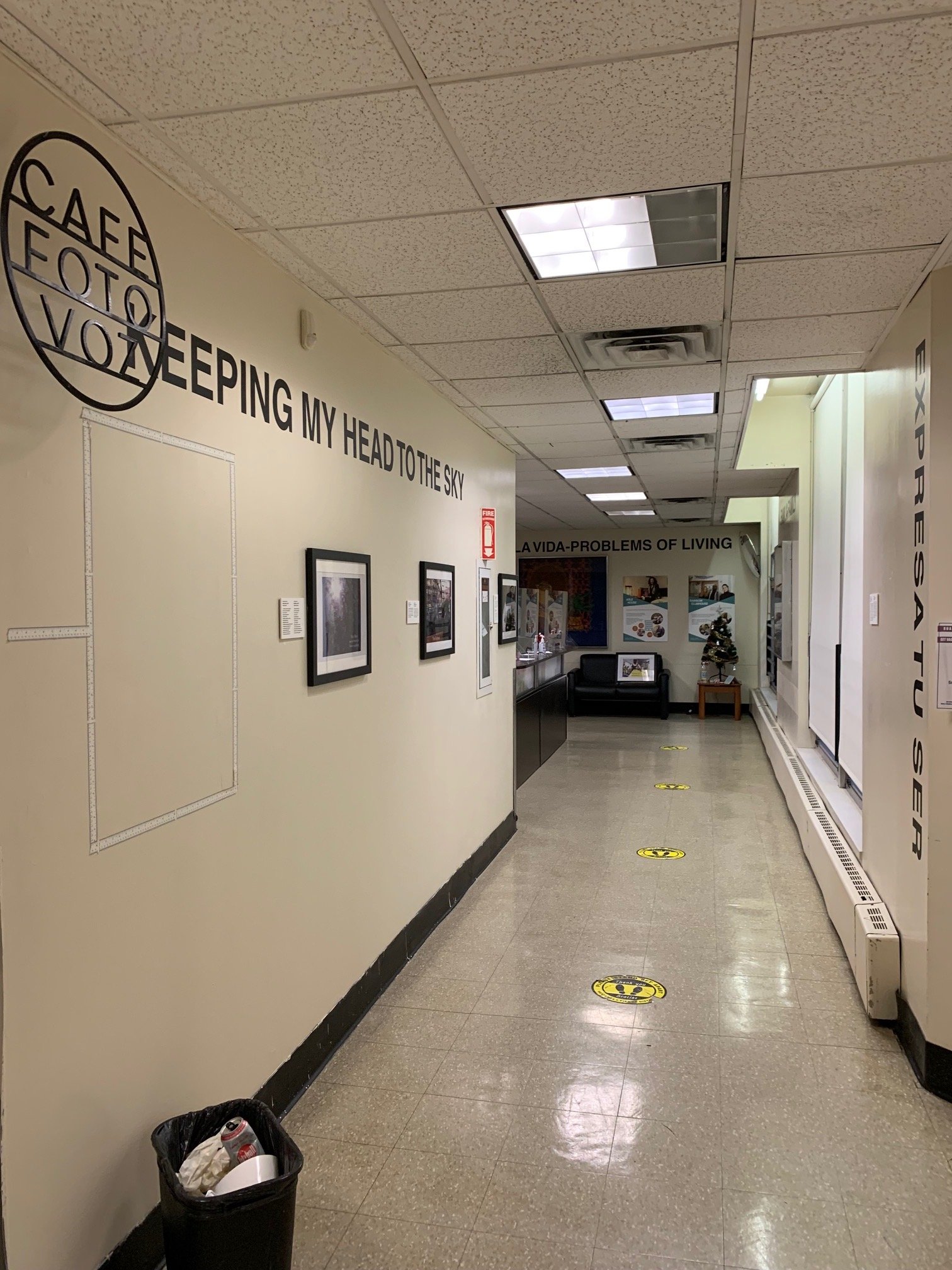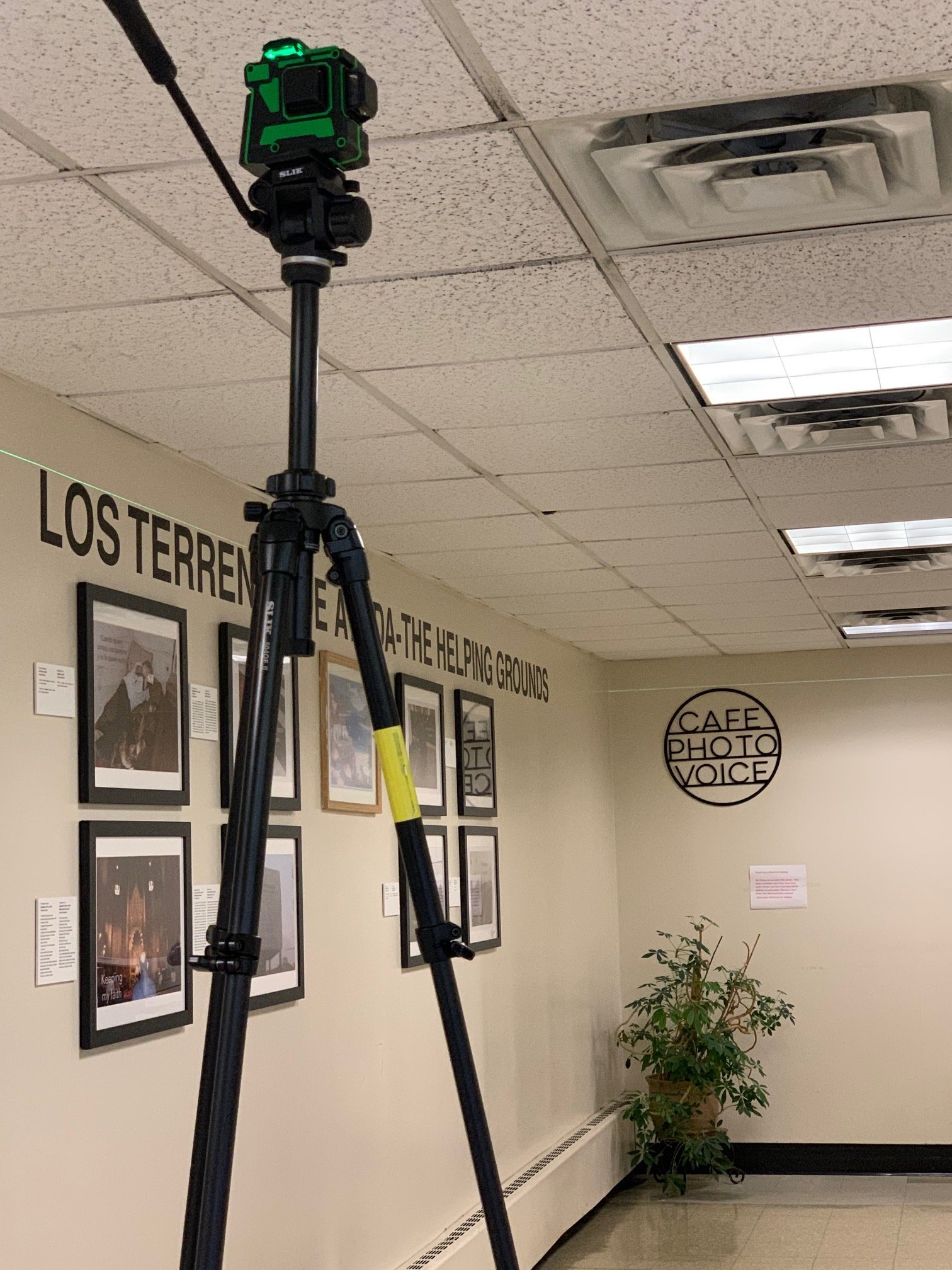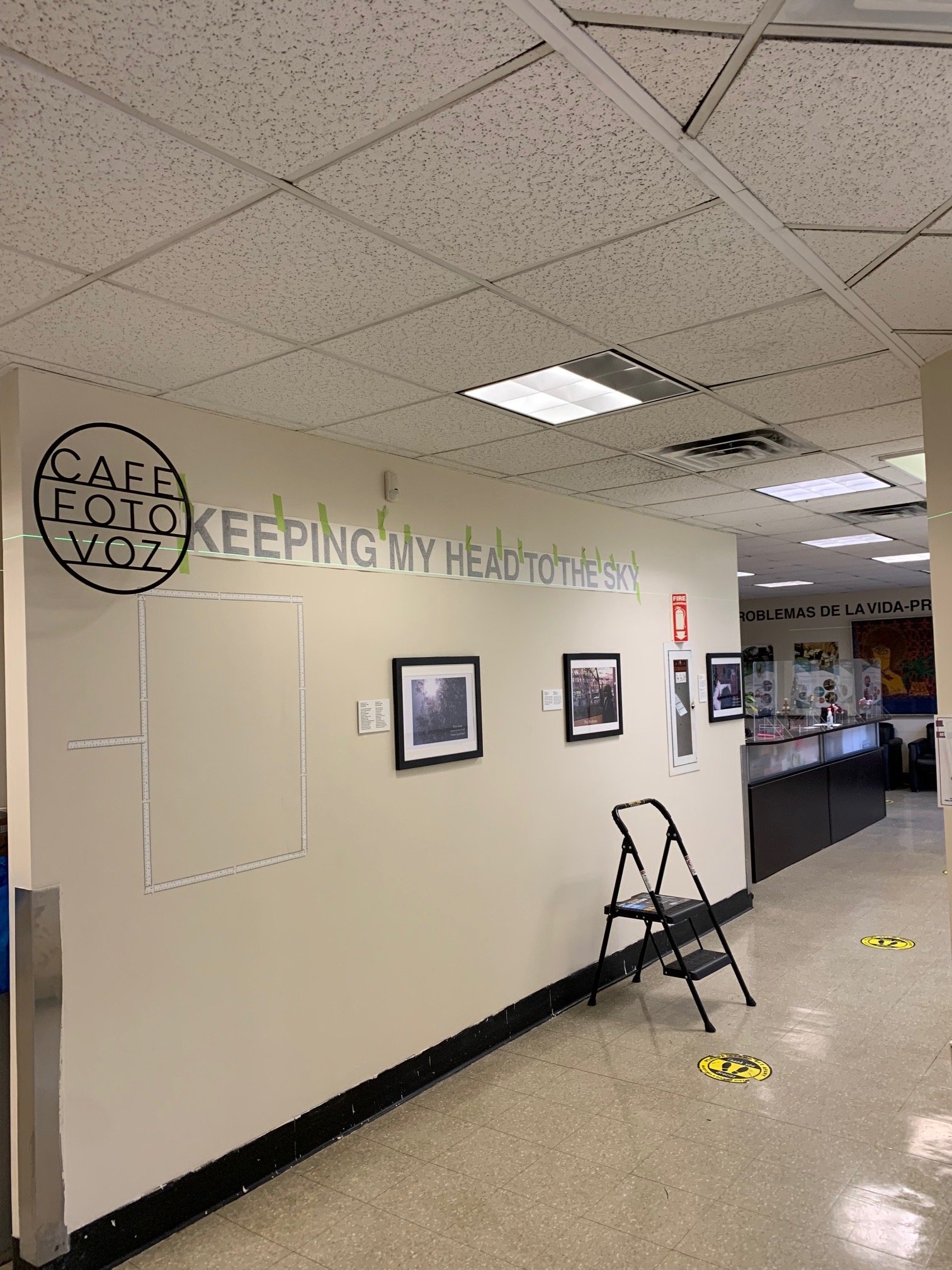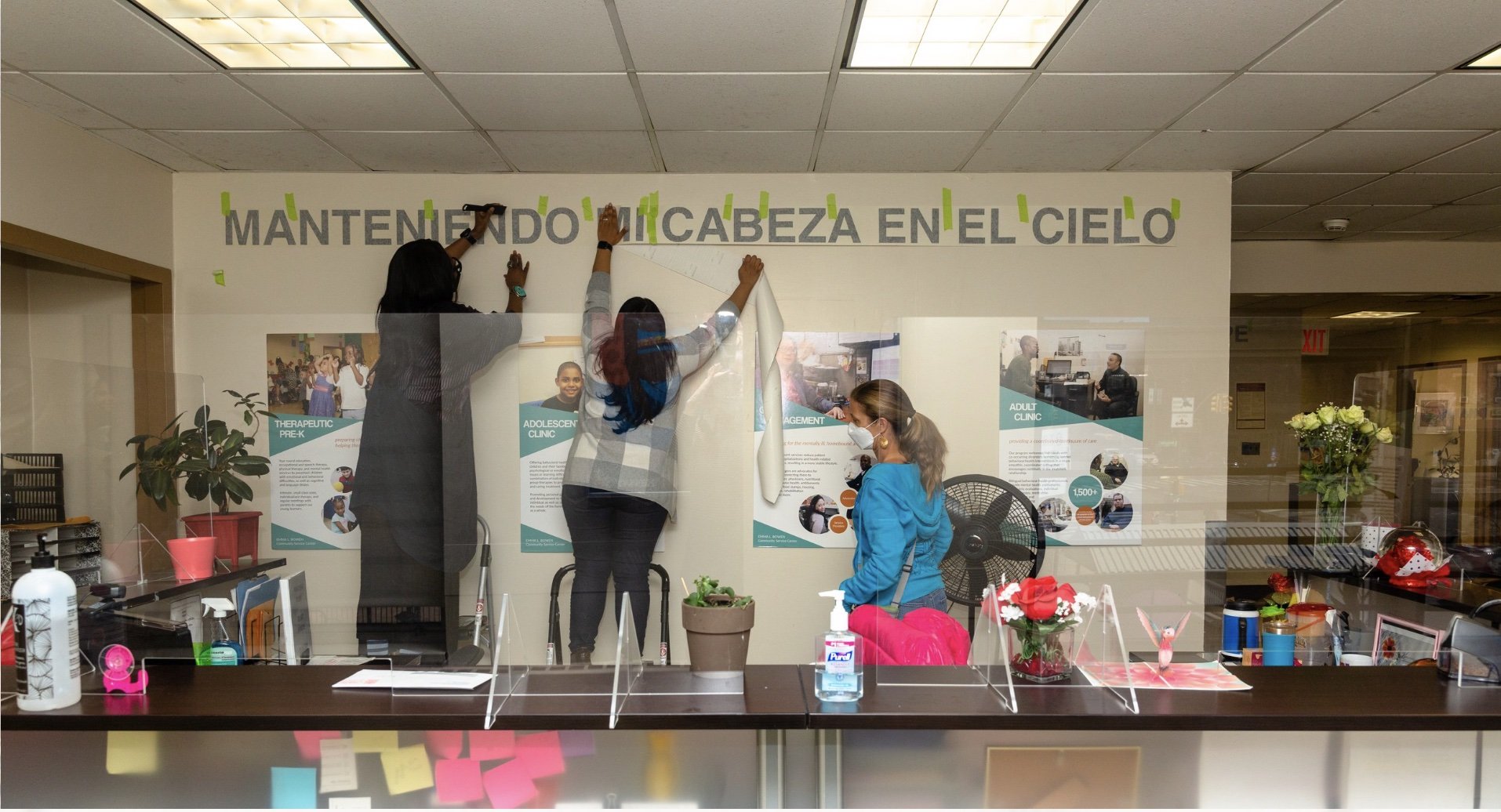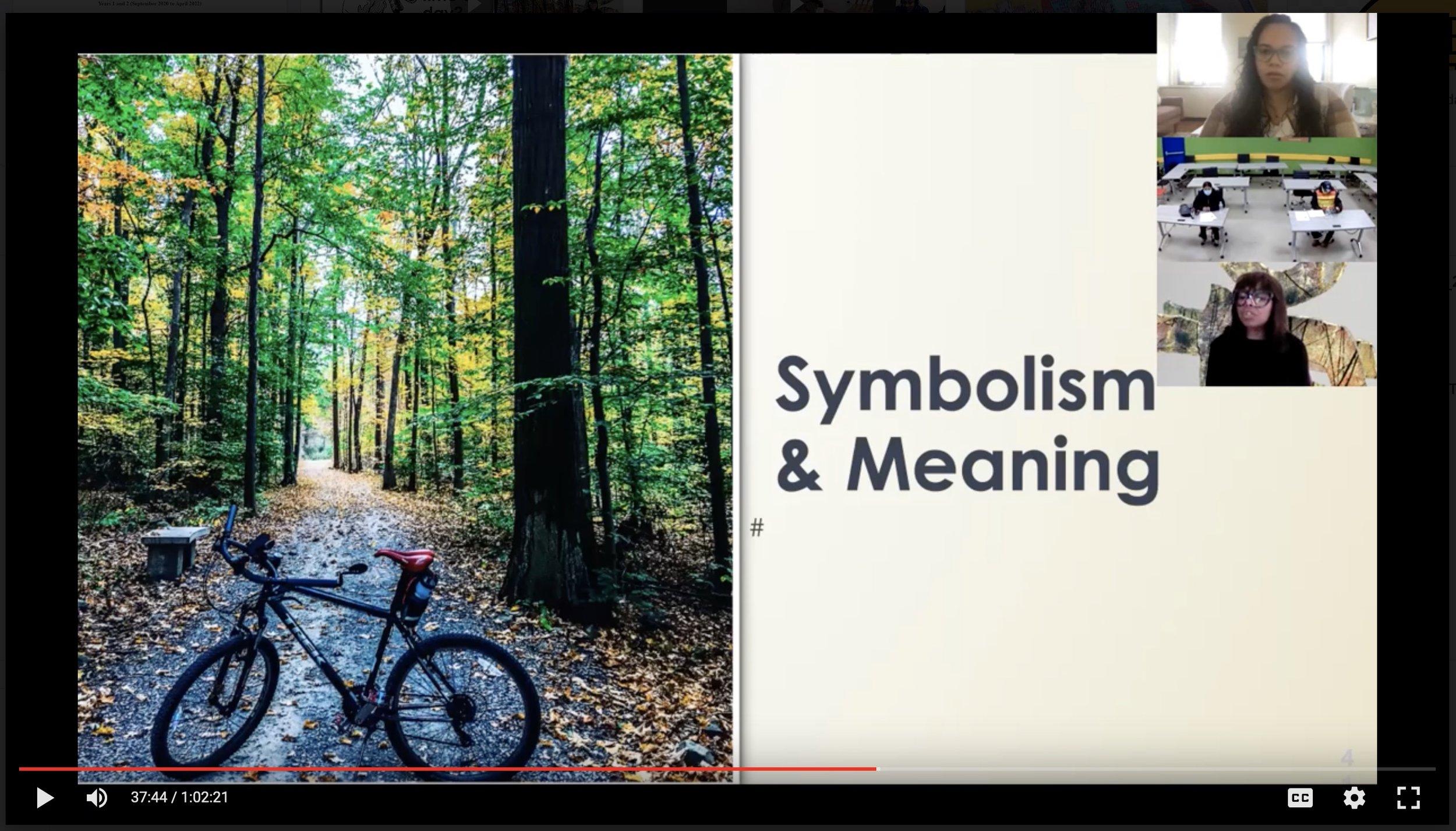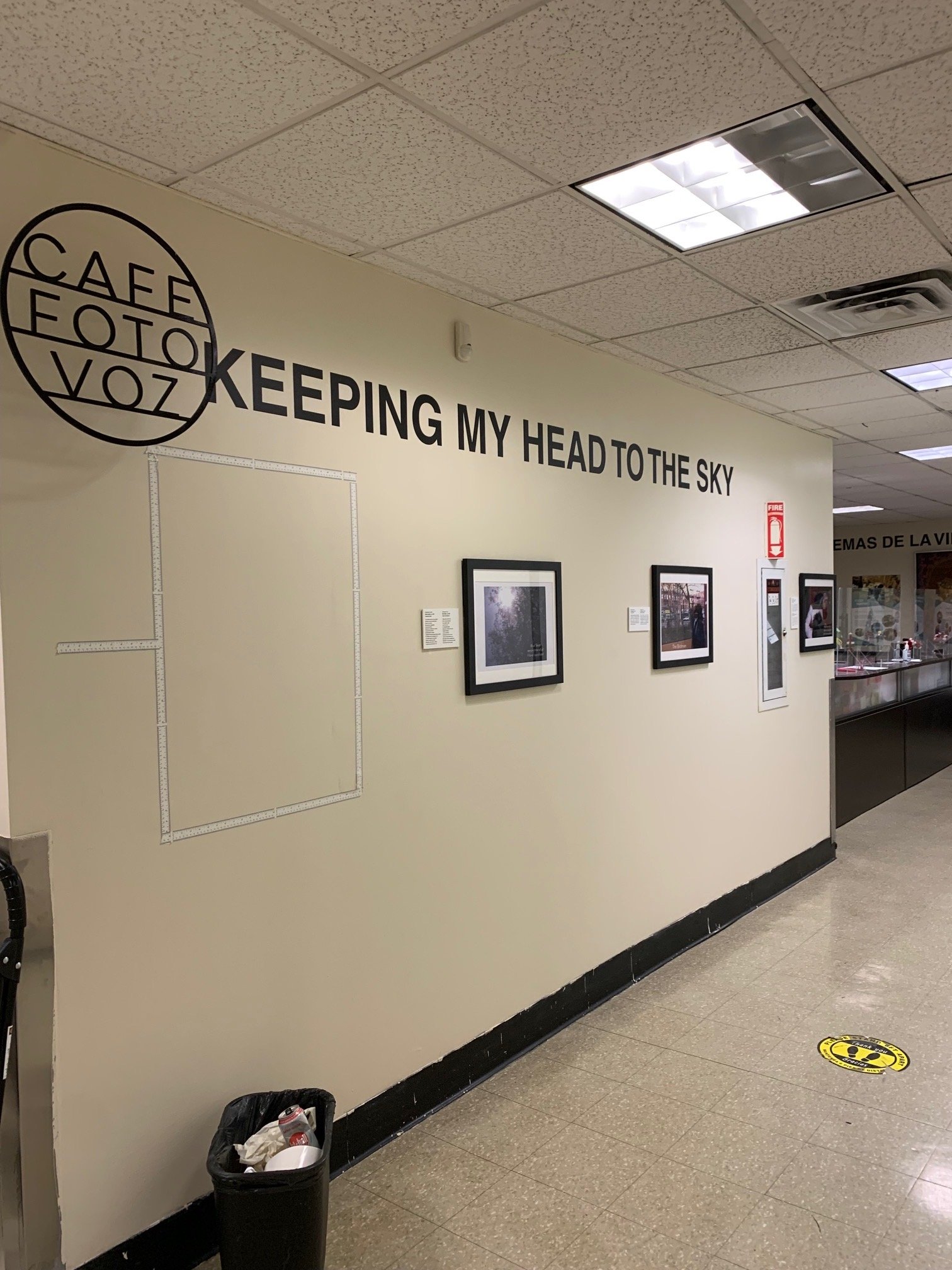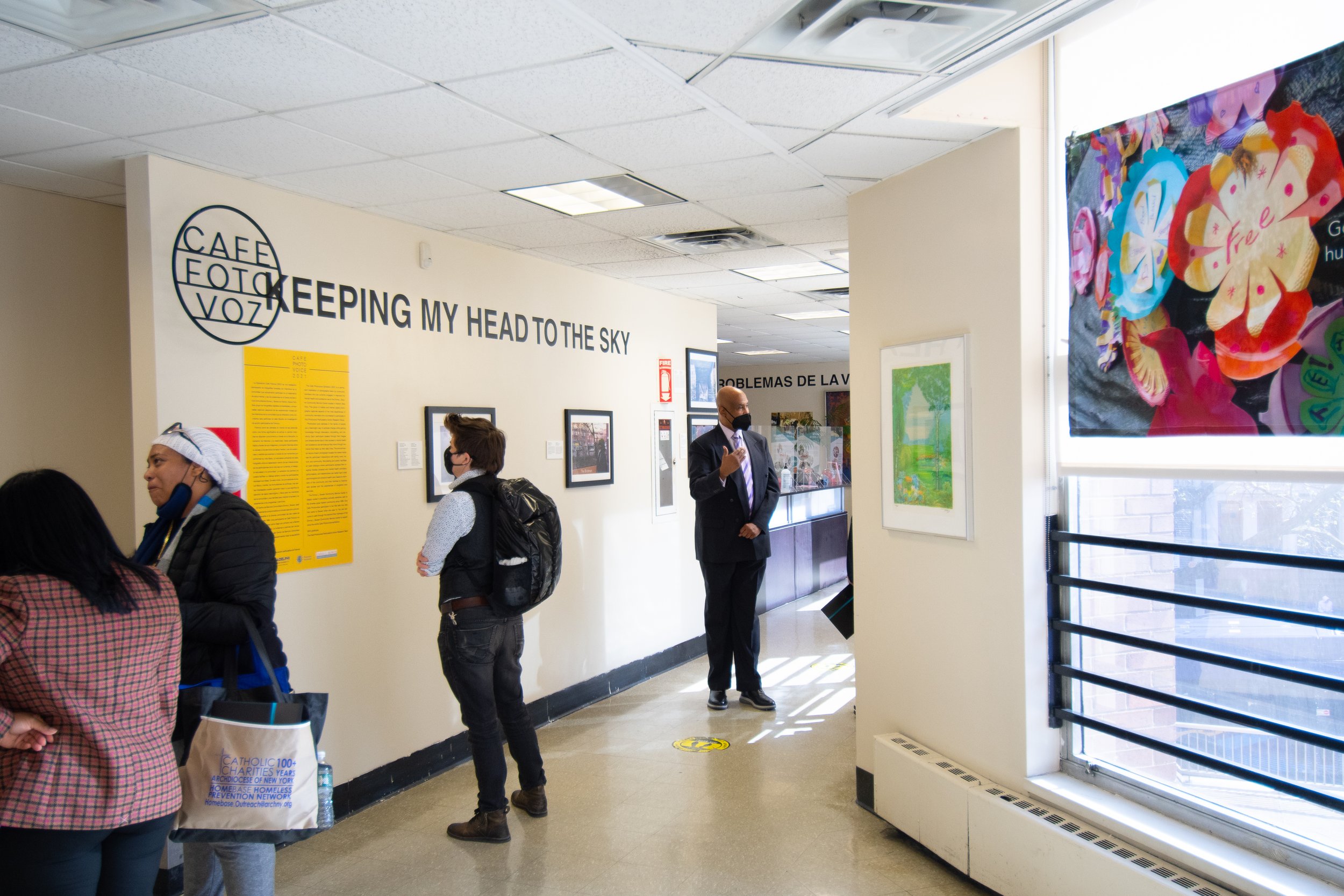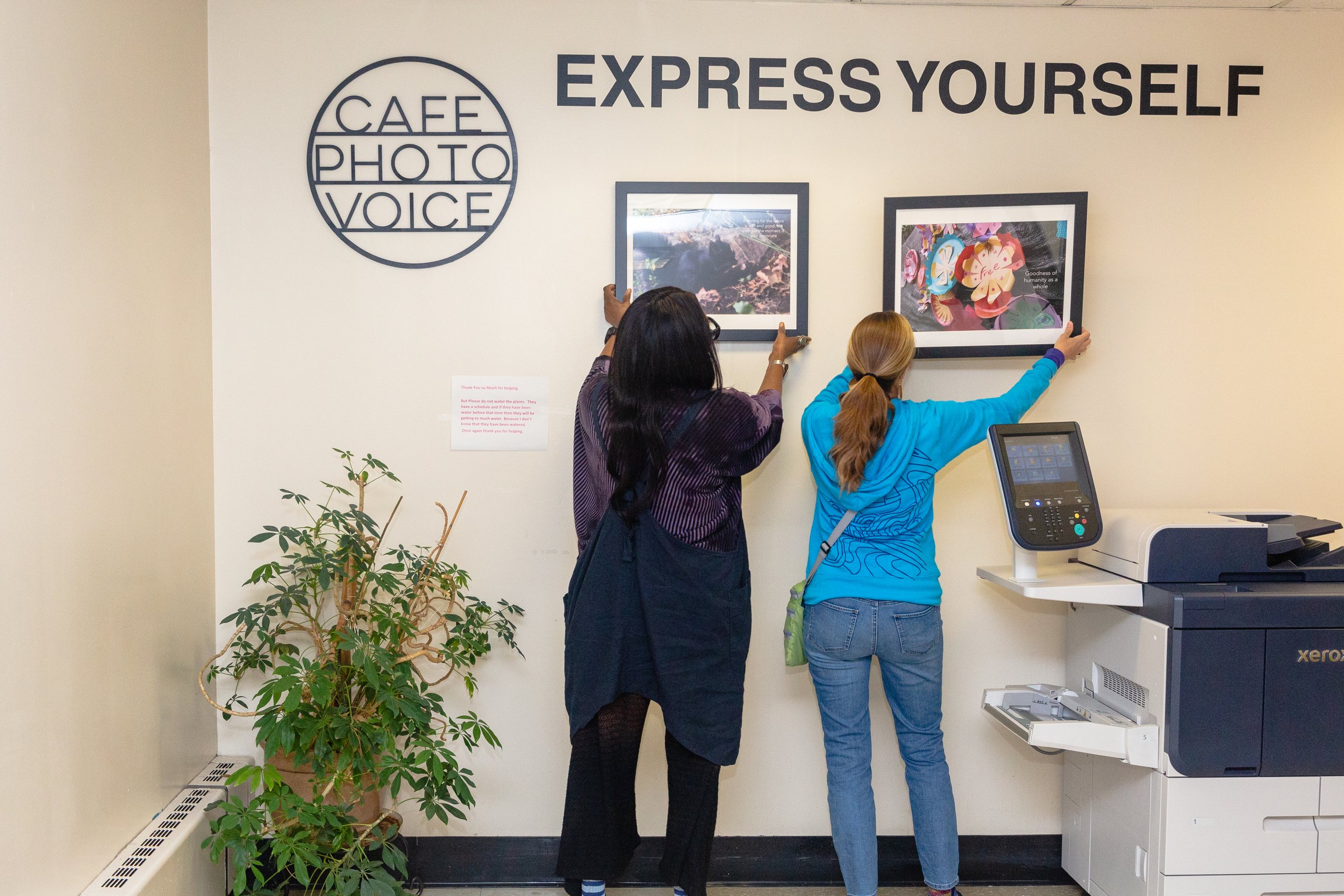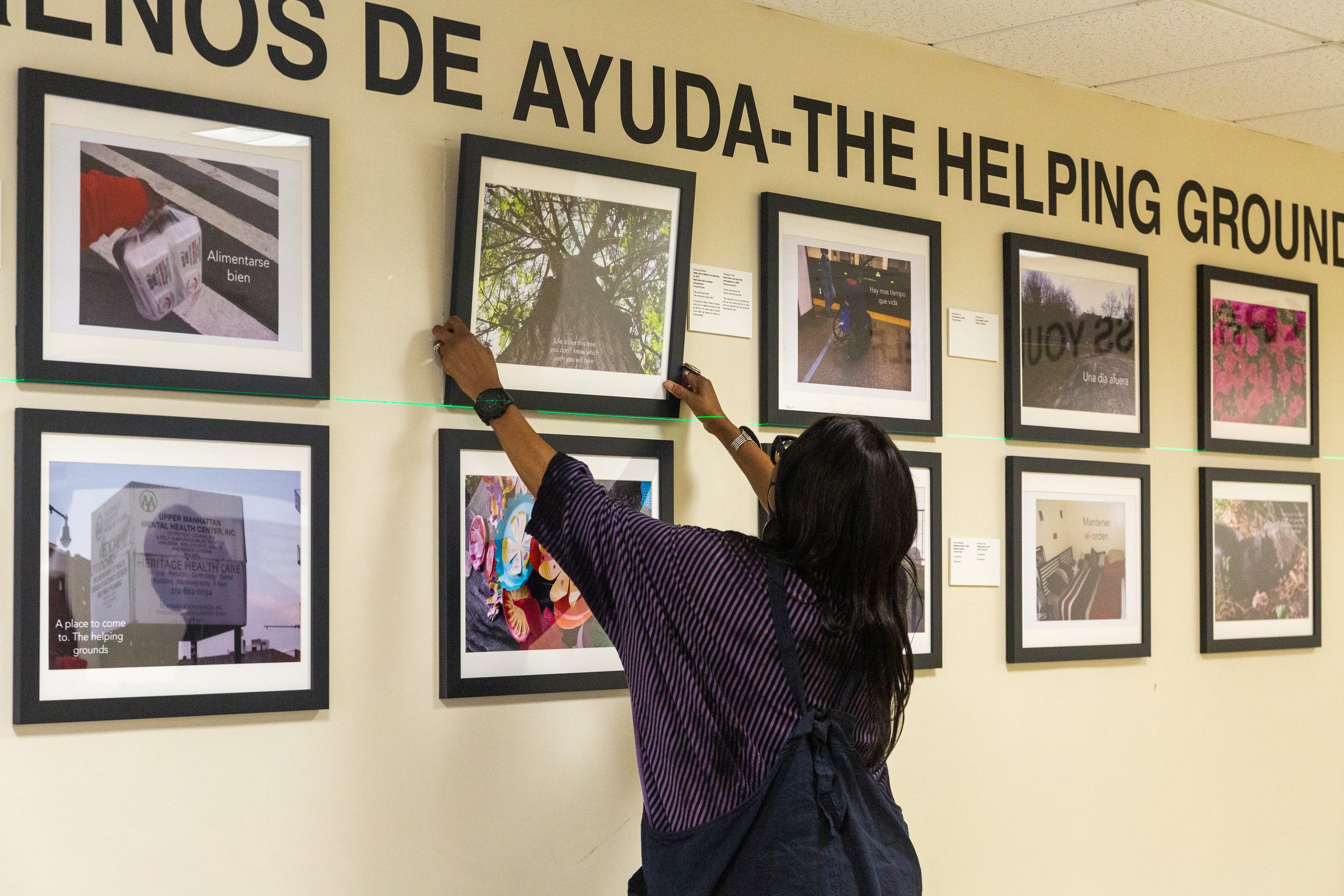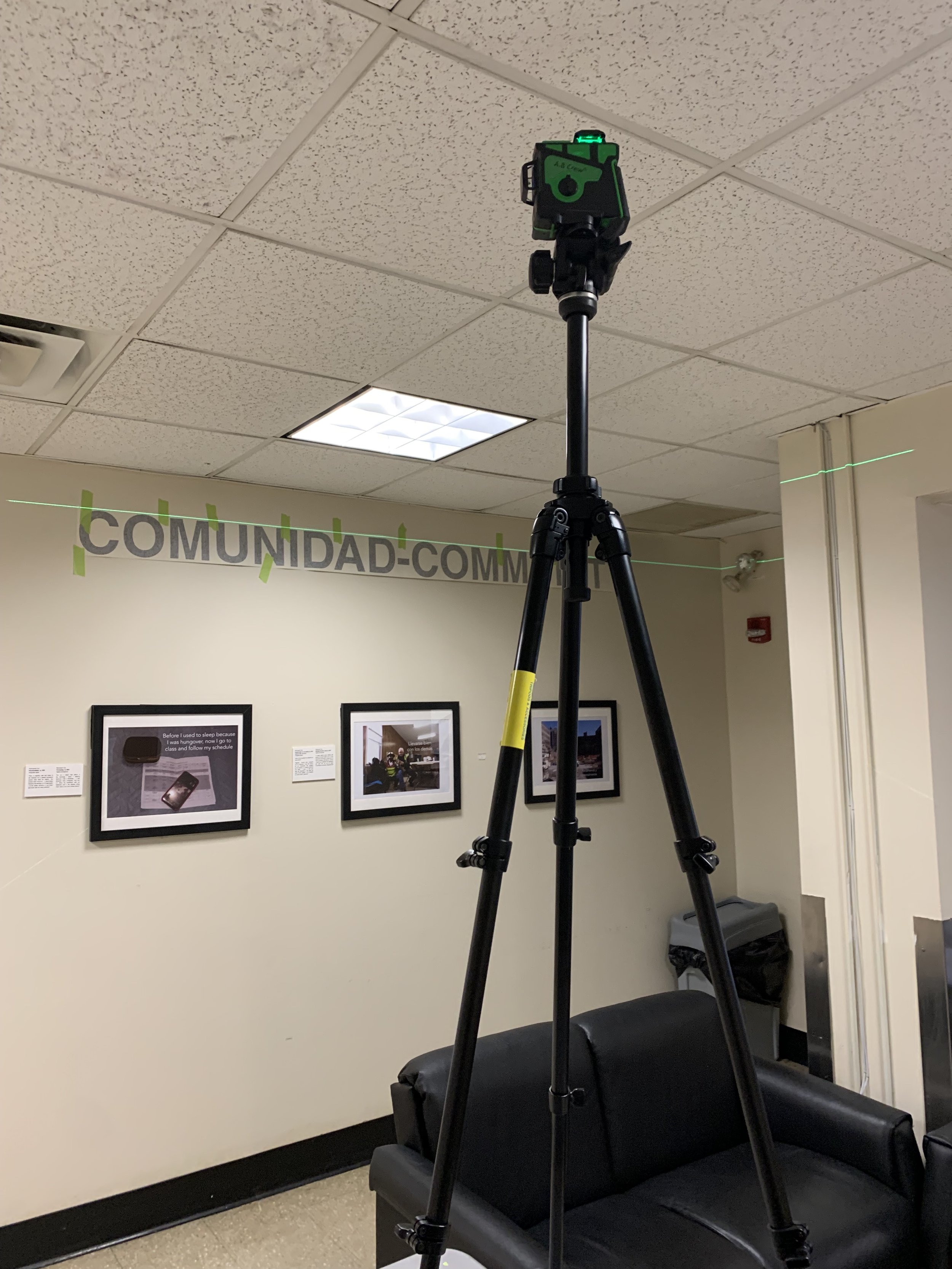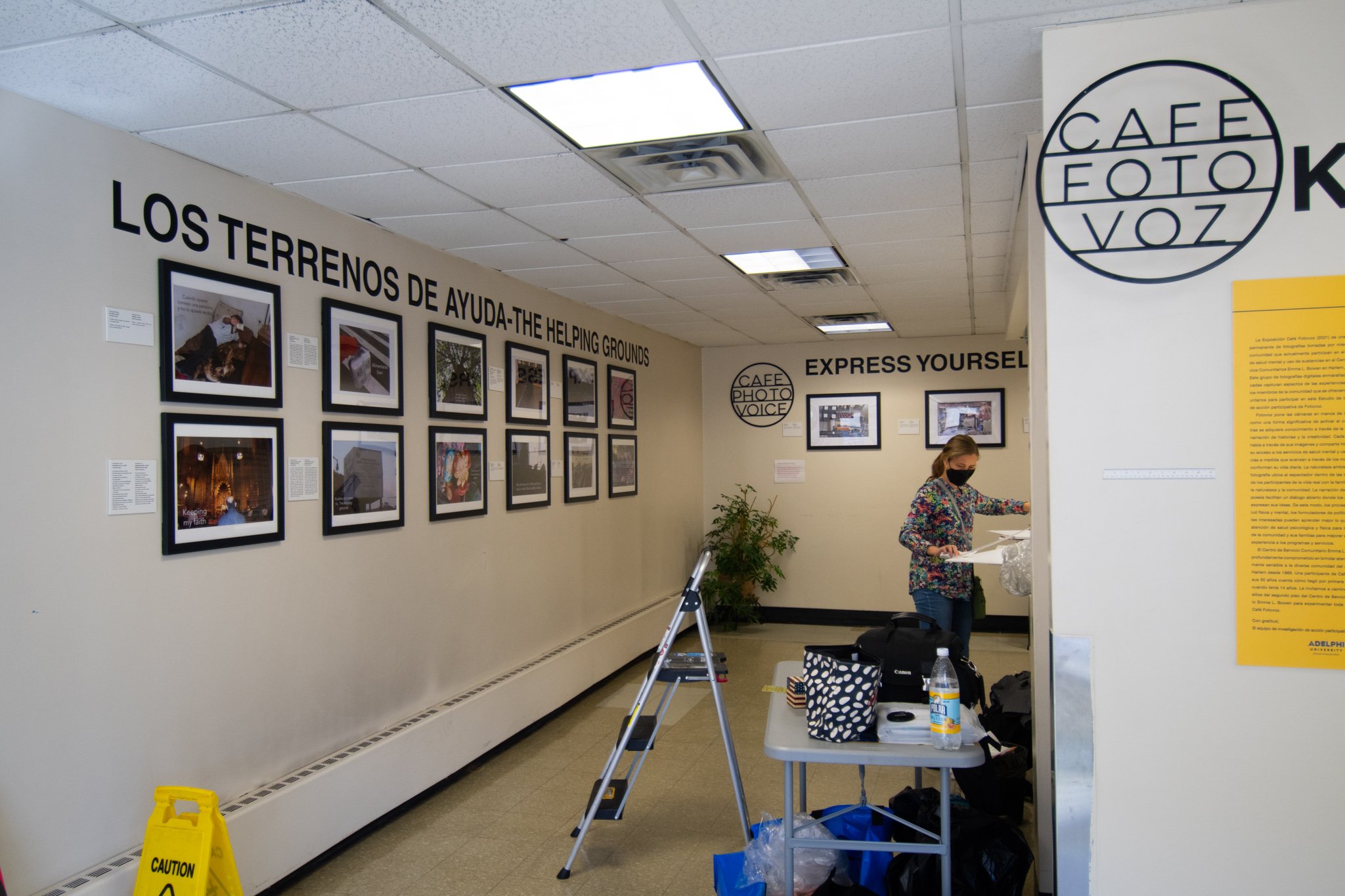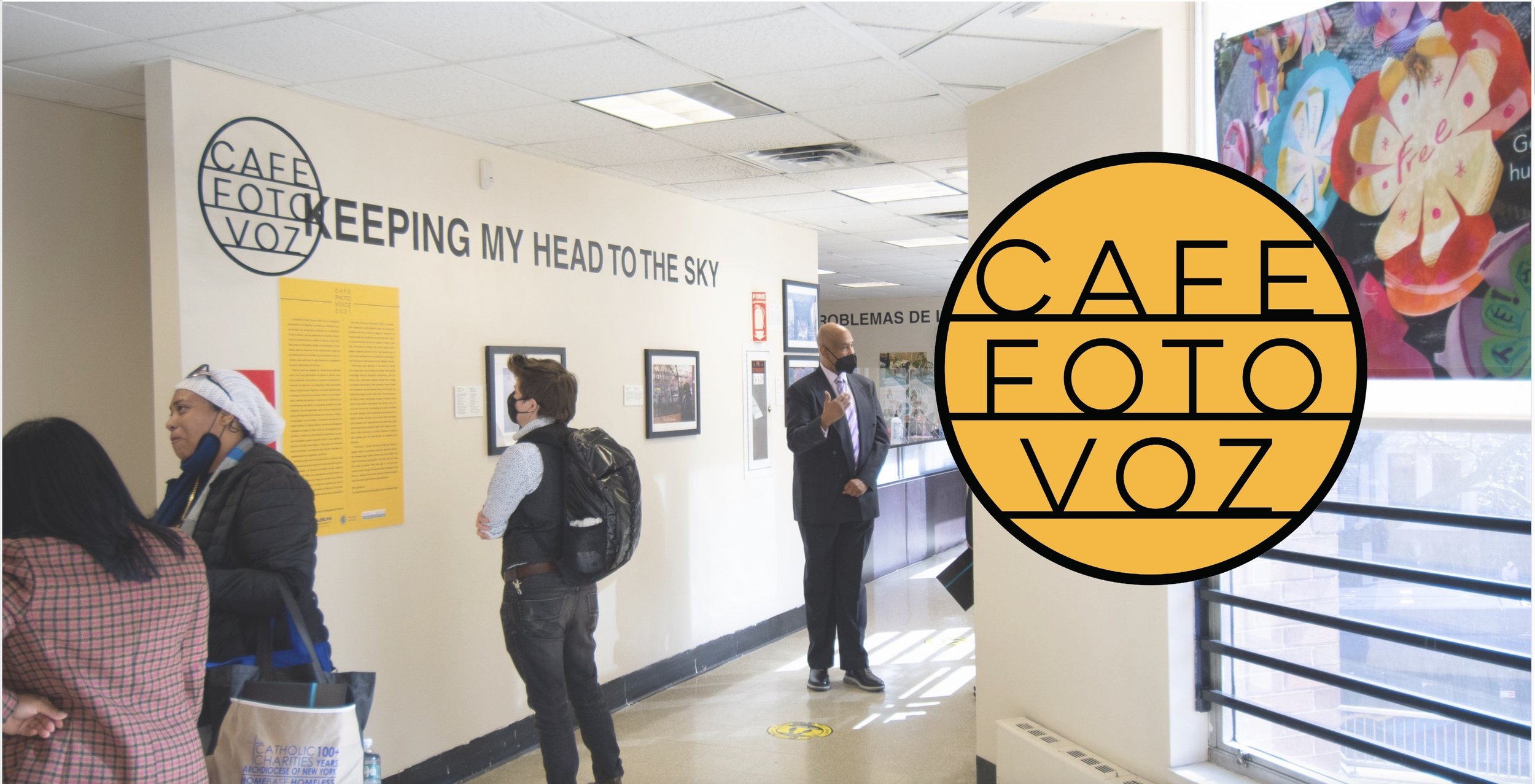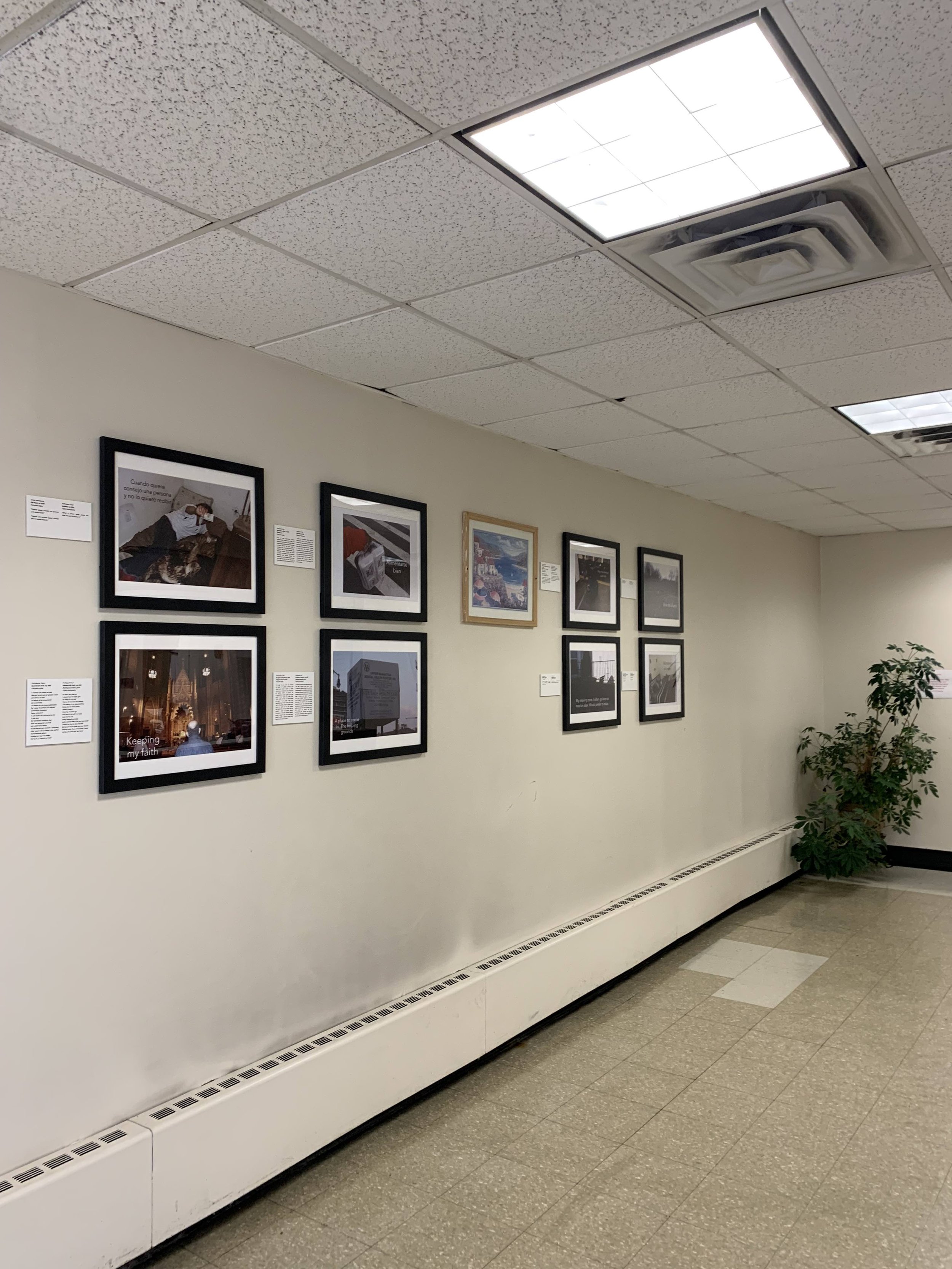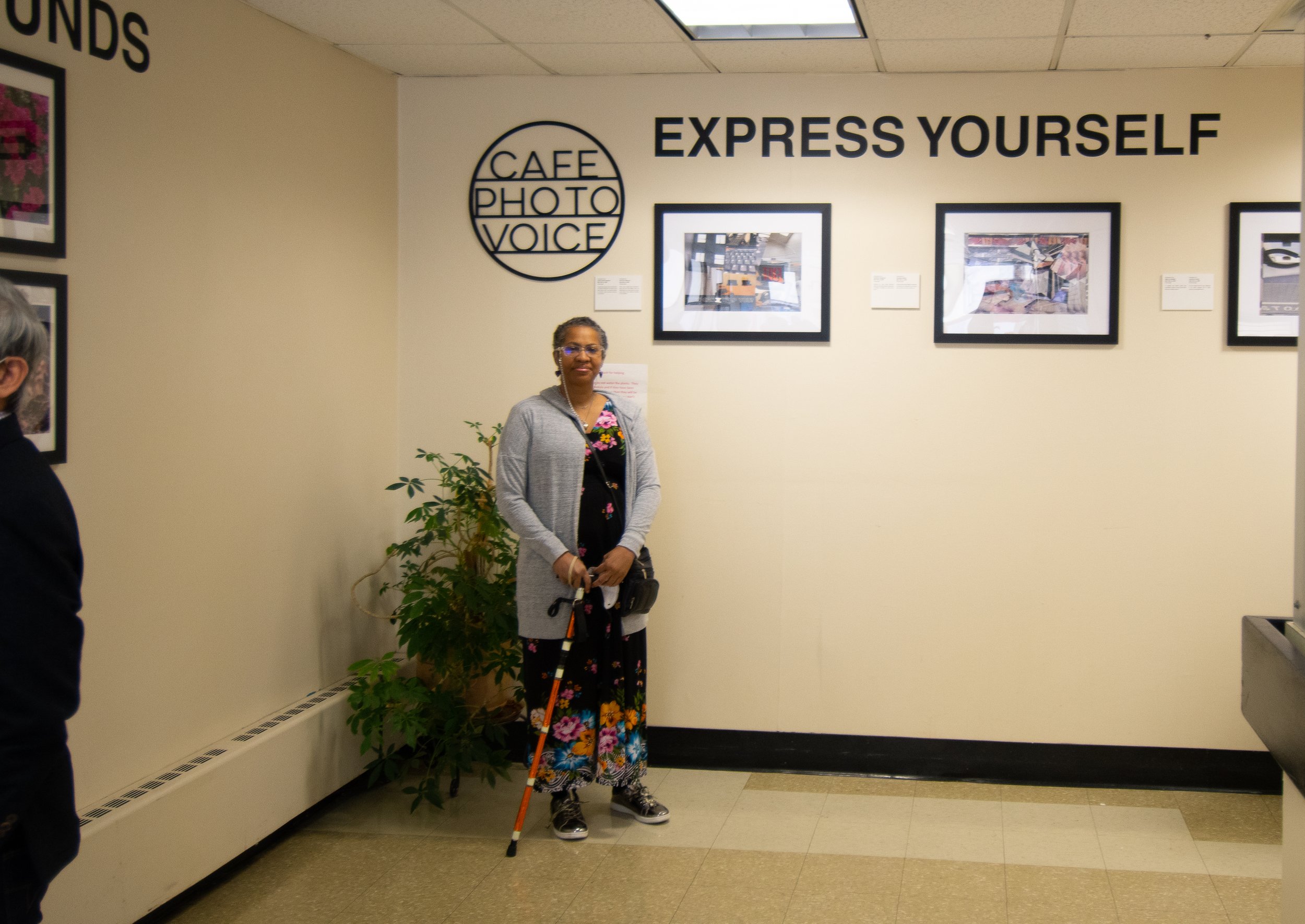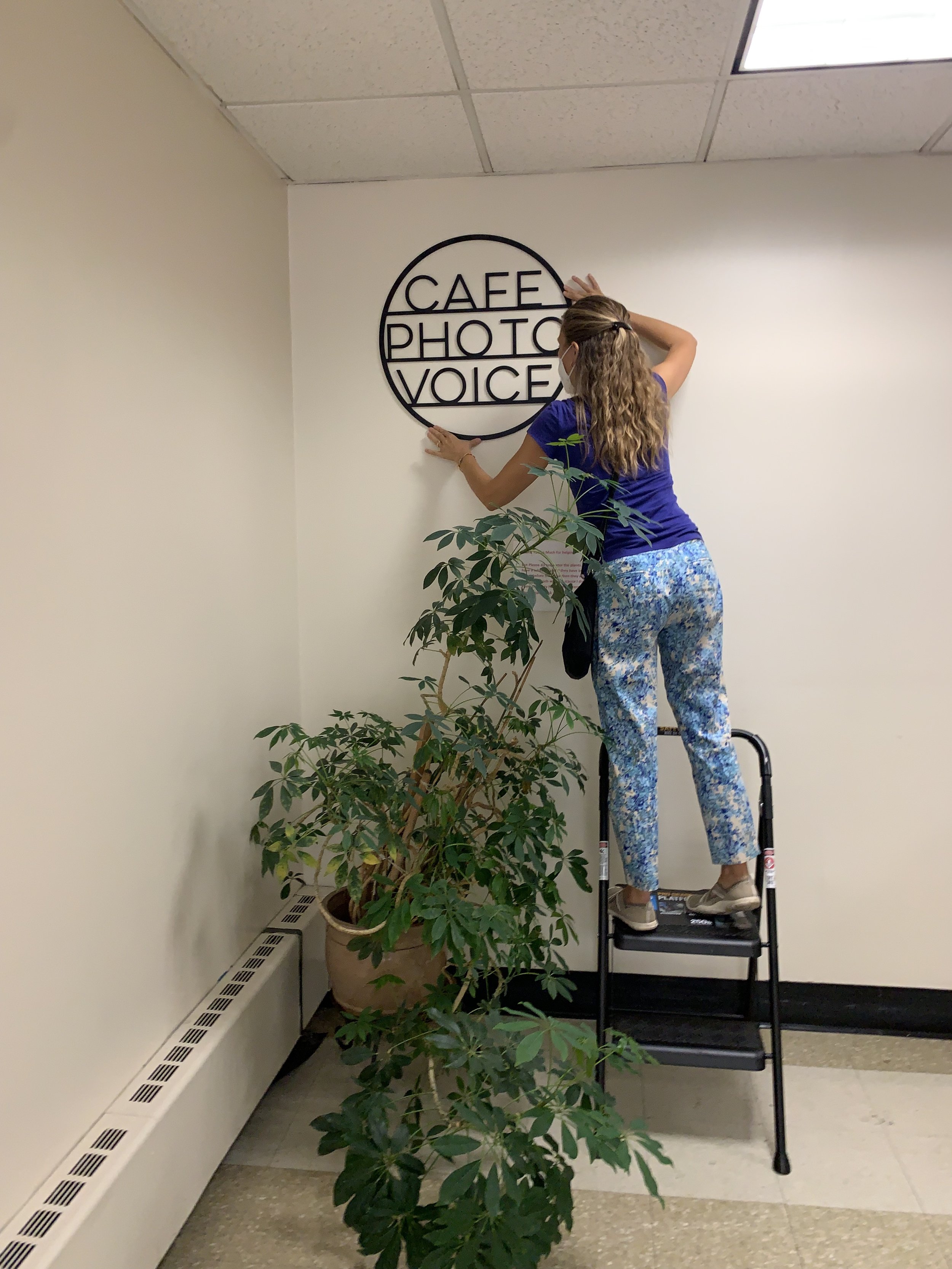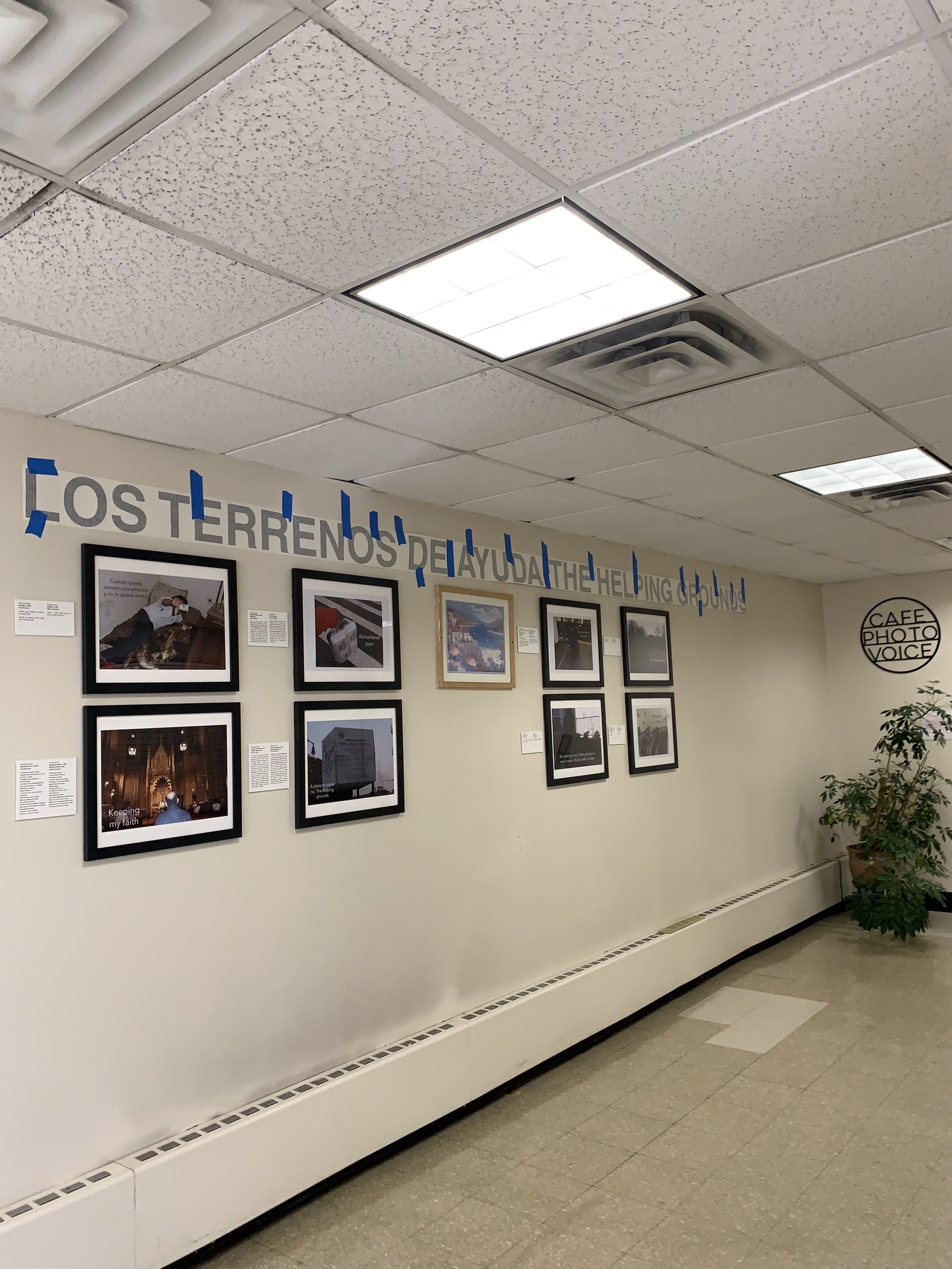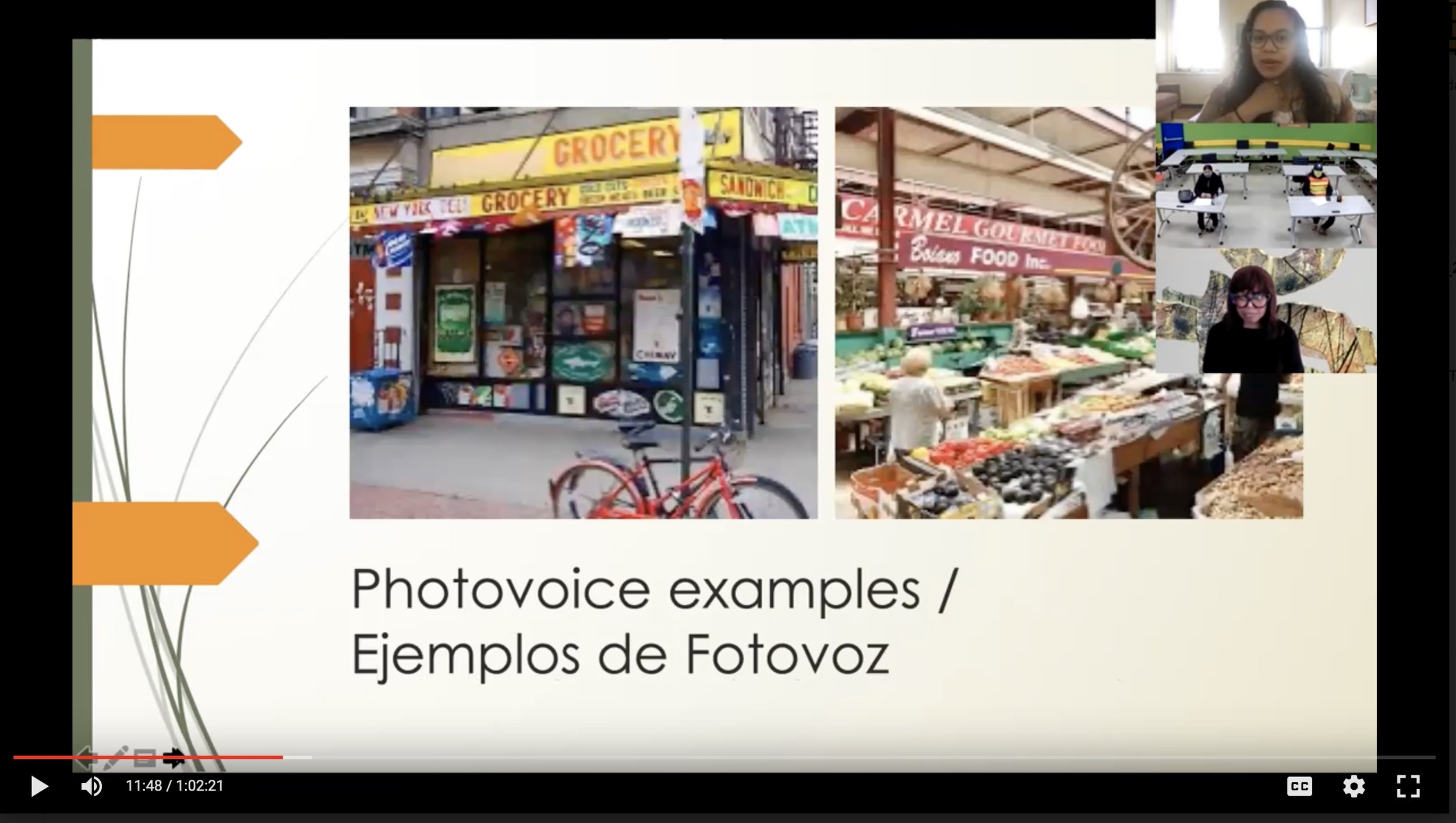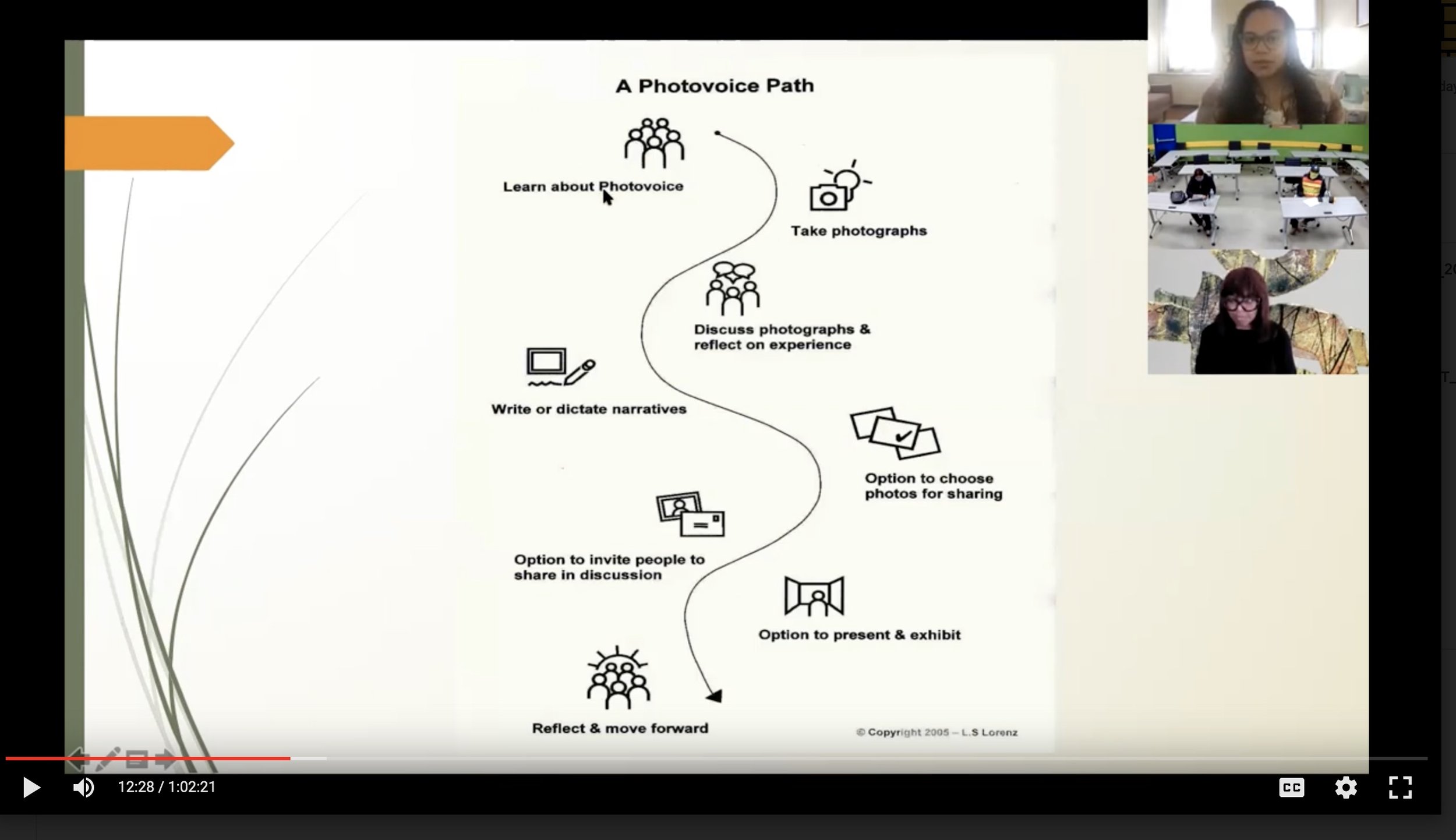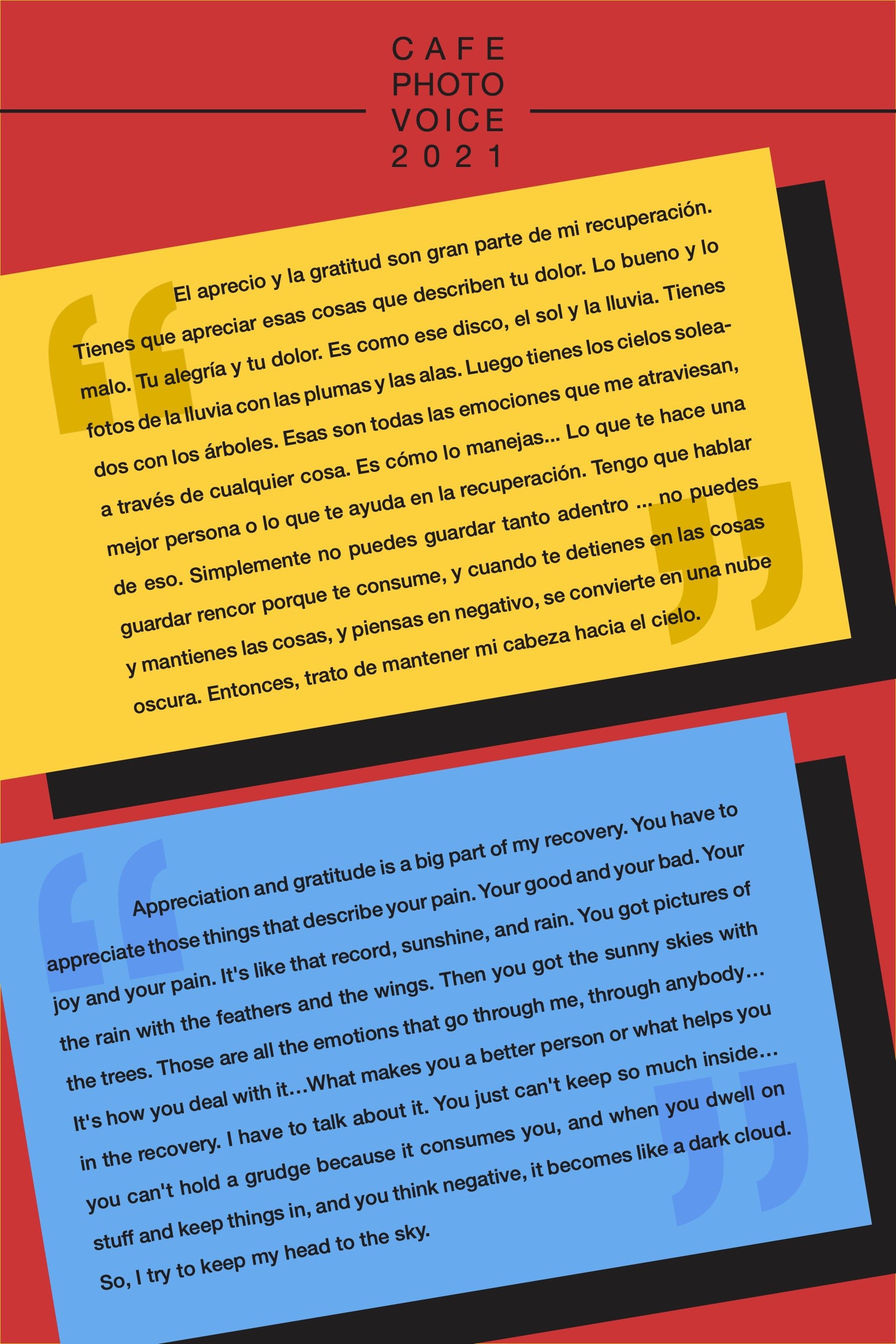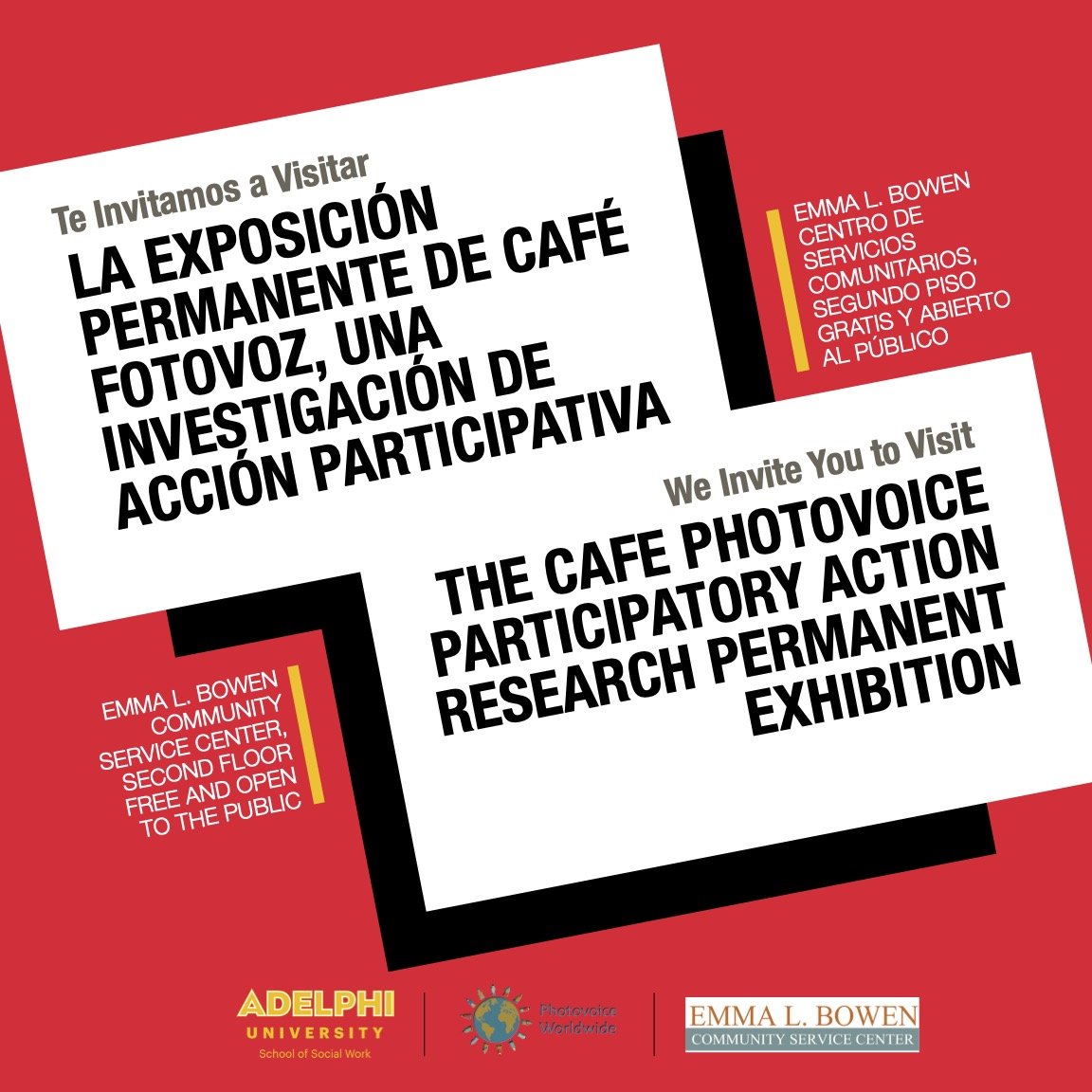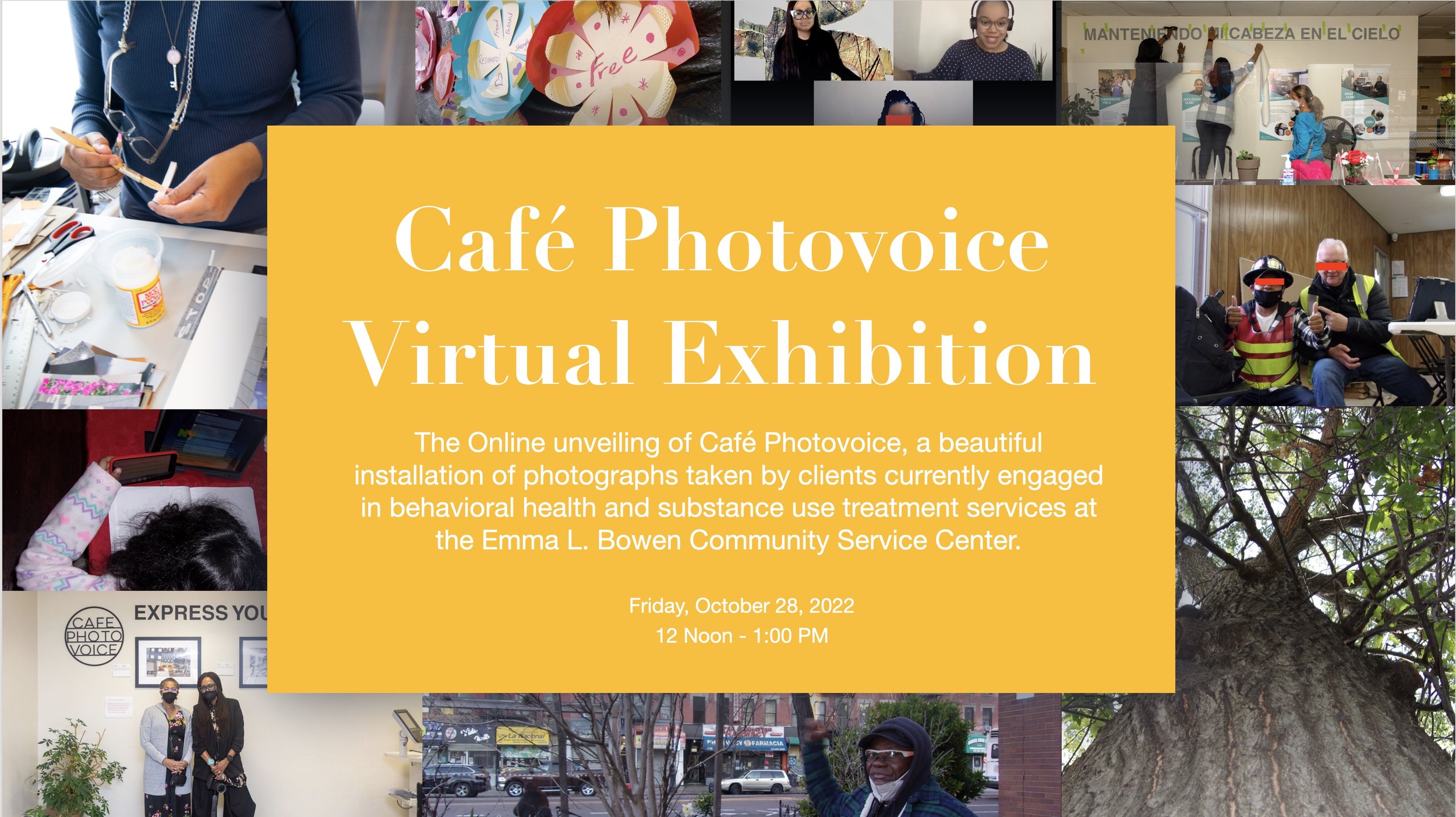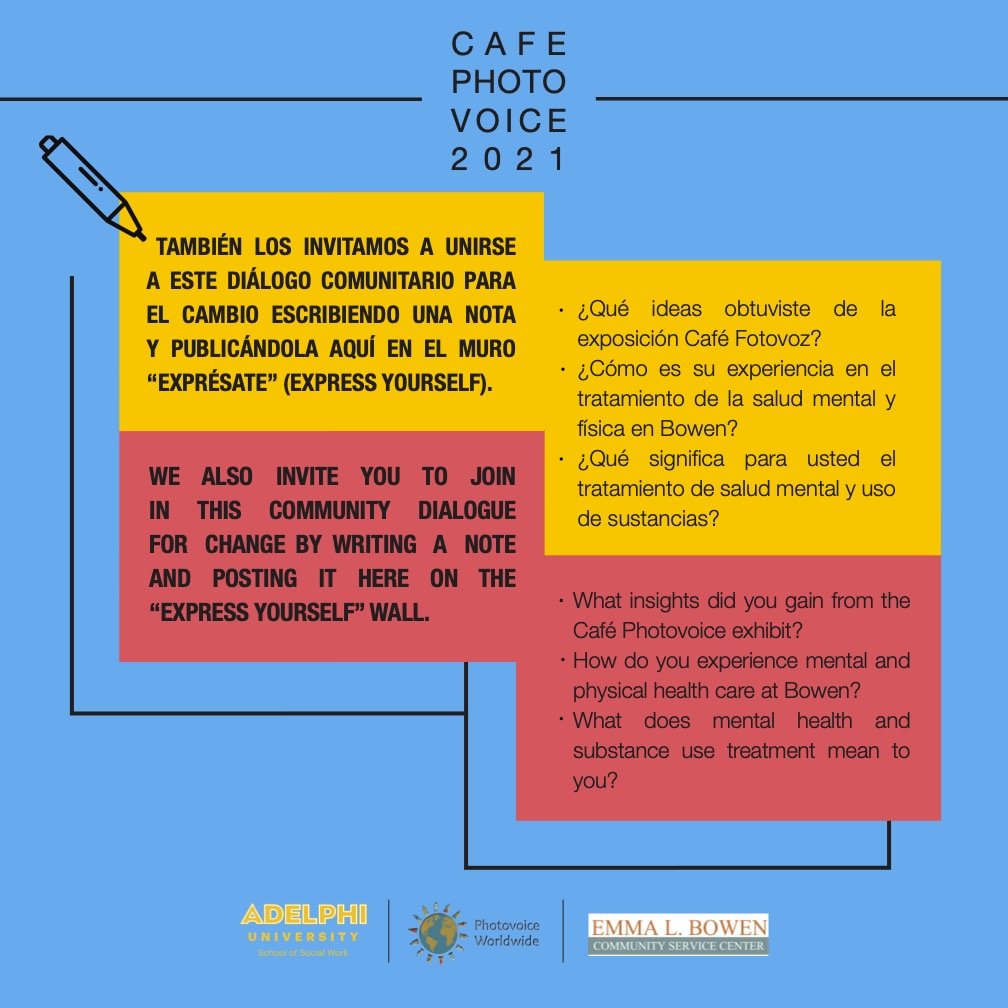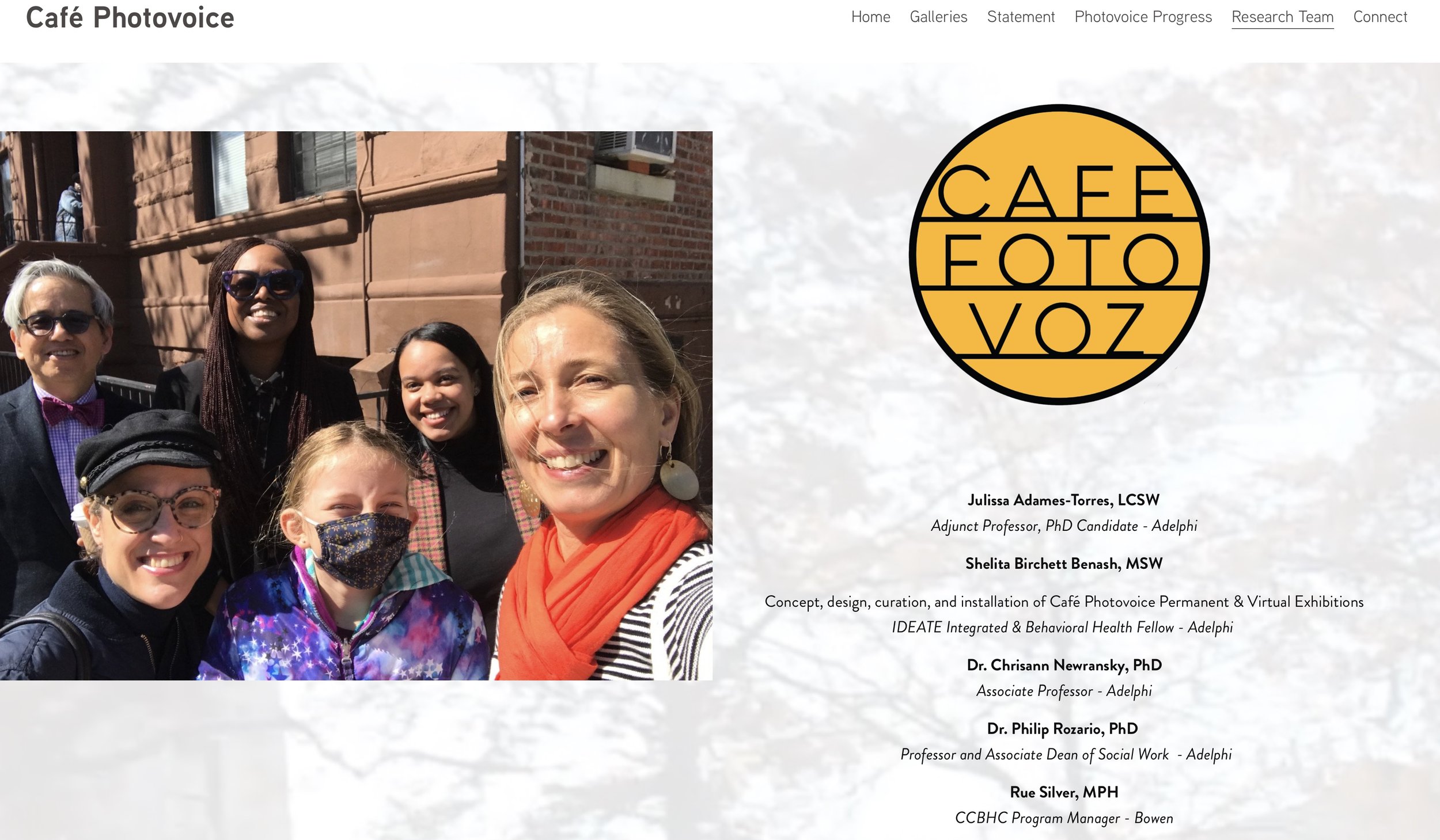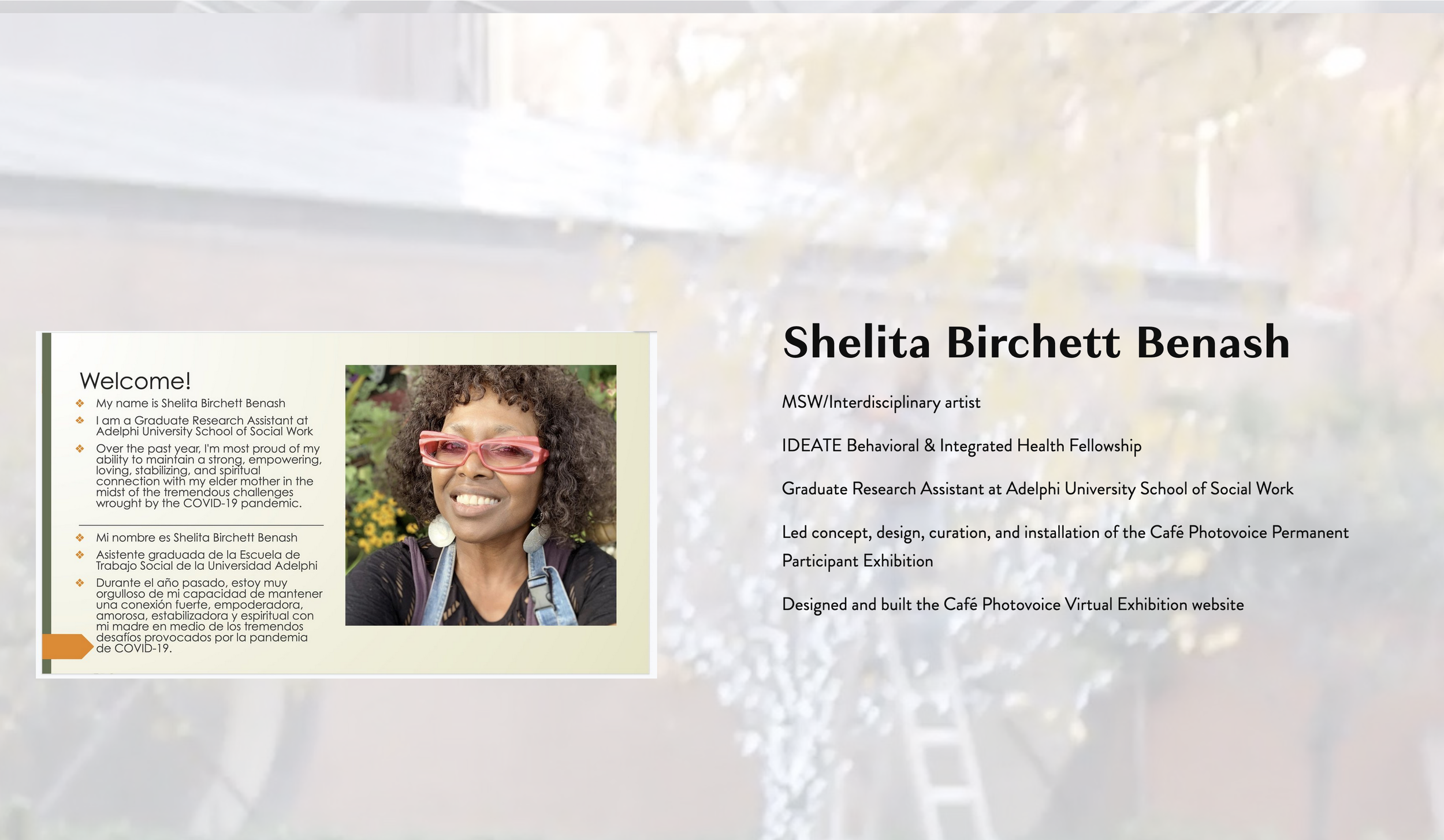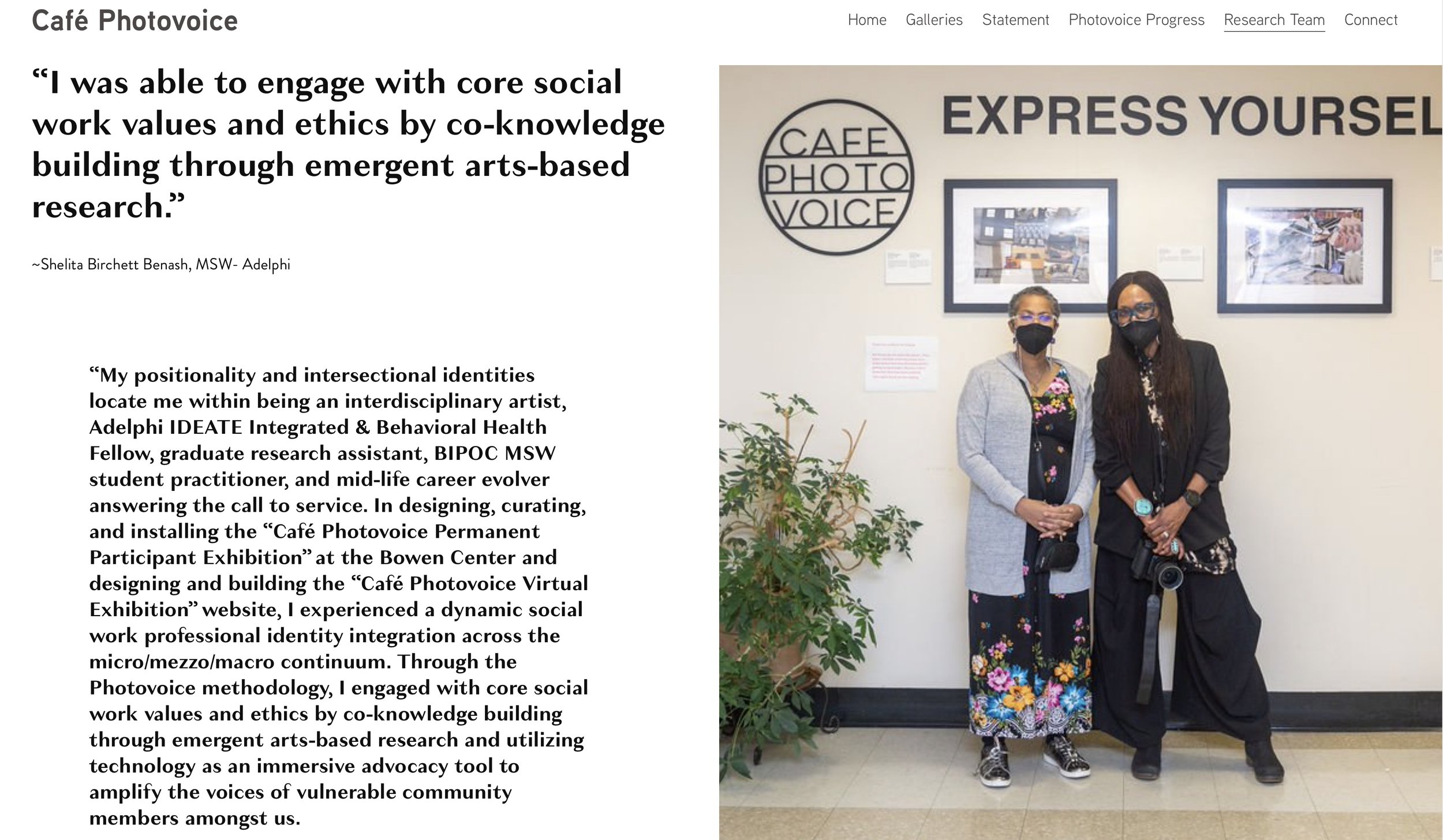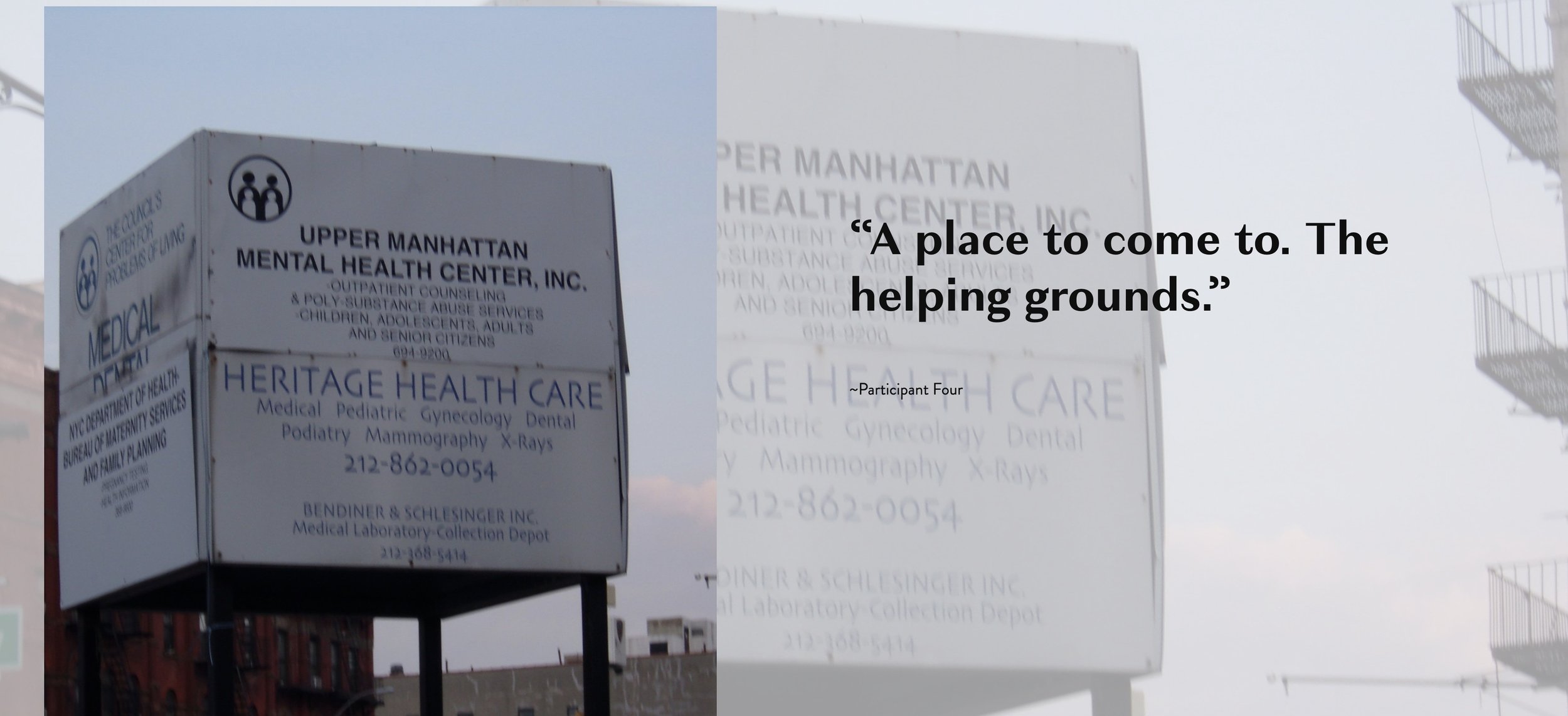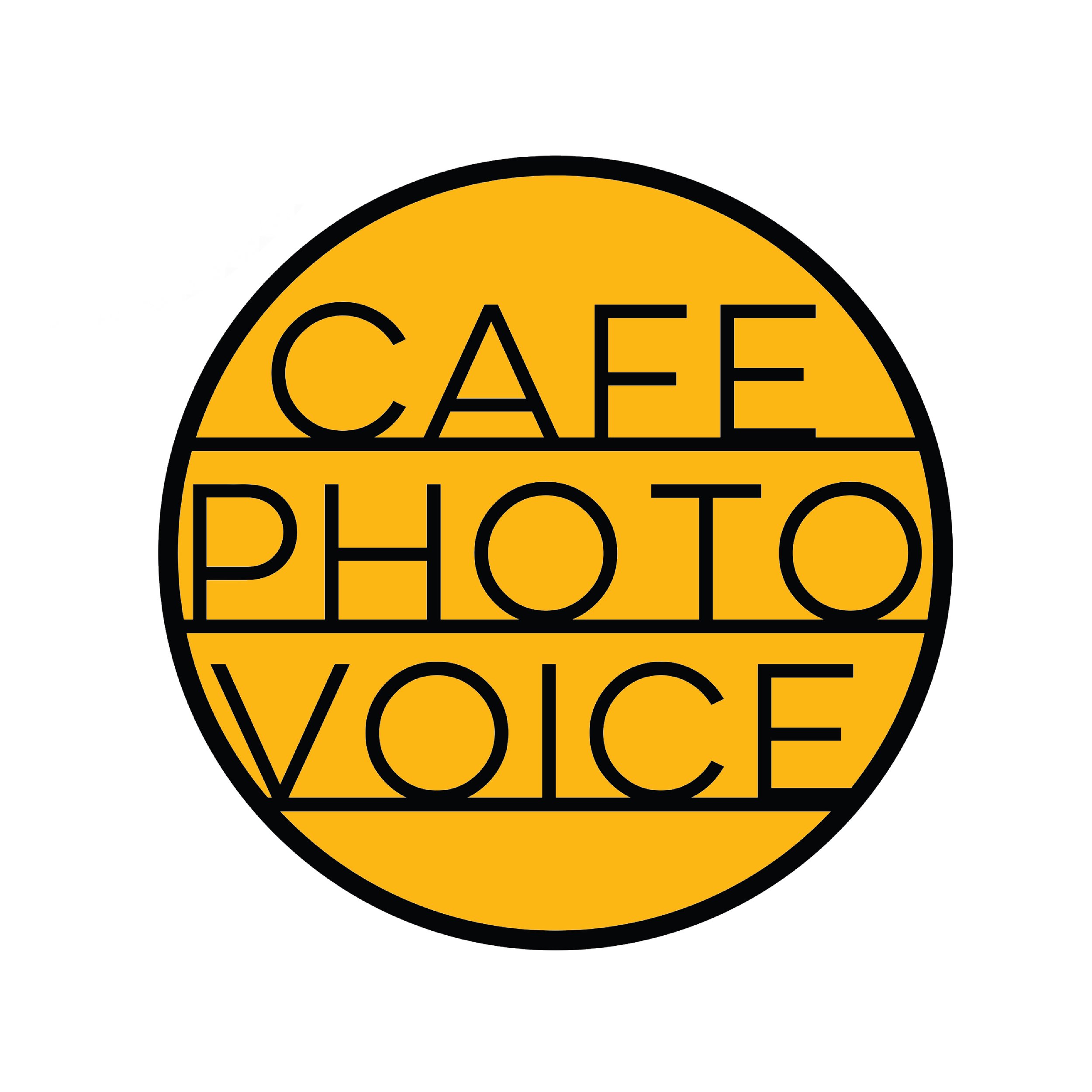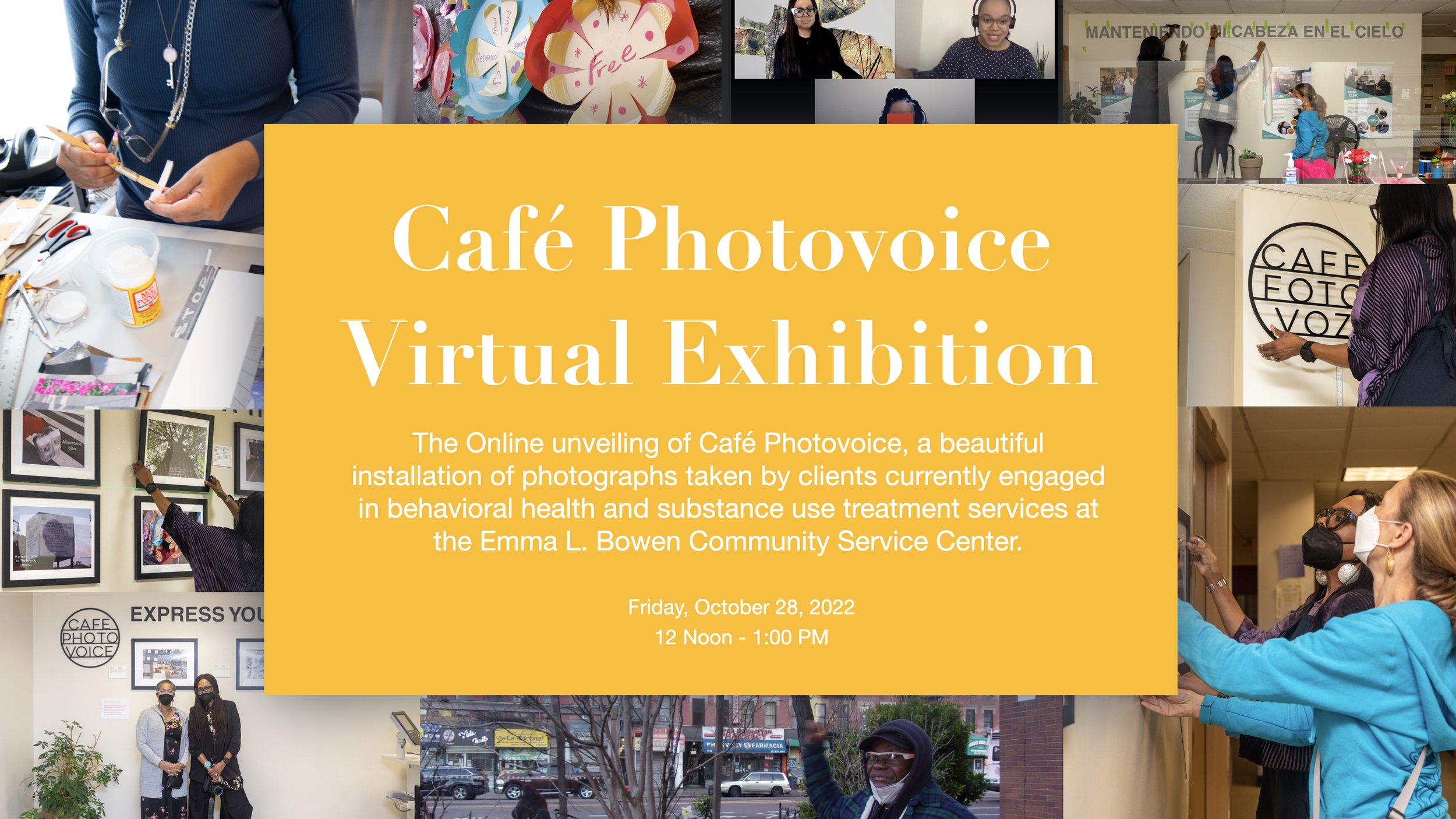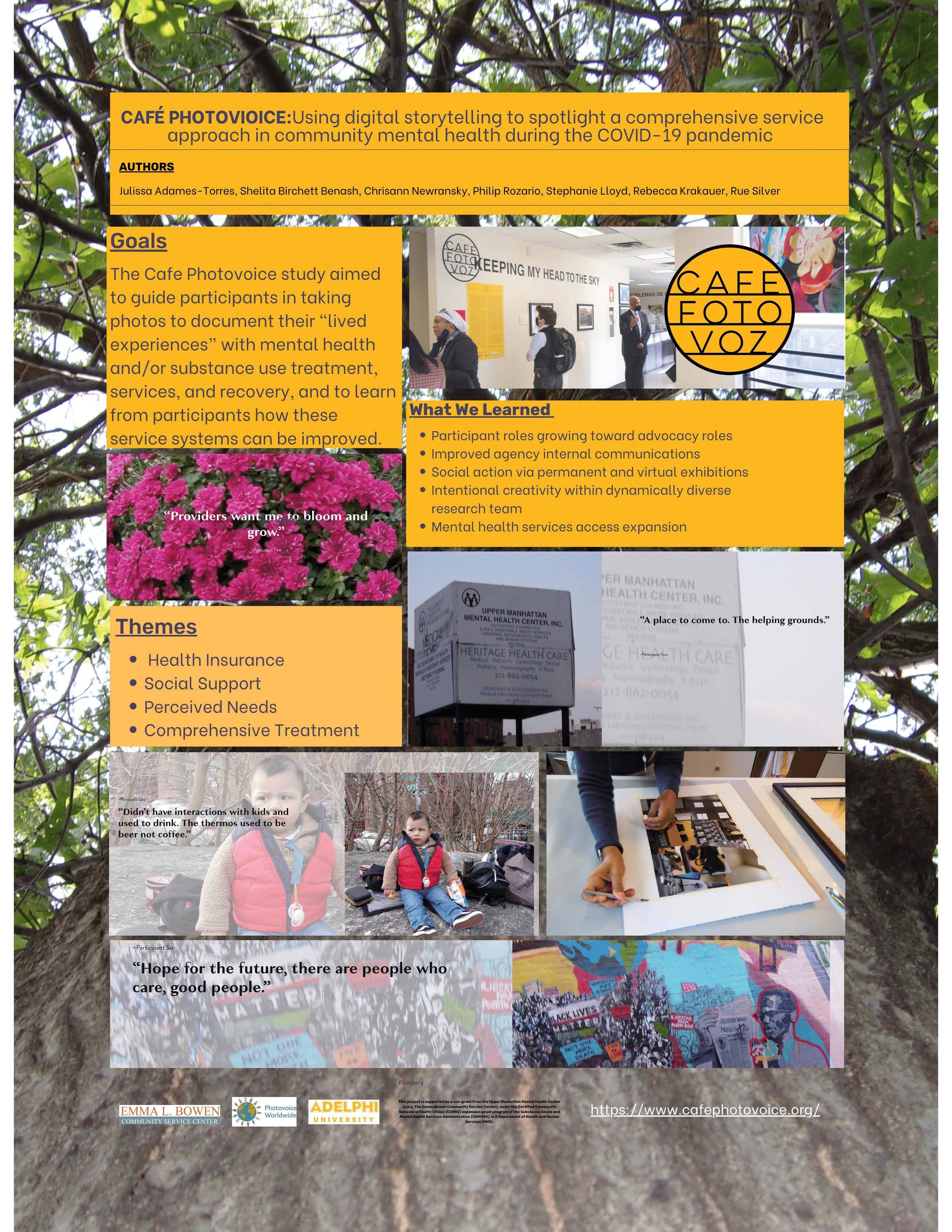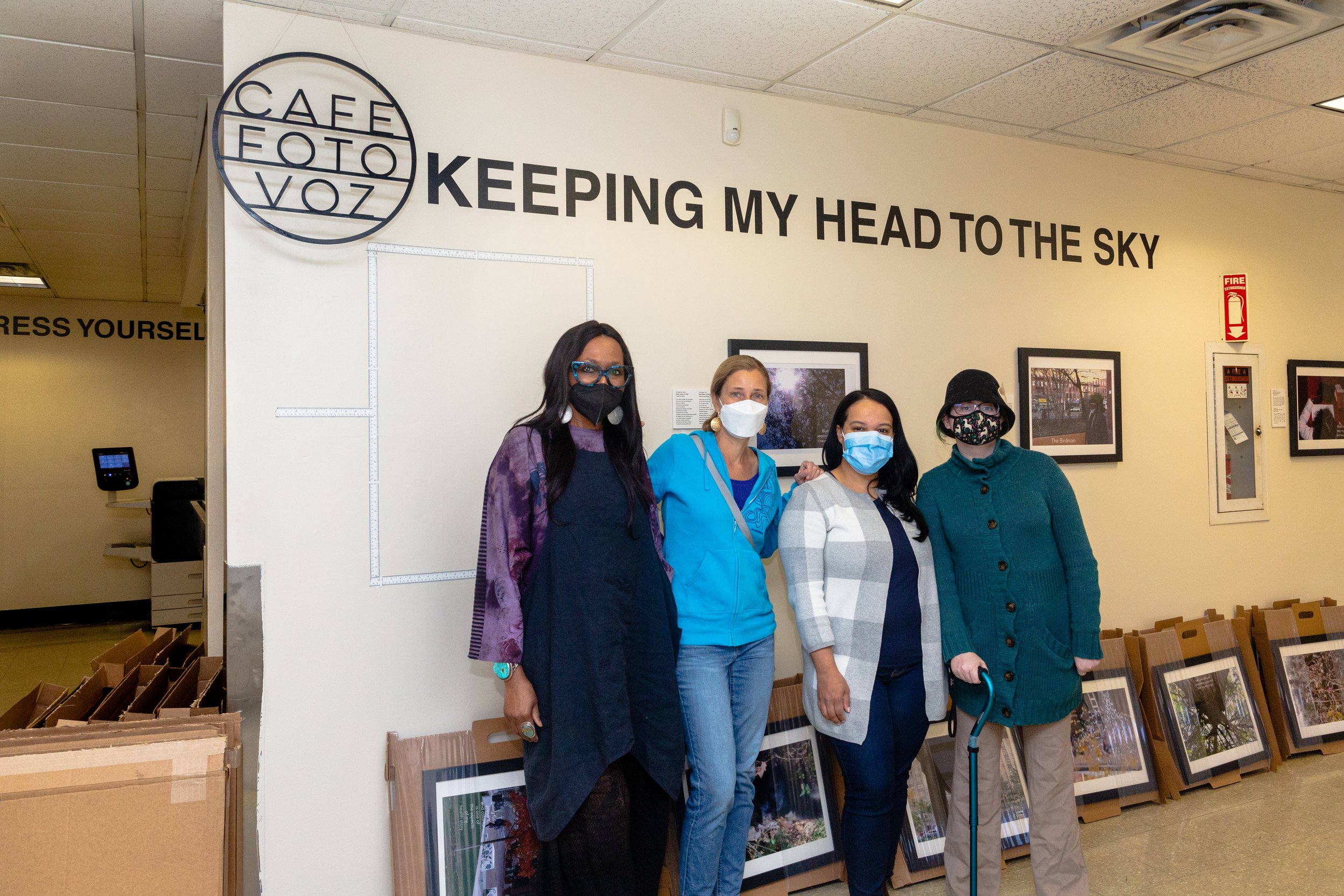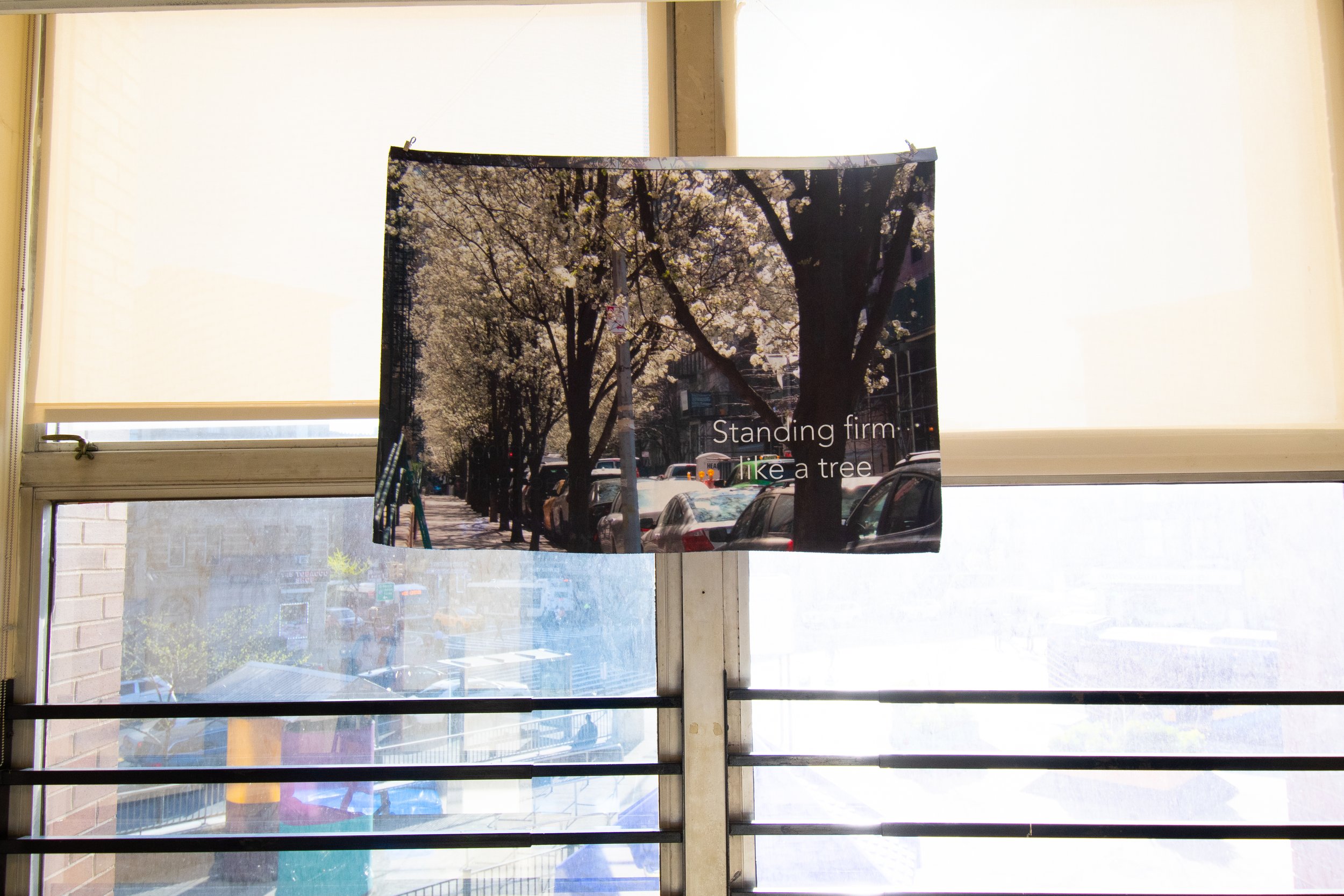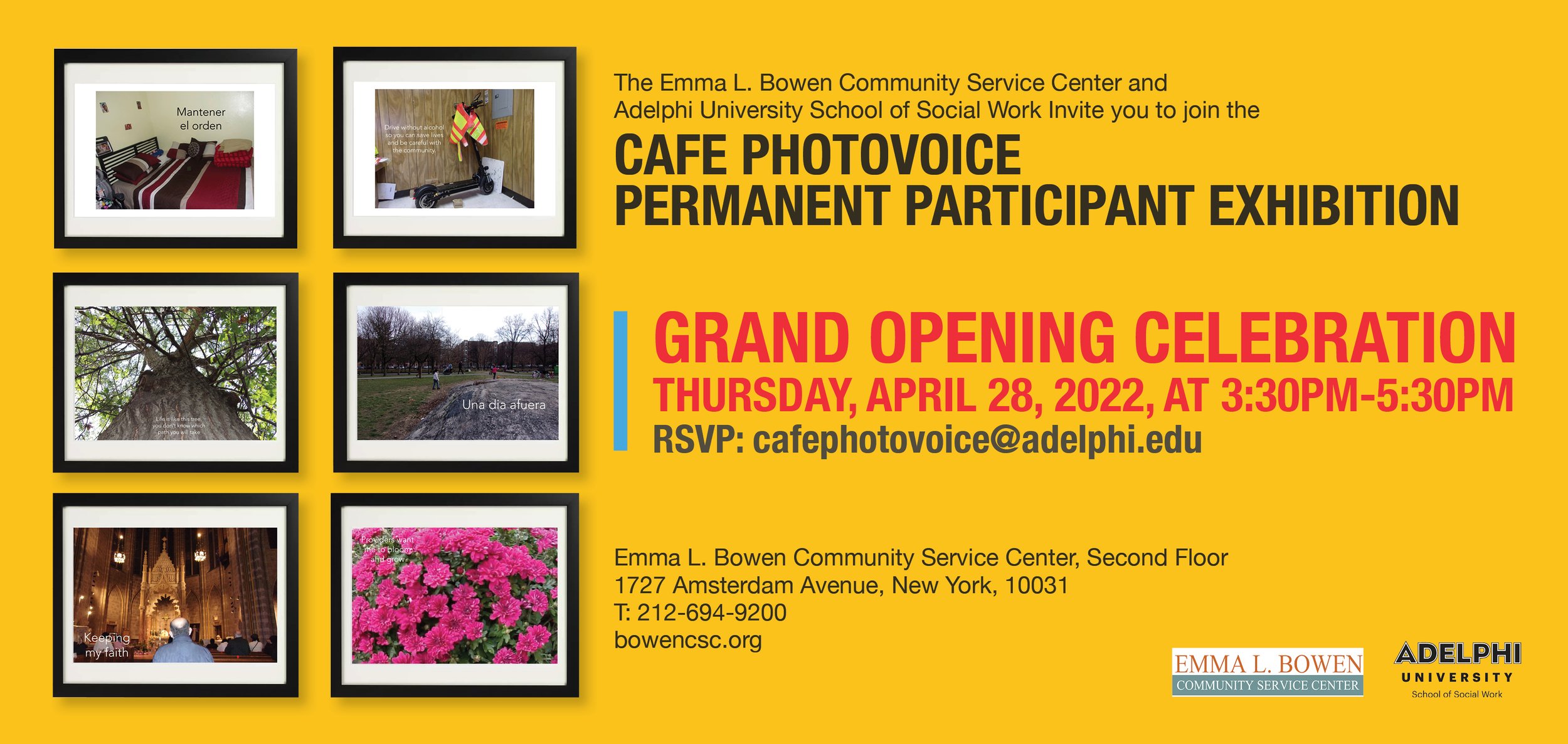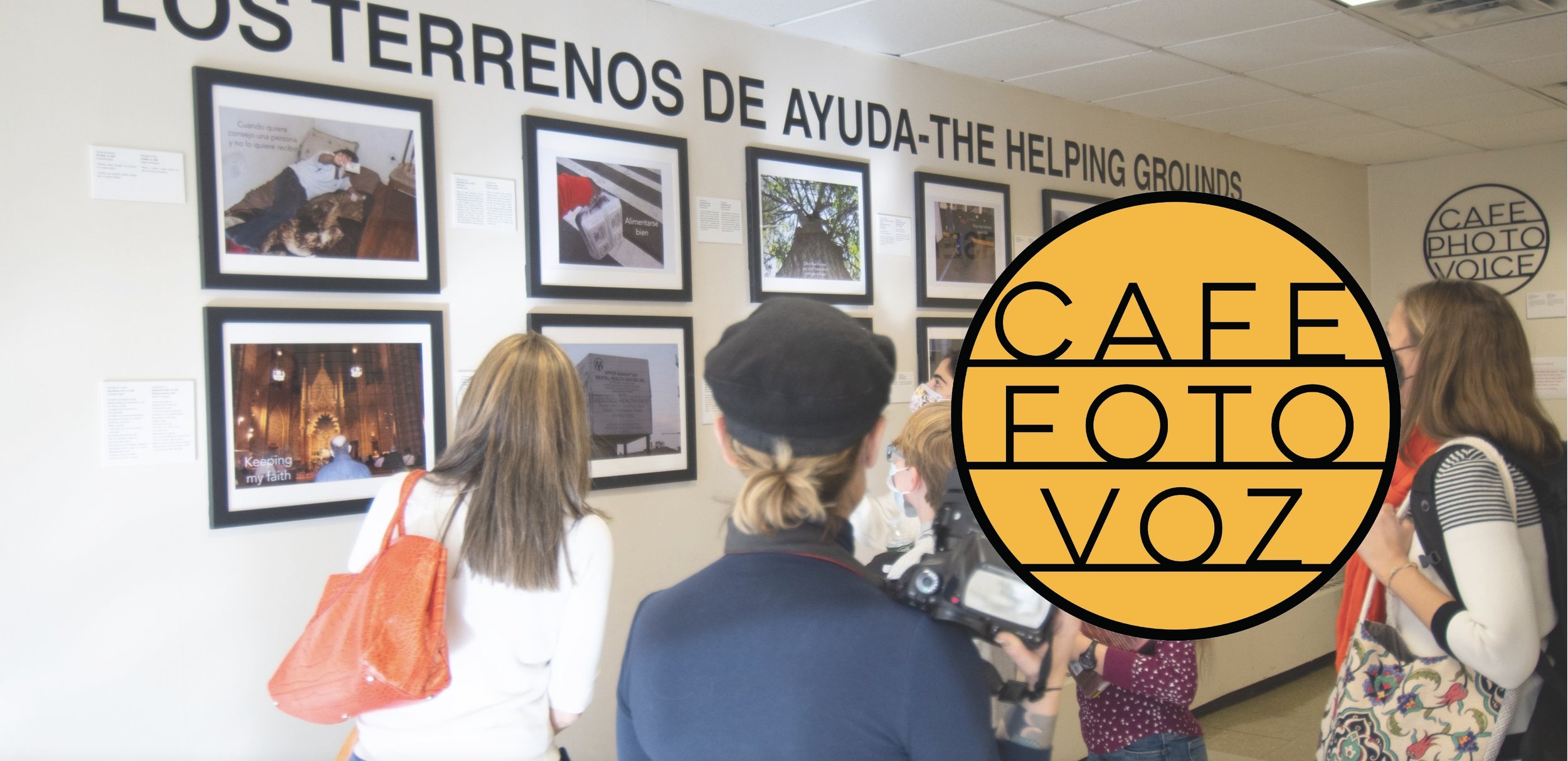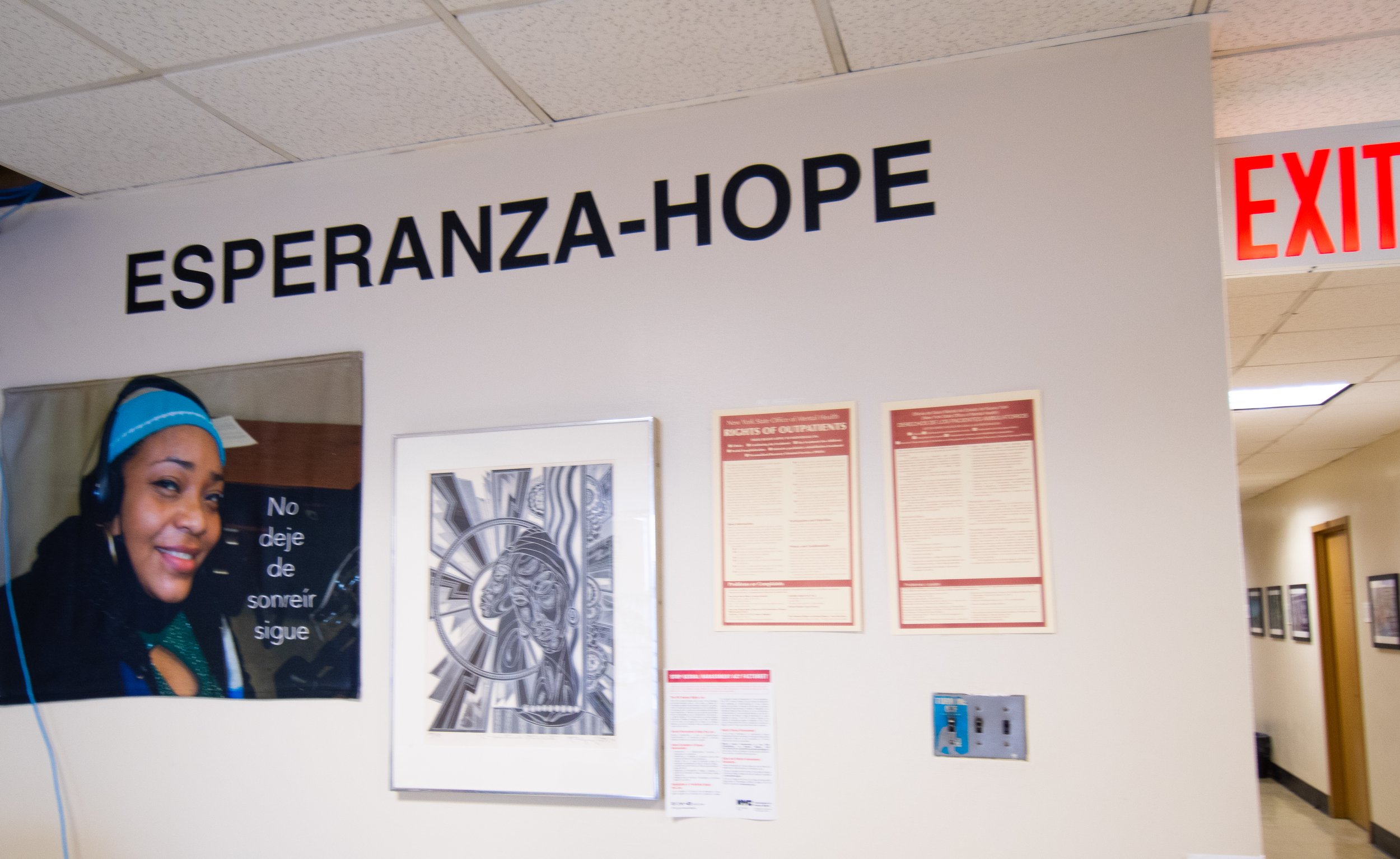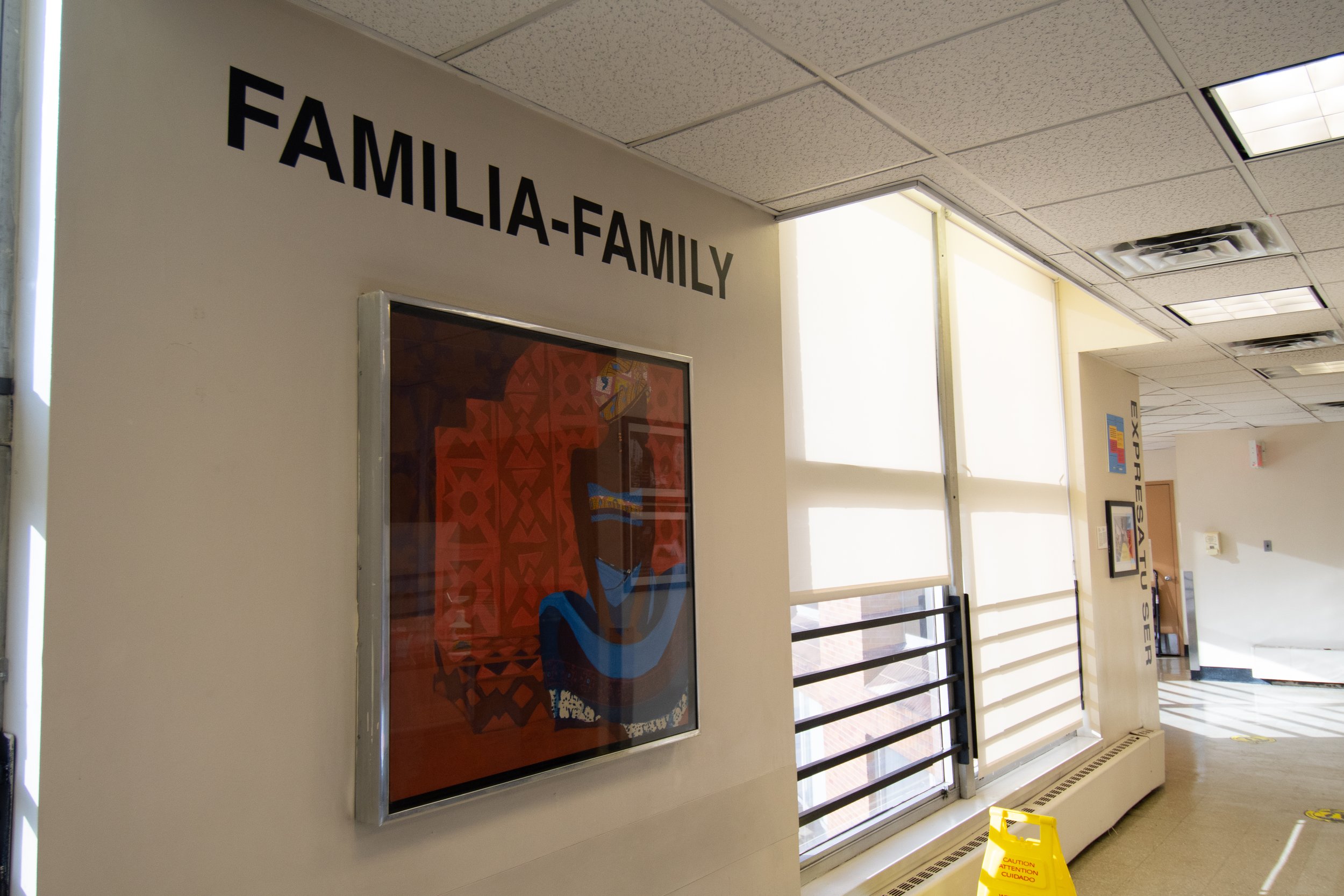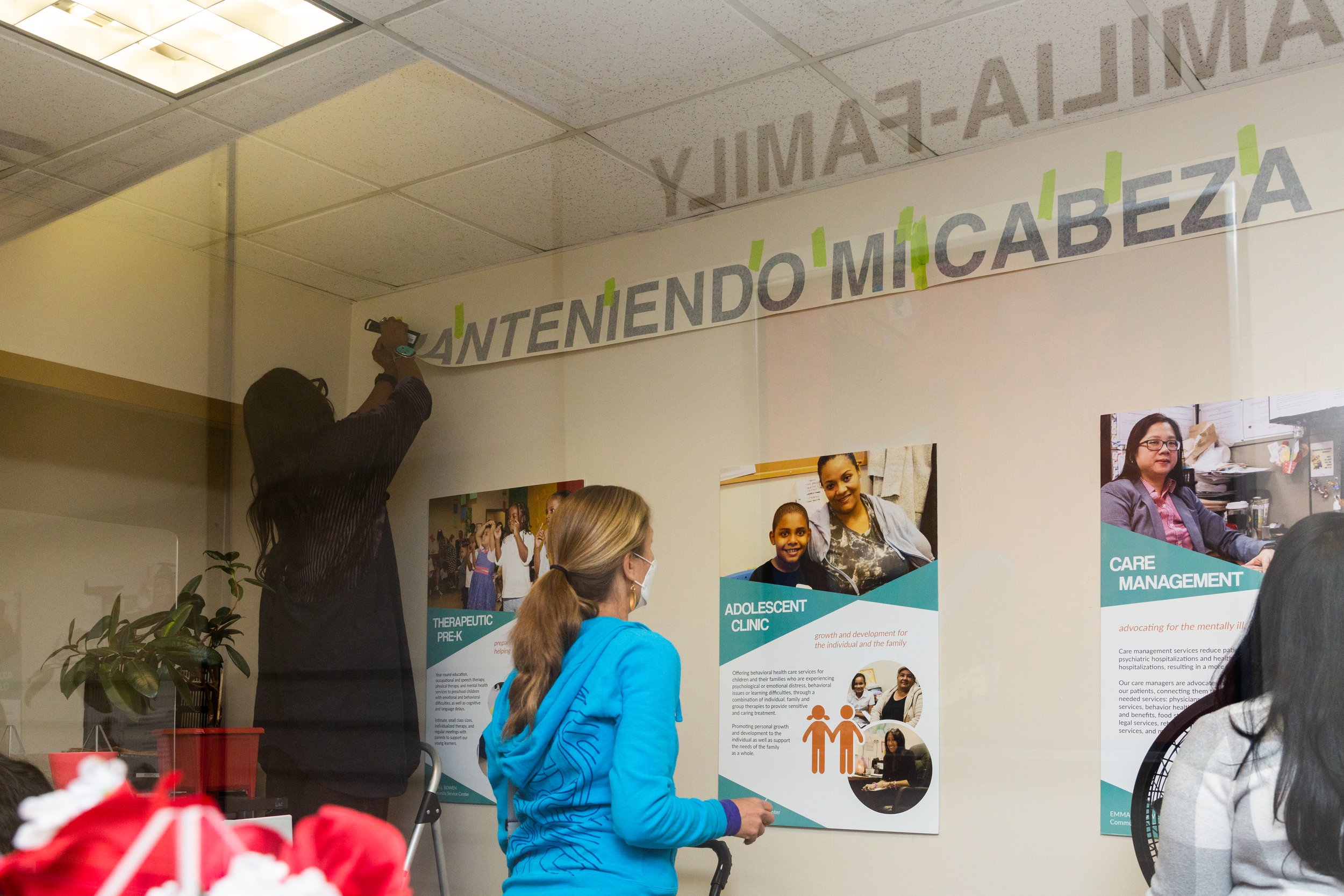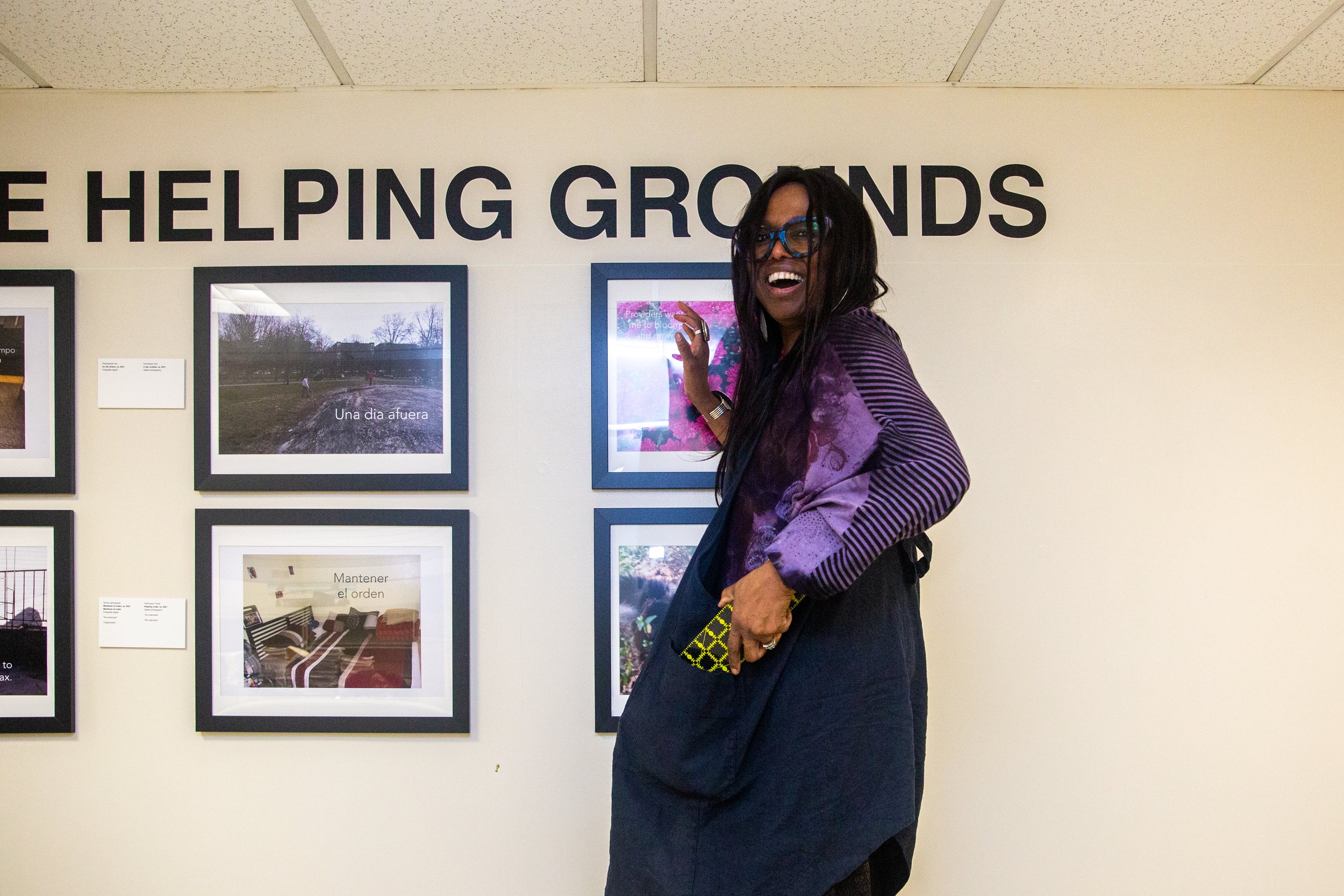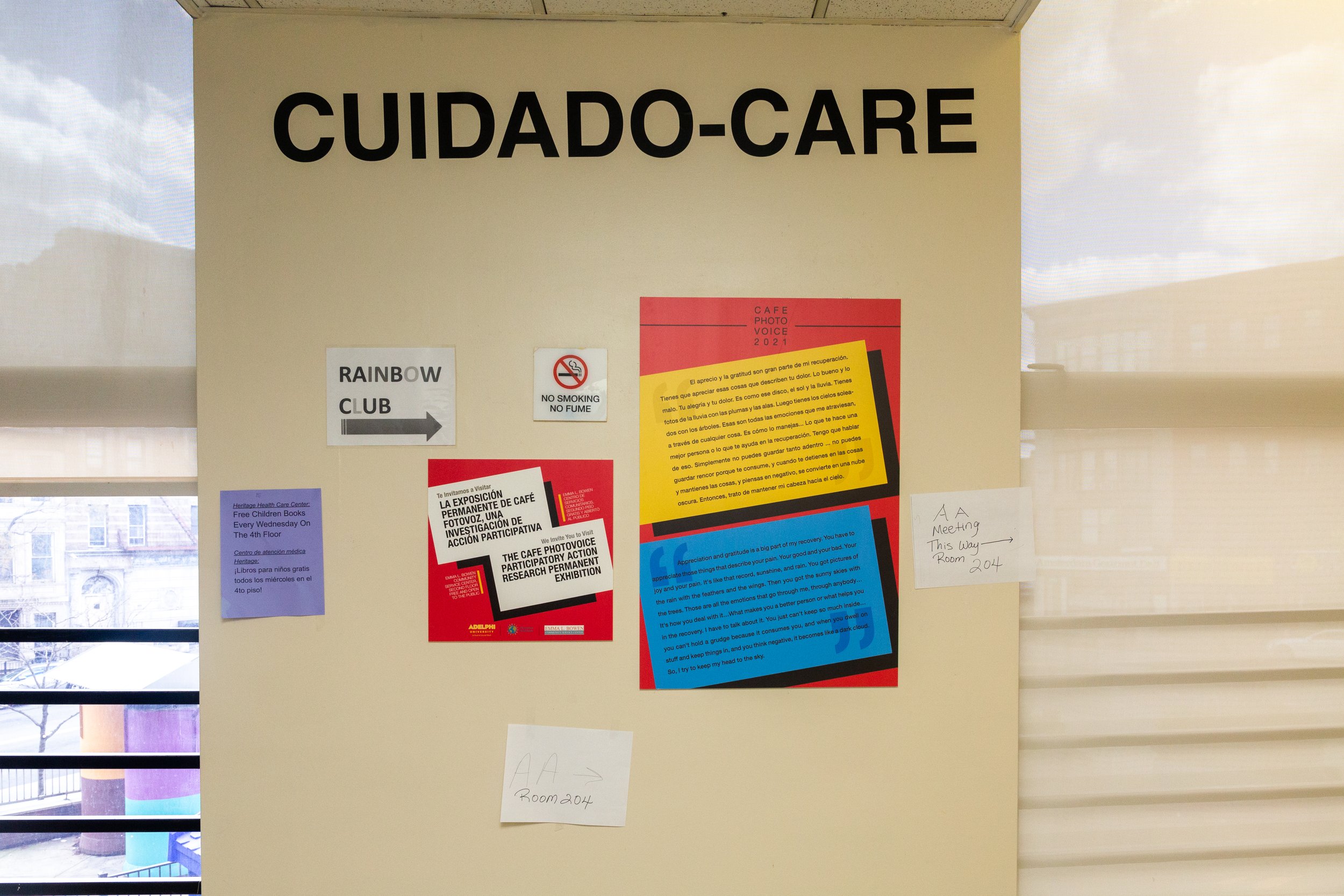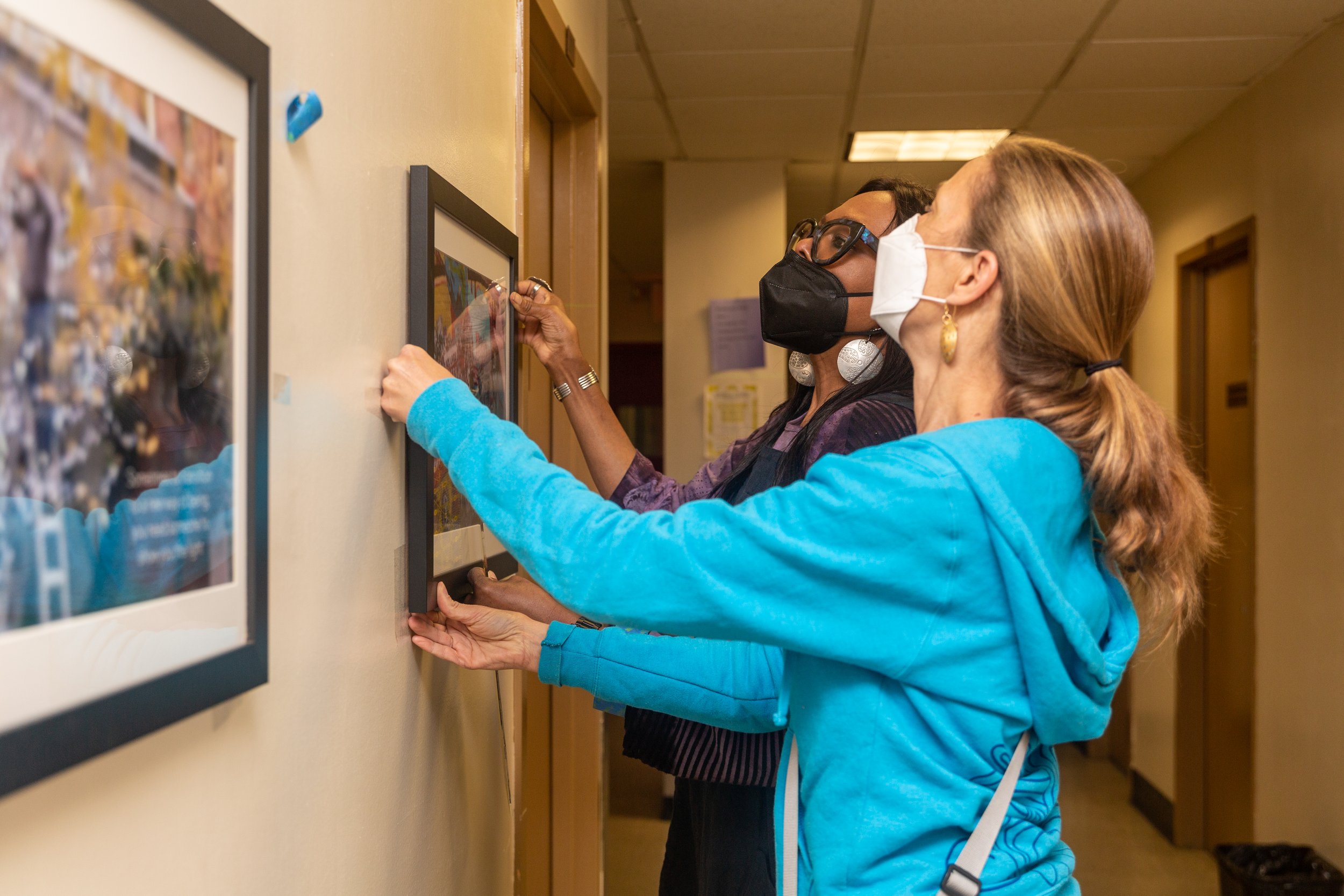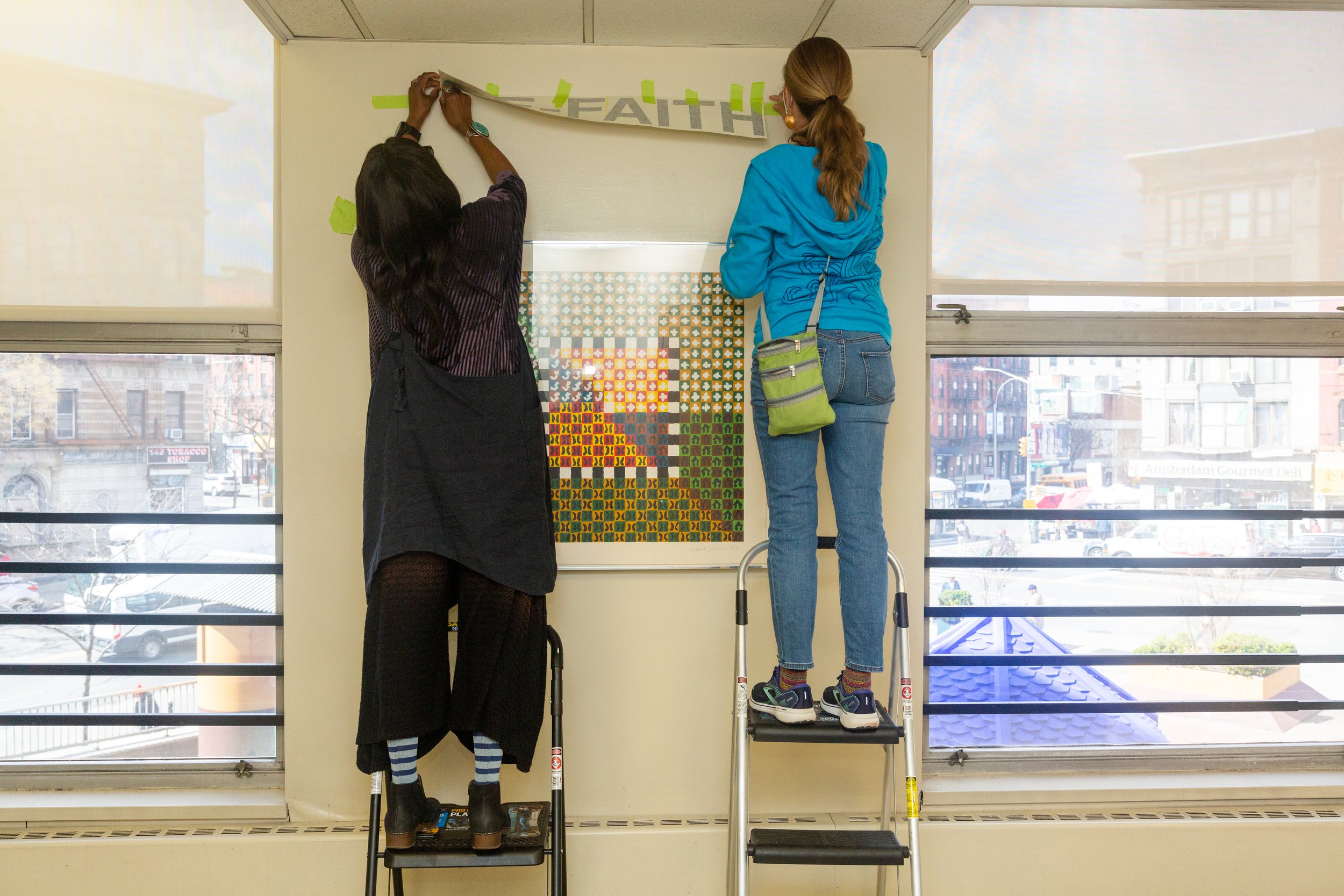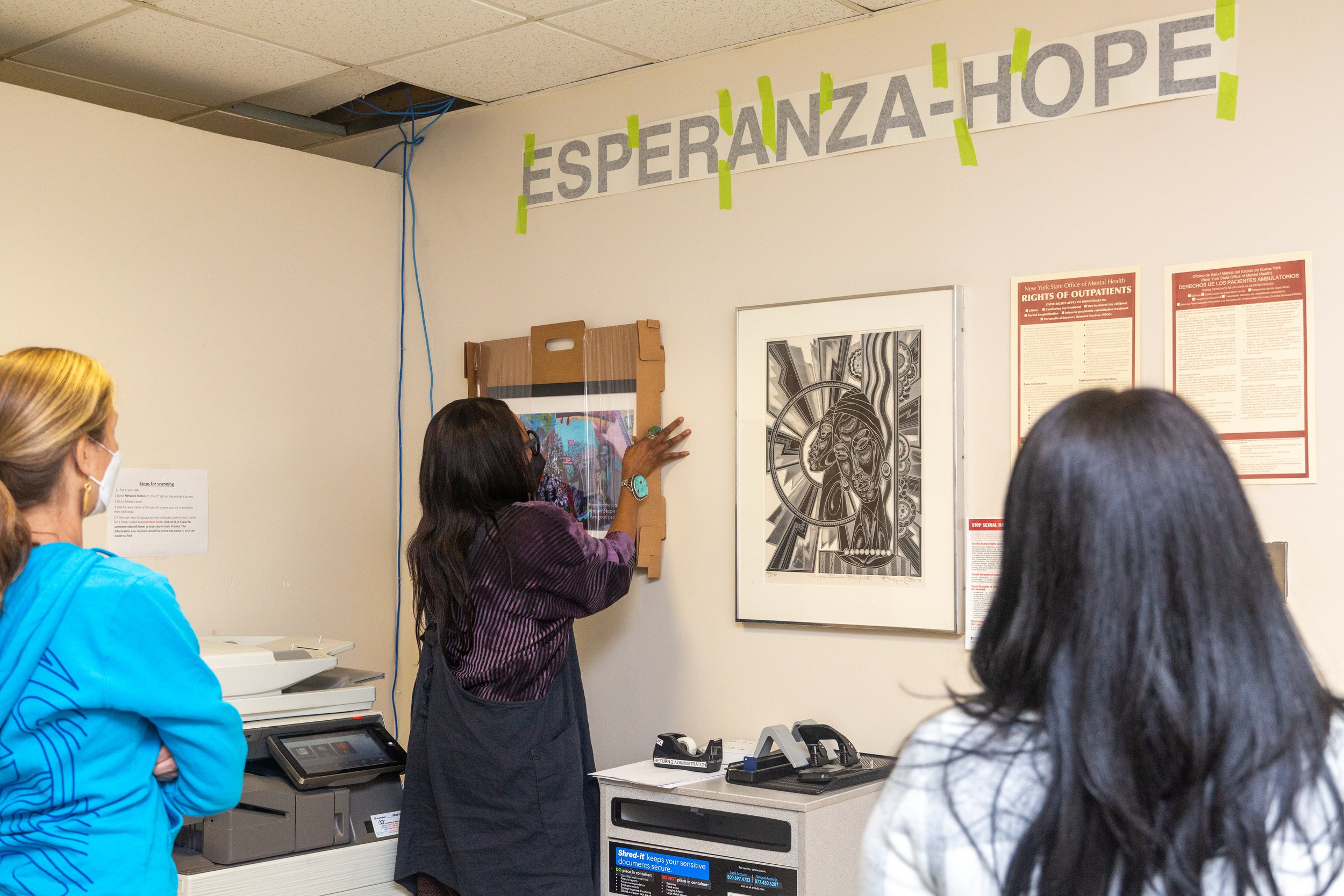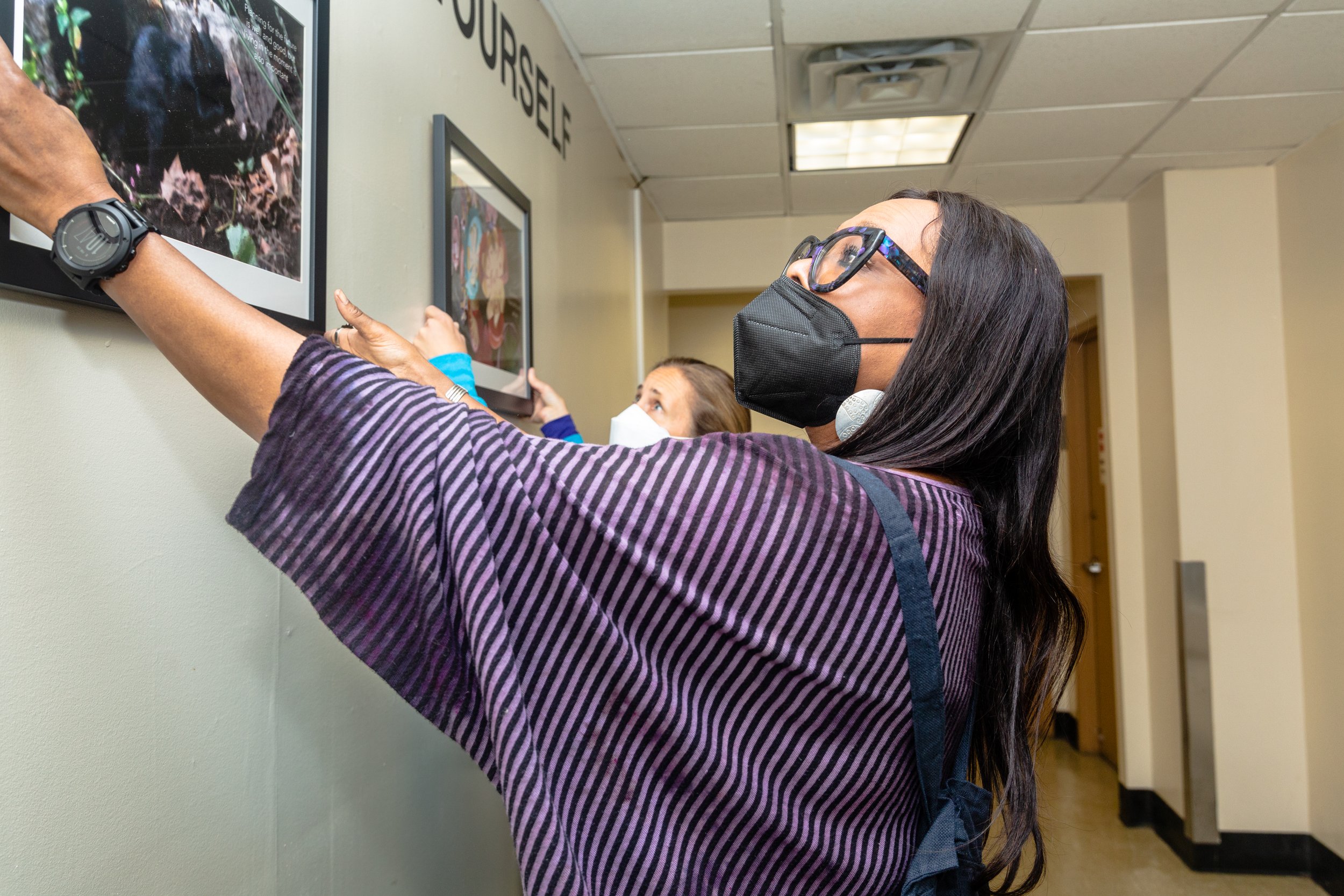Cafe Photovoice Permanent Exhibition at Emma L. Bowen Community Service Center
©Shelita Birchett Benash, MSW, Led concept, design, curation, and installation of Cafe Photovoice Permanent Exhibition and Virtual Exhibition website, Emma L. Bowen Community Service Center, Harlem, NY.
“For people who have experienced oppression, racism, exclusion, pain, or trauma, there can be great significance attached in presenting to others their works of art produced on the issues they have faced” ”
I can finally take the time to upload some photos from my graduate school experience. In August 2020, in the eery months before COVID-19 would envelope us all in a global pandemic shut-down; I left the my artist studio to continue on my journey of answering the call to service by pursuing a master's degree in social work. I say continue because I’ve been on the road toward service because like so many folks who choose the enter social work, I am entering the profession after a lifelong capacity of being some form of a caregiver and go-to-person. I will elaborate on that part of my journey at another time.
Stepping away from art making felt like I was leaving a huge part of my intersectional identity behind. Close friends who have known me for a long time and know how passionate I am about making art and being creative, didn’t get it, as they challenged me. One friend said, “Social work, Shelita? You’re never going to make again.” So, in the midst of my second semester, the last thing I expected to encounter was a healing art practice in a social work master's program. However, that's precisely what happened at Adelphi when my policy professor, Dr. Chrisann Newransky invited me to a Photovoice Worldwide facilitator training. I remember how my eyes widened when I first saw the Photovoice Worldwide website. There were amazing photographs taken by people all over the world. There were people telling stories about their lives. I felt a sense of awe and excitement like when I would turn the pages of a copy of Life Magazine, as a child. I thought to myself, “Photovoice started in the 1990s? How have I not known this? This is research? This is incredible. I love taking everyday photos. I want to to do this.” There’s a lesson there about trusting the path towards service because walking in beauty led me home to my true nature.
During the height of the COVID-19 pandemic, Drs. Newansky and Rozario invited me to join the Adelphi School of Social Work, Photovoice Community-Based Research Team, along with Rue Silver, Ph.D. candidate, and adjunct professor Julissa Adames-Torres. As part of a community partnership; the Bowen Center wanted Adelphi to investigate how vulnerable service users were experiencing clinic healthcare. The Photovoice action research methodology, originated by Wang and Burris (1993) puts cameras in the hands of people to tell their stories to shine a light on the marginalized to catalyze change.
Representation matters. America has a deplorable history regarding Black bodies, science, and medical research. Who gets to tell our stories? Who is our witness? And through what lens are our stories being interpreted? Being Black, indigenous, Asian, people of color (BIAPoC) researchers on the Adelphi Photovoice research team provided a valuable insider/outsider perspective for the collaborative process with the study participants. Julissa and I shared meaningful connections including race, ethnicity, language, culture, geography, and spirituality. Julissa is Dominican and Spanish-speaking and I am African American and a former New Yorker. Julissa has roots in New York City as well. Coming to Harlem as women of color and culture action researchers was important. As part of Adelphi social work graduate and doctoral level education, Julissa and my leadership roles in dismantling health disparities within the mostly LatinX, Black, and global diaspora community through trauma-informed clinical approach to social art, social justice, and storytelling was especially significant.
I also stand radically outside the traditional idea of what it means to be an academic. As an artist and Black woman of culture, I come to the research table with the urgency of my ancestors’ prayers for change and a prismatic lens with a multiplicity of invaluable intelligence that elicit intuitive and creative ways of knowing, seeing, moving, connecting, self-expression, and meaning-making.
The Bowen Center is the heartbeat of the community. It’s old-school and without artifice in a way that just doesn’t exist anymore. As a professional artist with a theatre background, it was an exciting opportunity for me to bring my over 35 years of experience in storytelling, theatre arts outreach, public art, and gallery curation into leading the concept, design, curation, and installation of a permanent Cafe Photovoice exhibition and virtual exhibition website of the study participants' artworks. Over the next year and a half, as part of the research team, I collaborated with a courageous group of Harlem community members who braved coming out of the safety of isolation as they committed to sharing their health narratives and lived experiences relating to substance use and mental health treatment. Most participants remained a part of the study for over 2 years. I’m excited to share that the Bowen Center has invited the Cafe Photovoice Permanent Exhibition participants onto their community advisory board. I am grateful to the Cafe Photovoice study participants for their teaching.
During the Cafe Photovoice exhibition work in progress, my positionality and intersectional identities located me within being an interdisciplinary artist, non-traditional BIAPoC MSW student practitioner, Adelphi IDEATE Integrated & Behavioral Health Fellow, graduate research assistant, and mid-life career evolver answering the call to service. I embraced my graduate research assistant role with humility and a beginners’mind. The Bowen Center and Drs. Newransky and Rozario shared power in presenting me, a BIAPoC MSW student-practitioner, with a transformative social work leadership experience. I led the concept, design, curation, and installation the "Café Photovoice Permanent Participant Exhibition" at the Emma L. Bowen Community Service Center in Harlem, NY, and designing and building the "Café Photovoice Virtual Exhibition" website. As a result of I experienced a dynamic social work professional identity integration across the micro/mezzo/macro continuum. Through Photovoice action research, I embodied my personal core values within social work values and ethics by co-knowledge building through emergent arts-based research and utilizing technology as an immersive advocacy tool to amplify the voices of vulnerable community members amongst us. Gratitude.
©Shelita Birchett Benash, “COVID-19, Racial Reckoning, and Remembrance,” 2021, Photovoice World Wide Facilitator Workshop
©Cafe Photovoice Permanent Participant Exhibition, Participant Six, 2021
©Shelita Birchett Benash, Cafe Photovoice Community-Based Research
Cafe Photovoice Permanent Participant Exhibition Virtual Opening, October 28, 2023.
©Shelita Birchett Benash and Dr. Chrisann Newransky, Cafe Photovoice Permanent Participant Exhibition, Emma L. Bowen Community Service Center, Harlem, NY, 2021.


